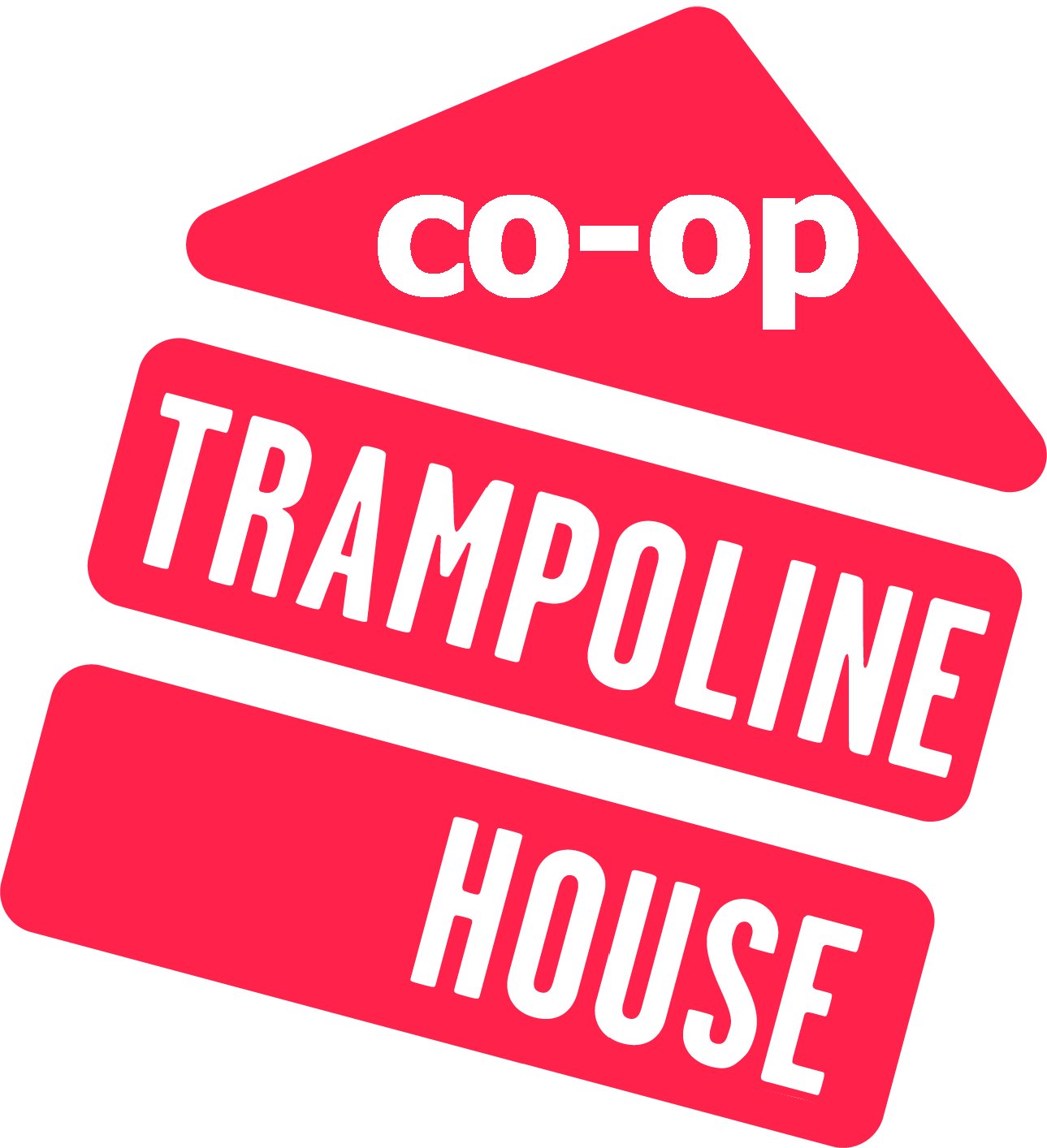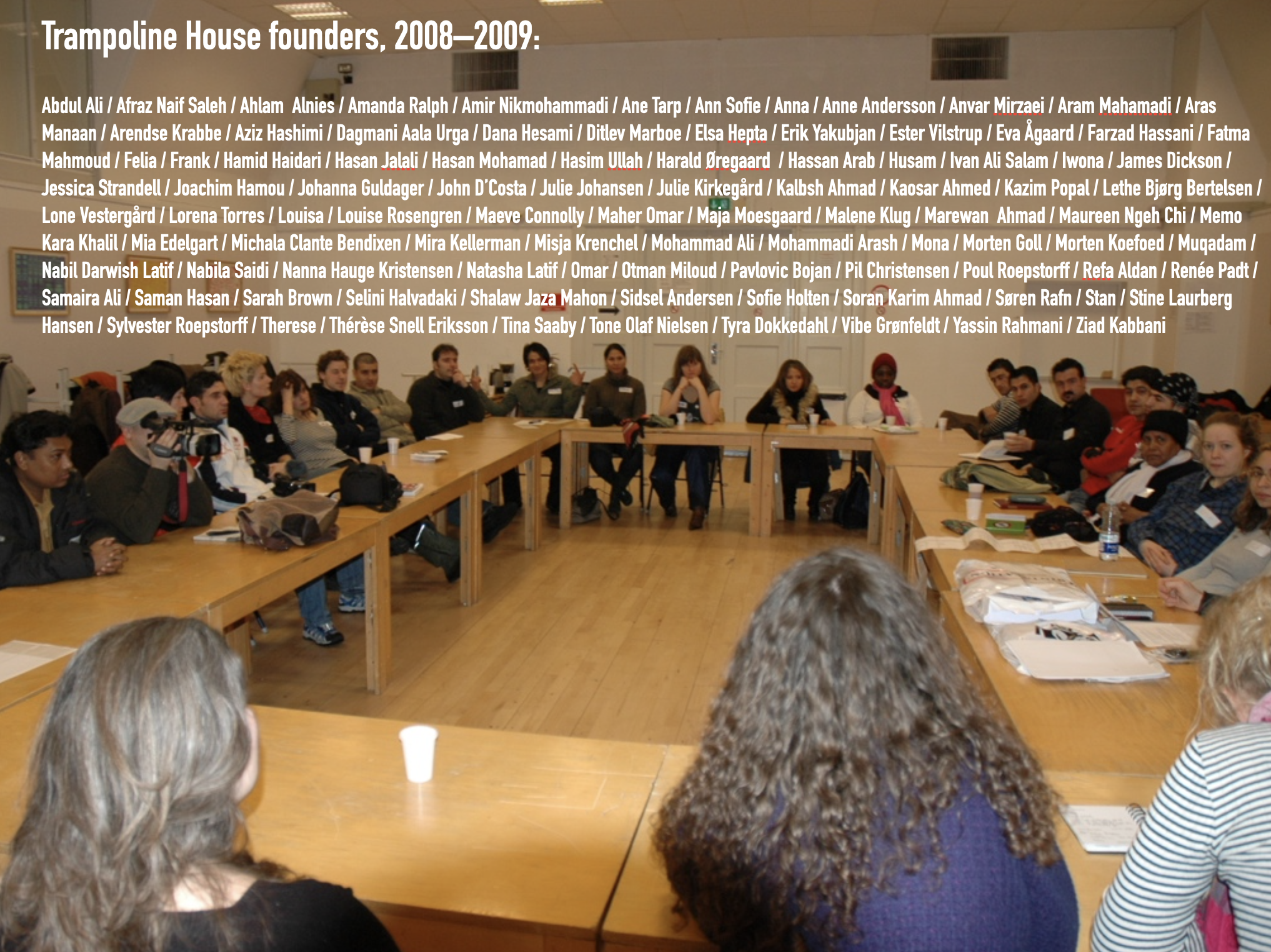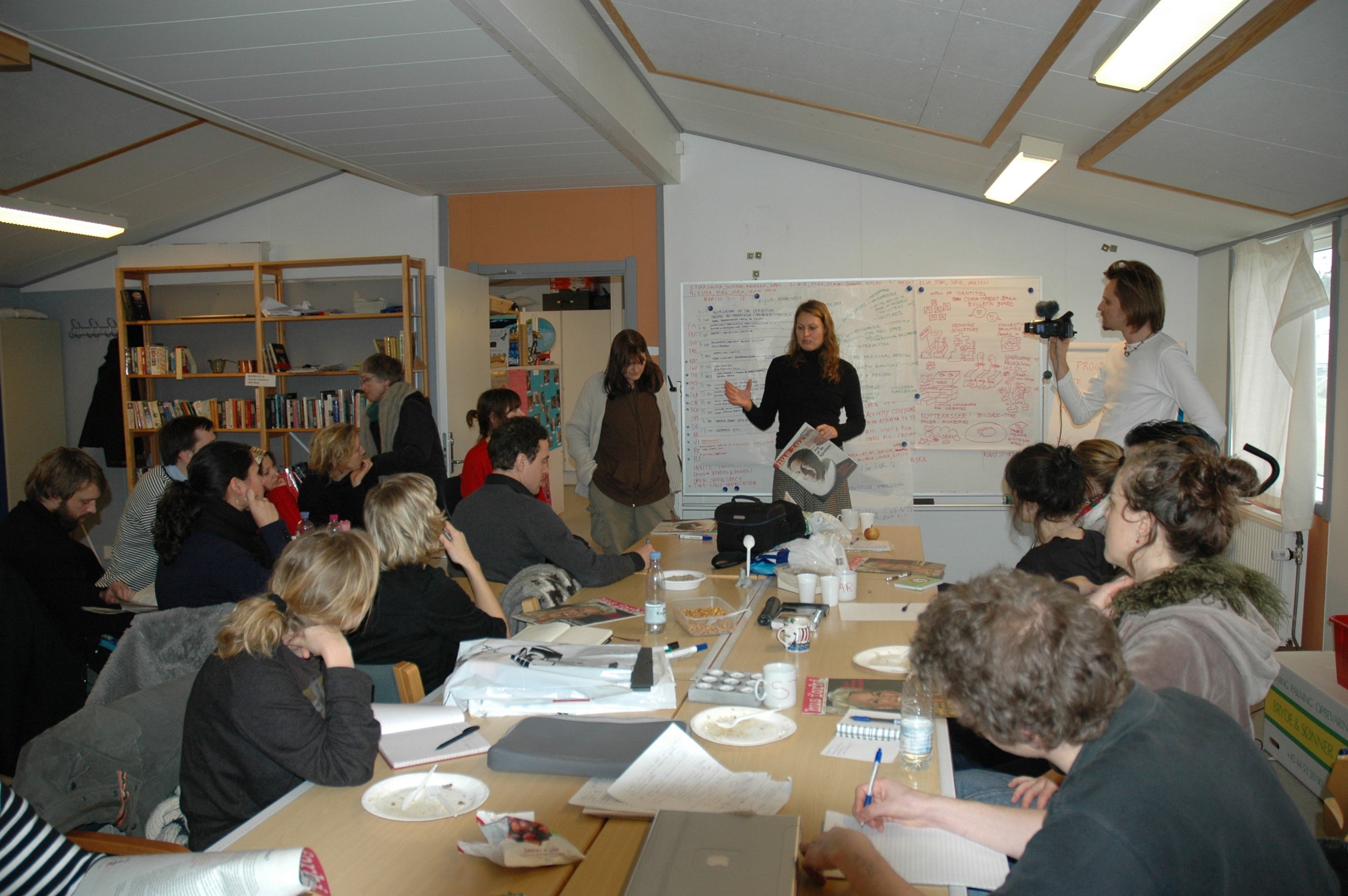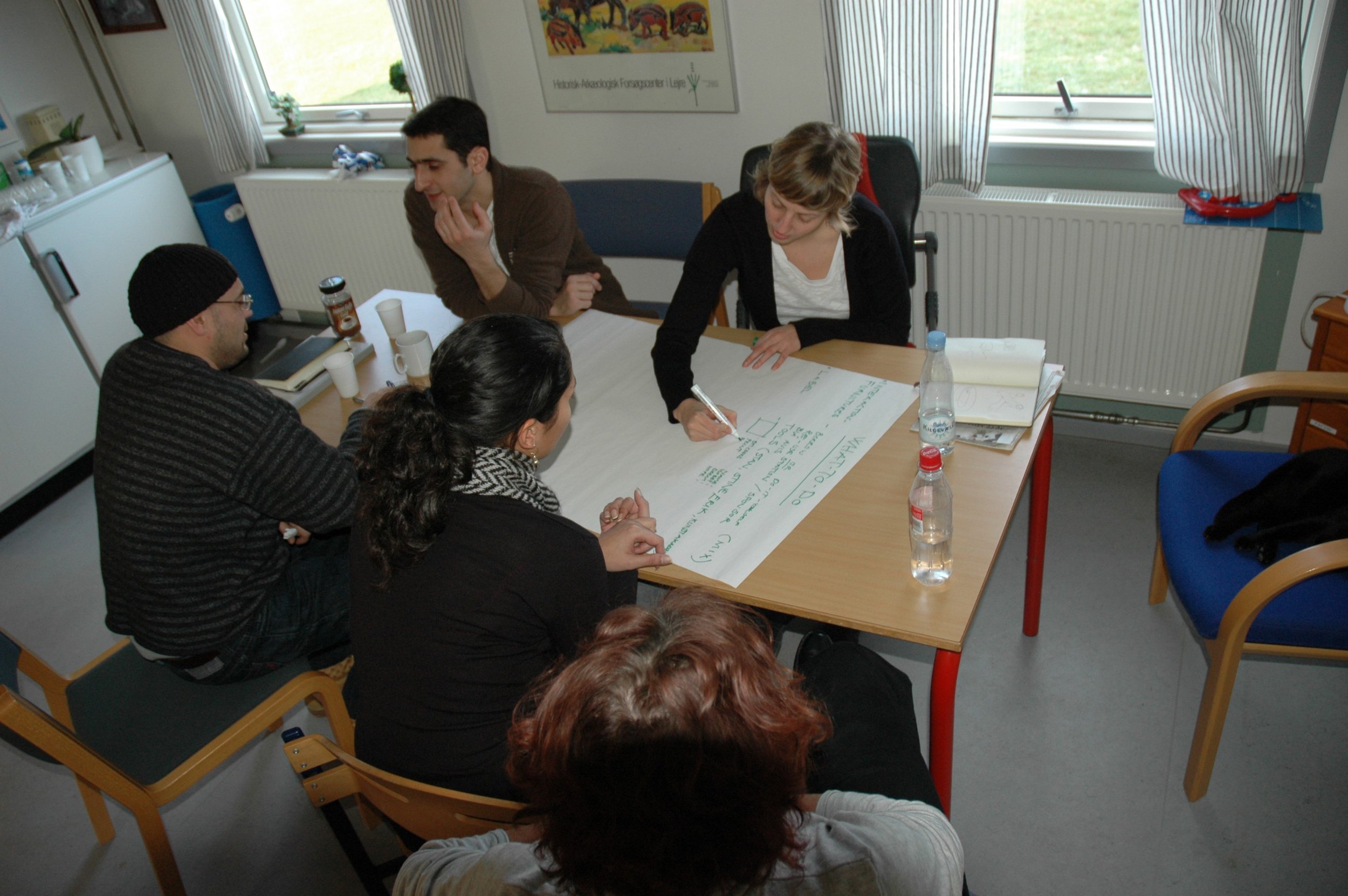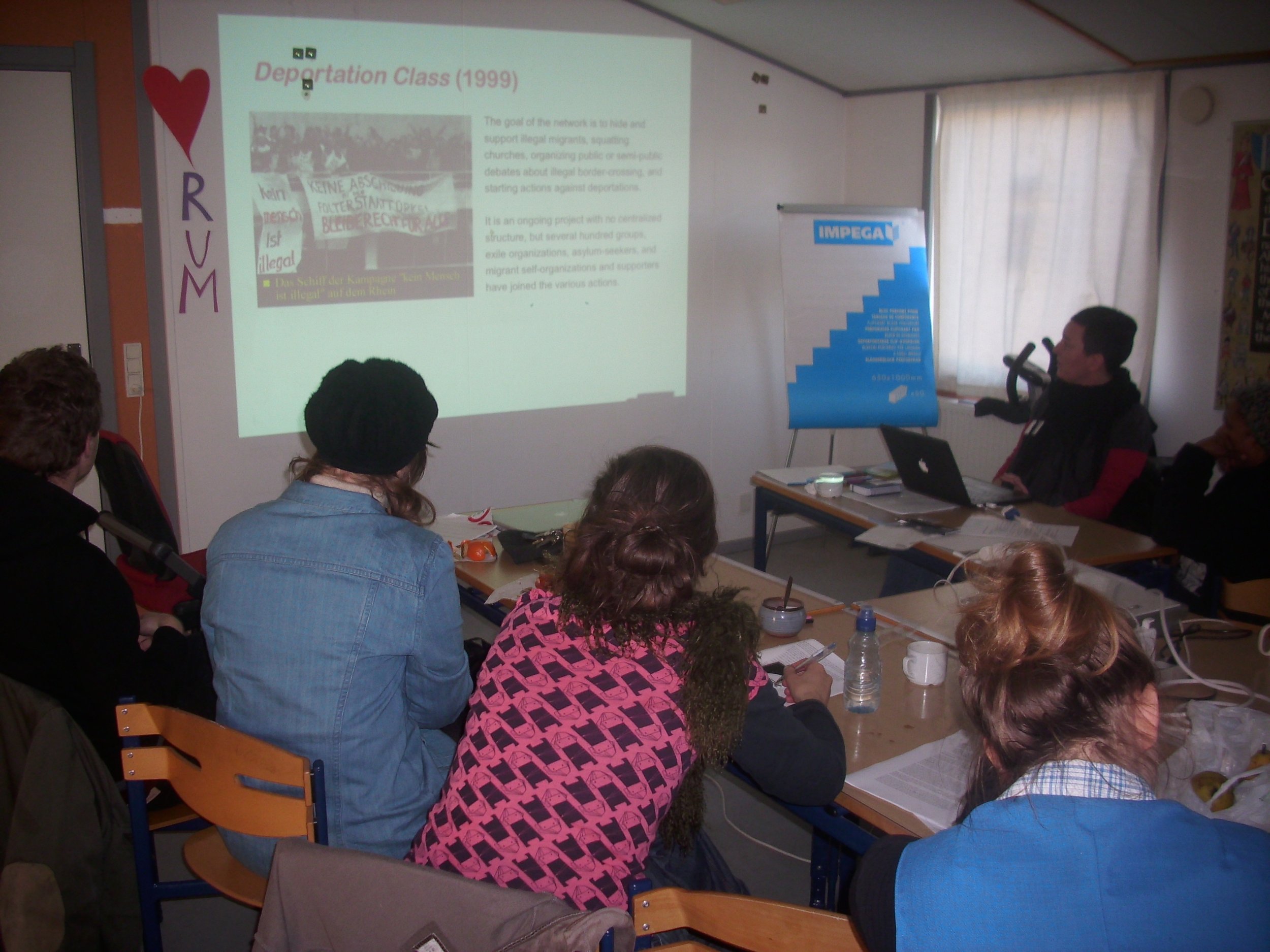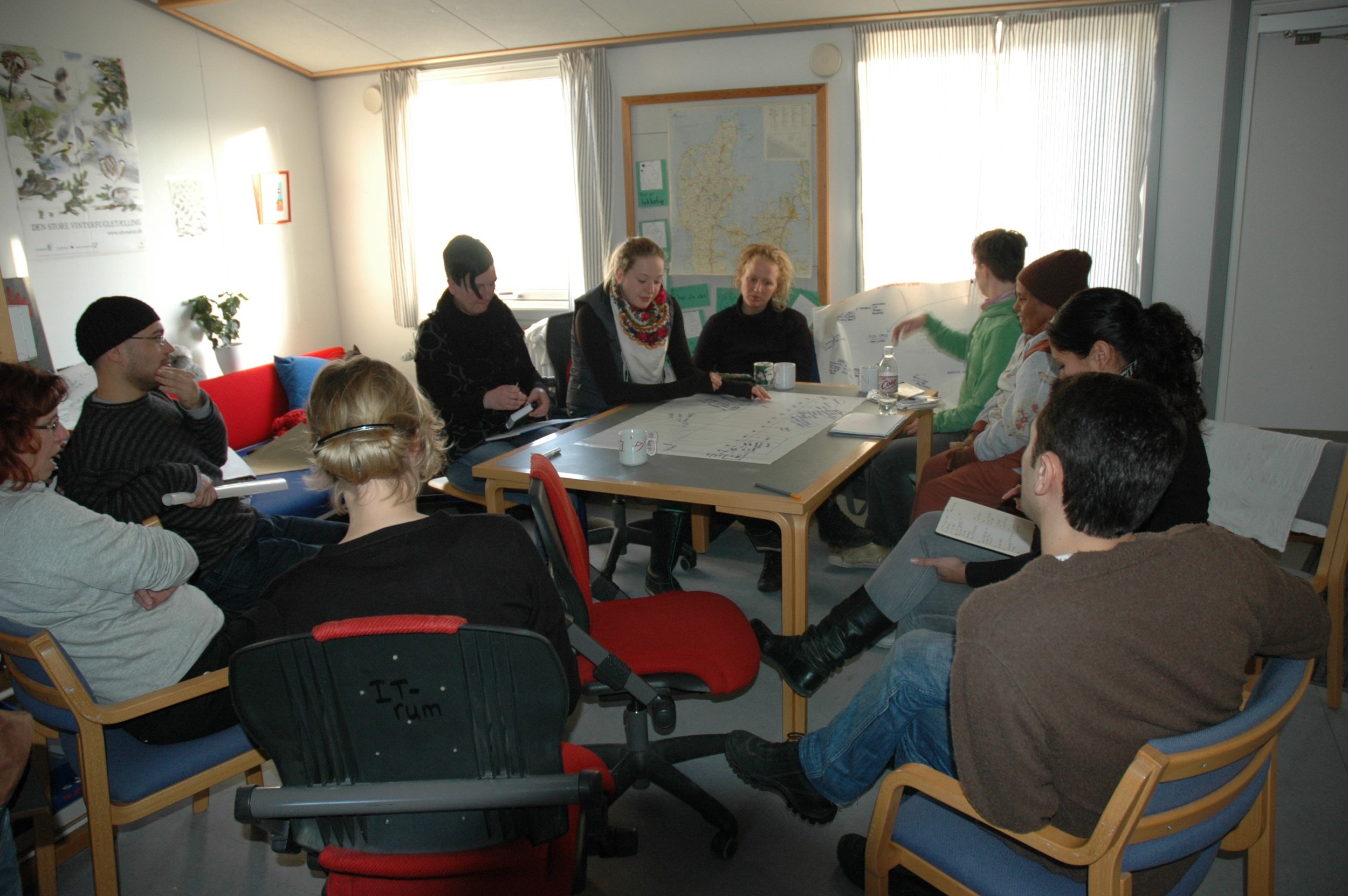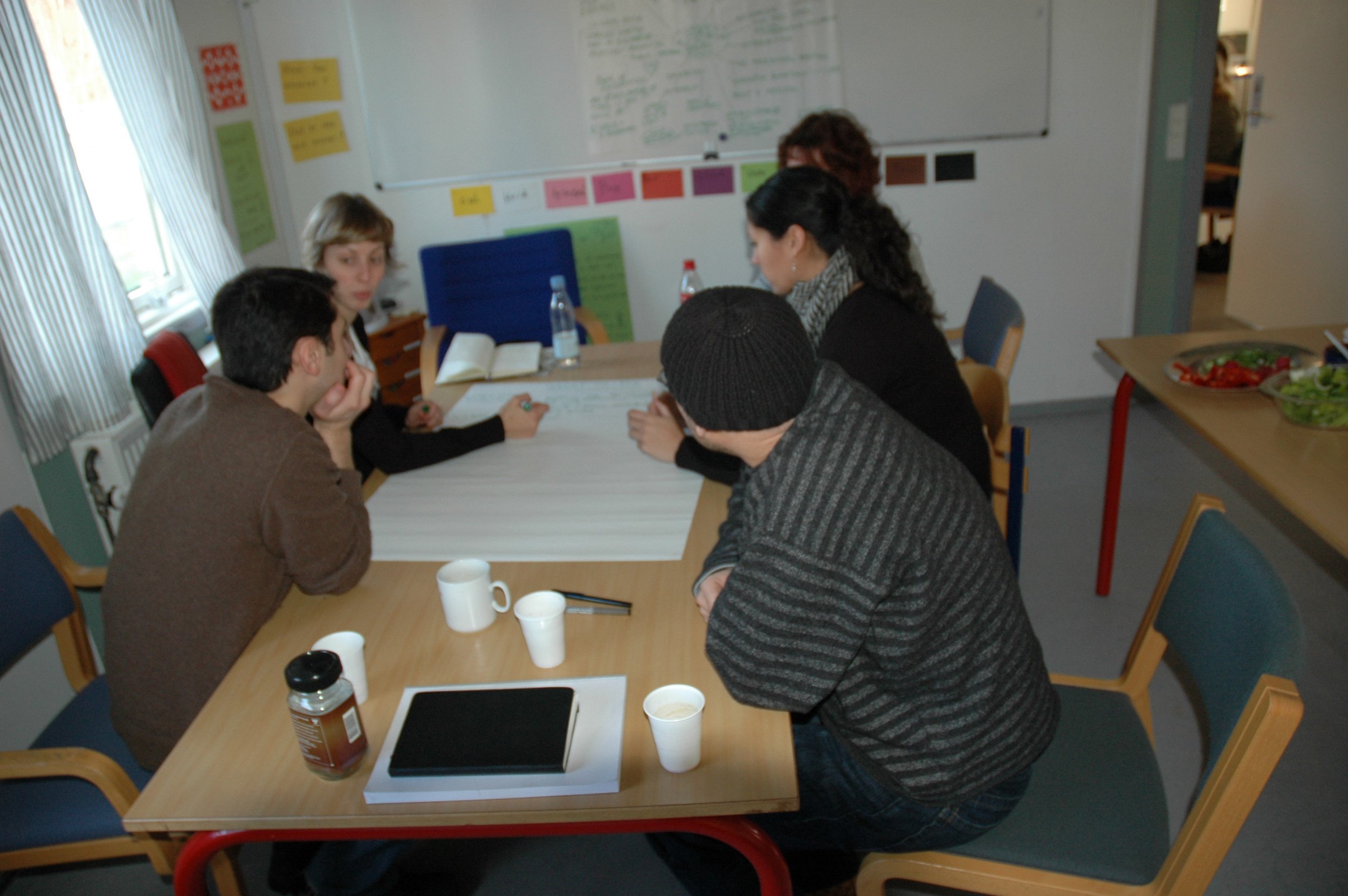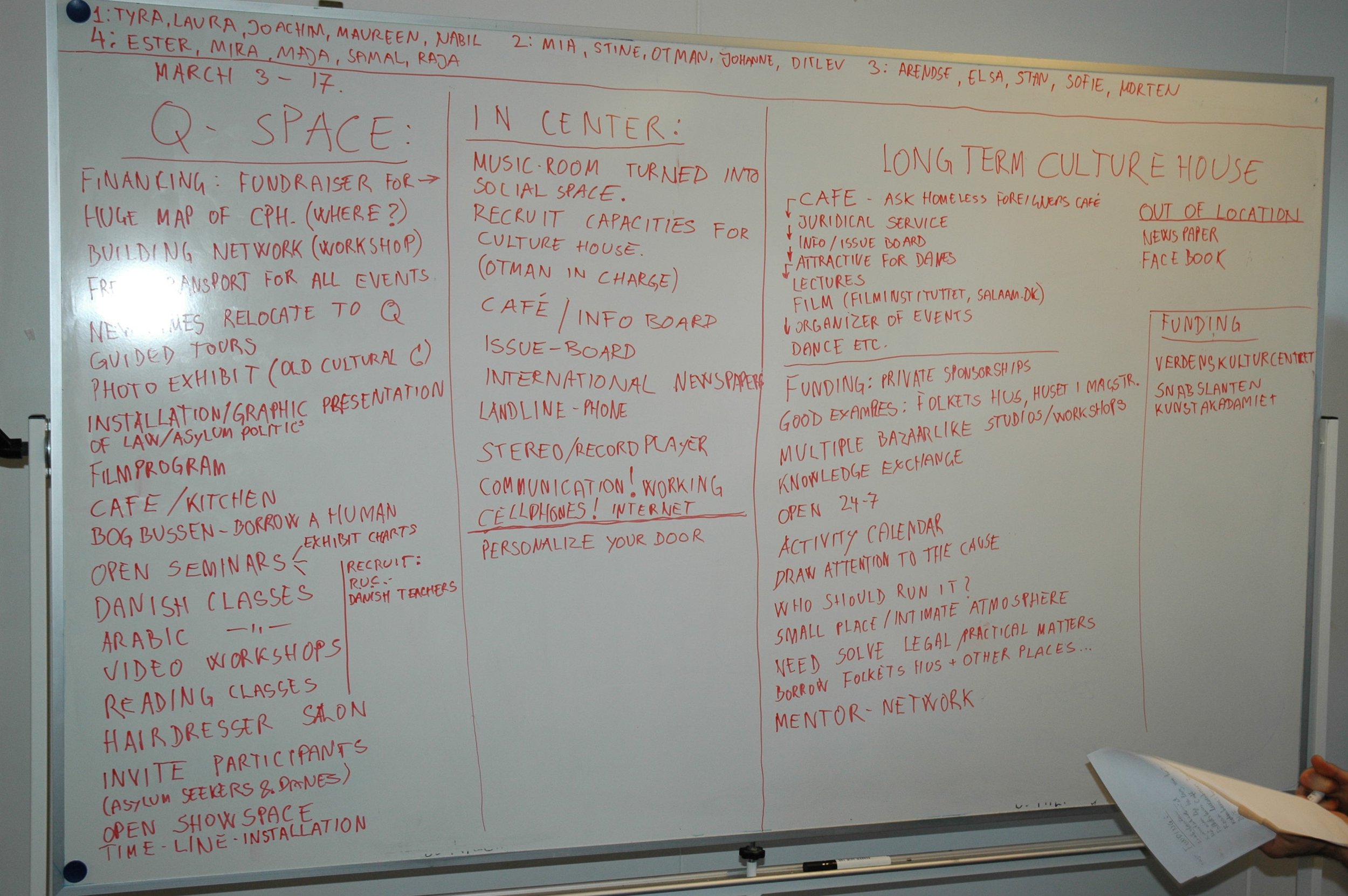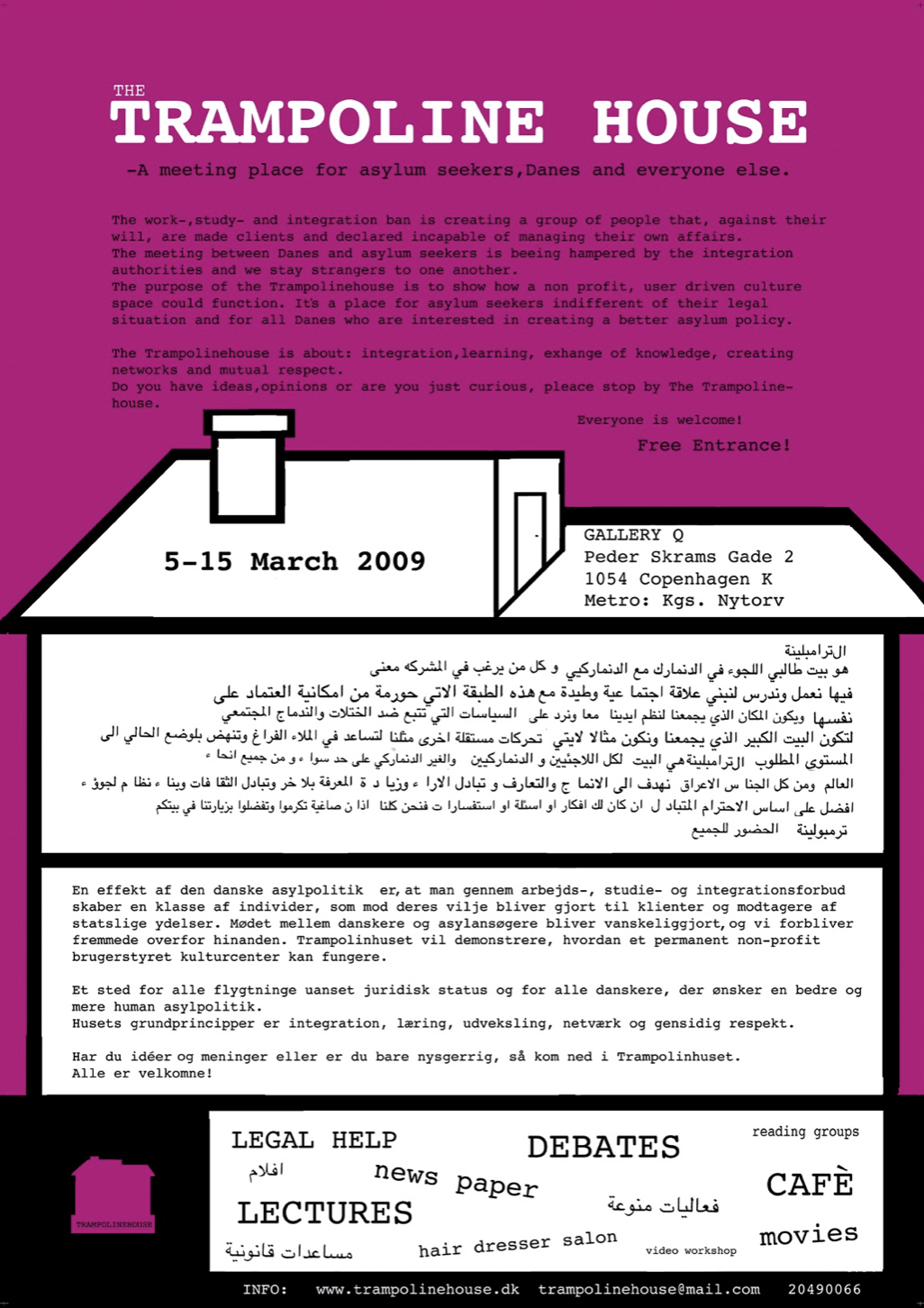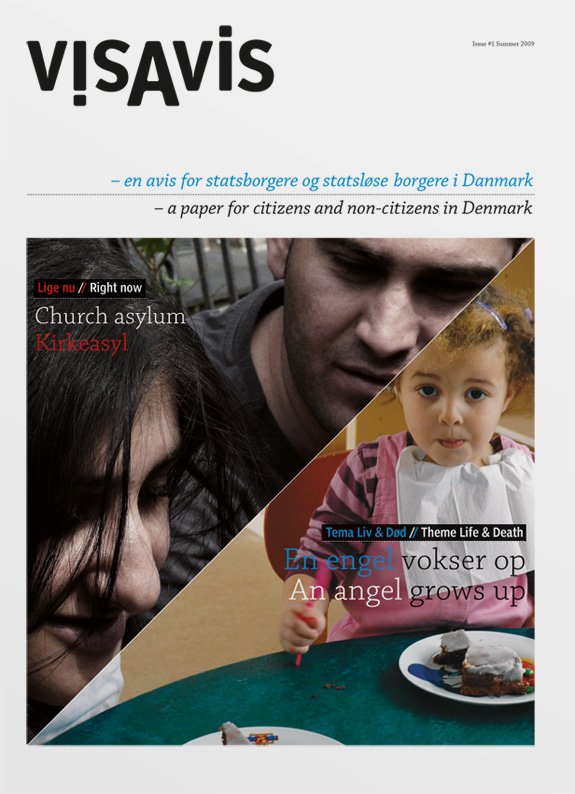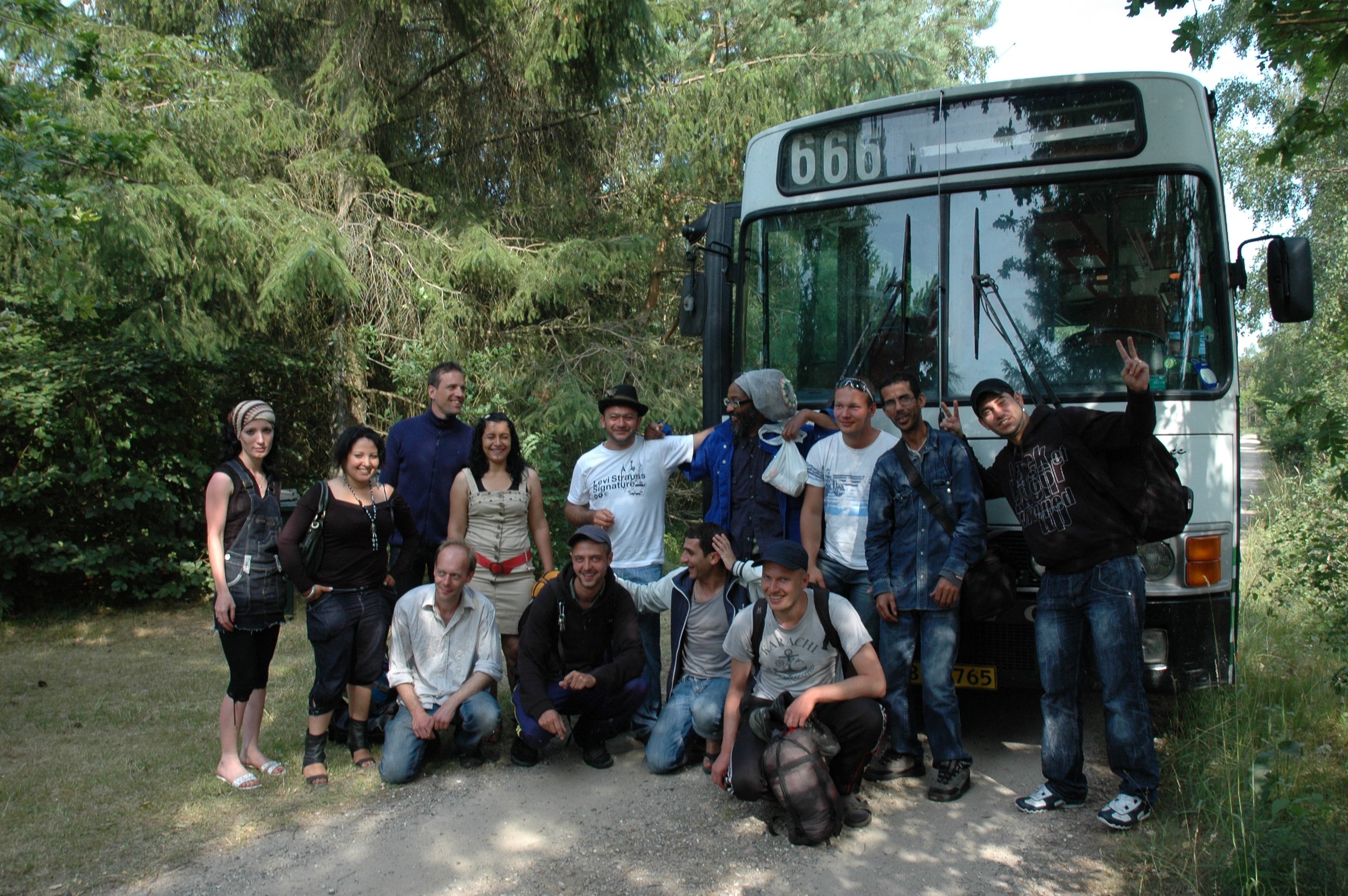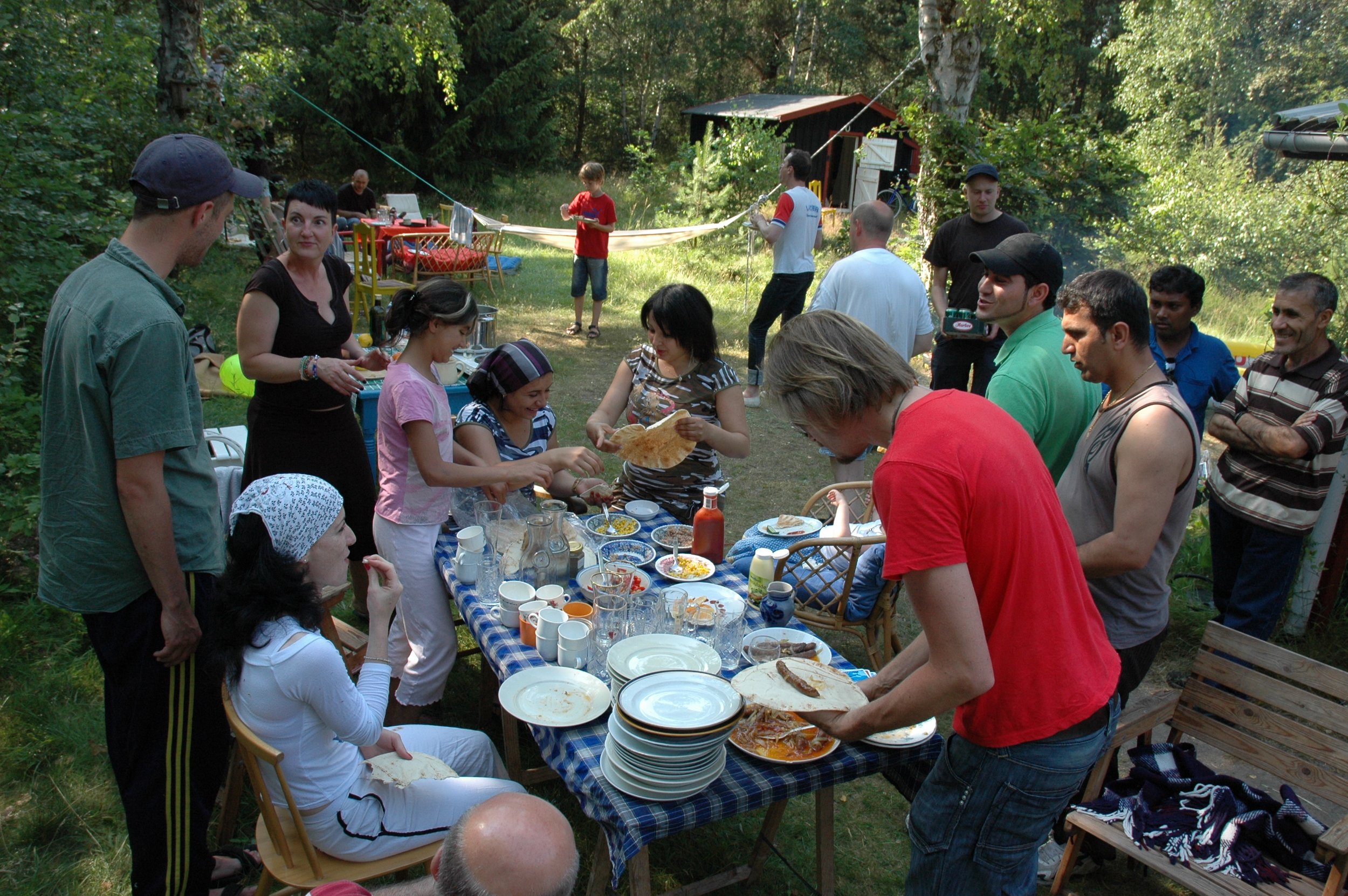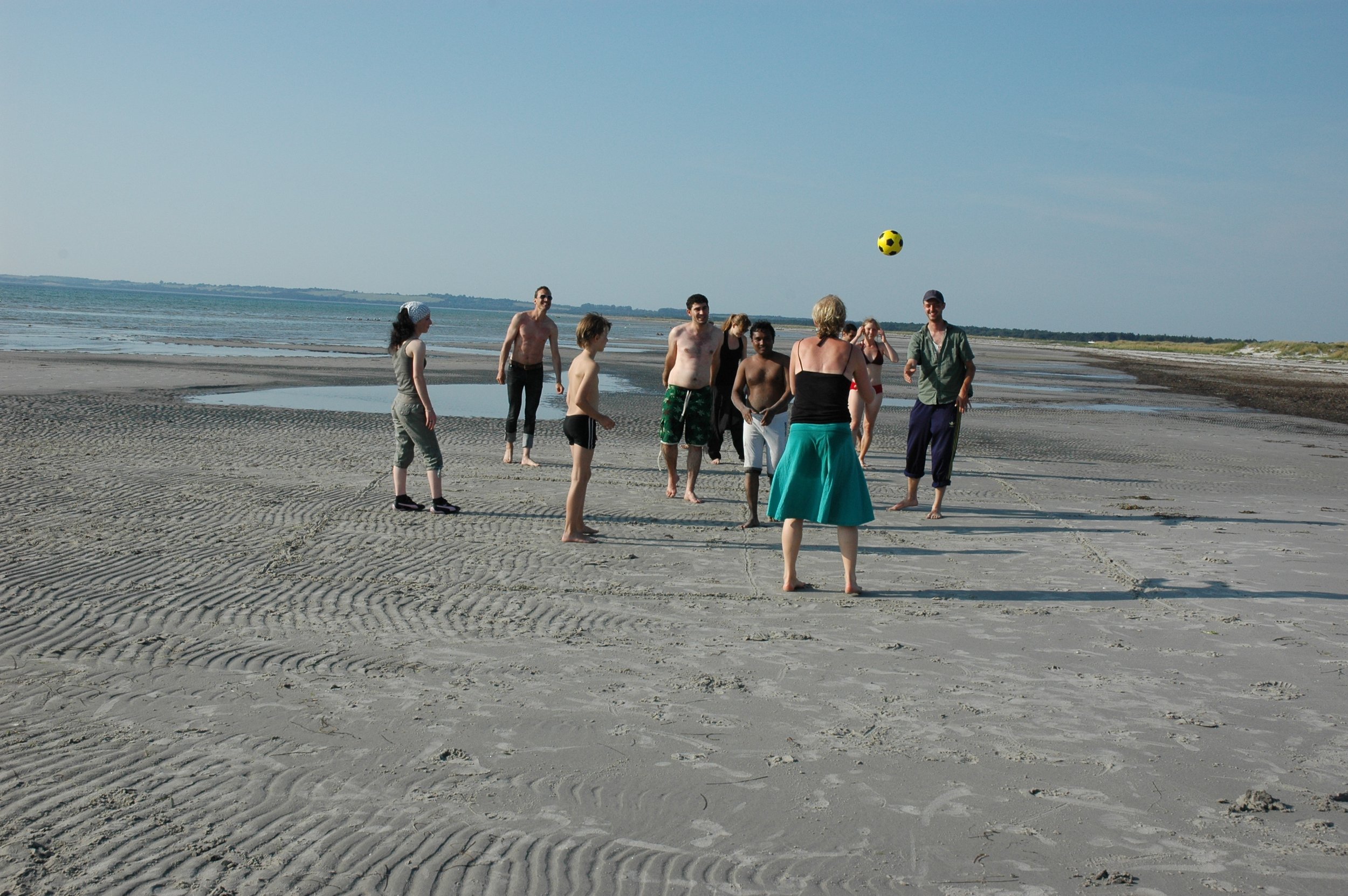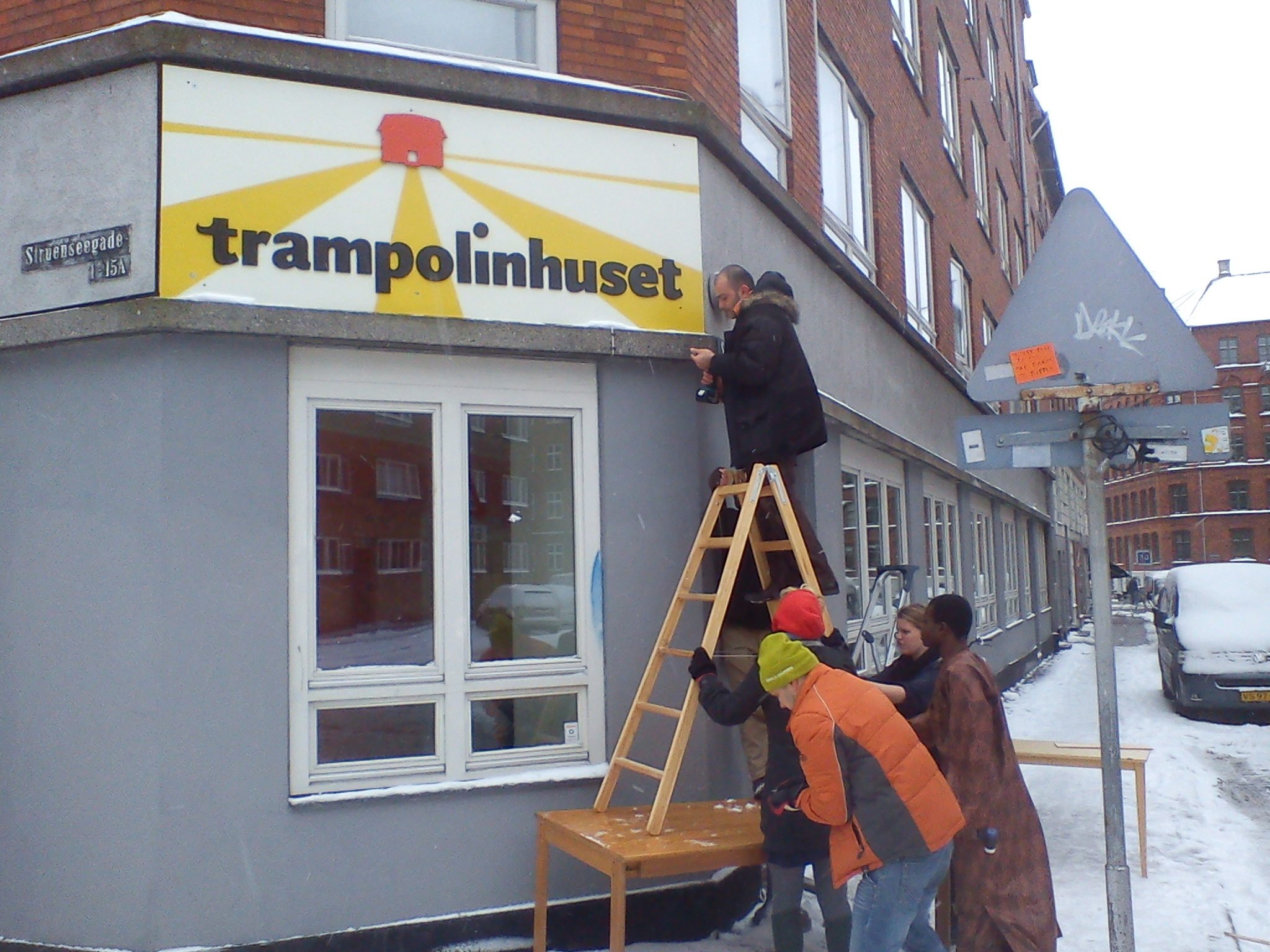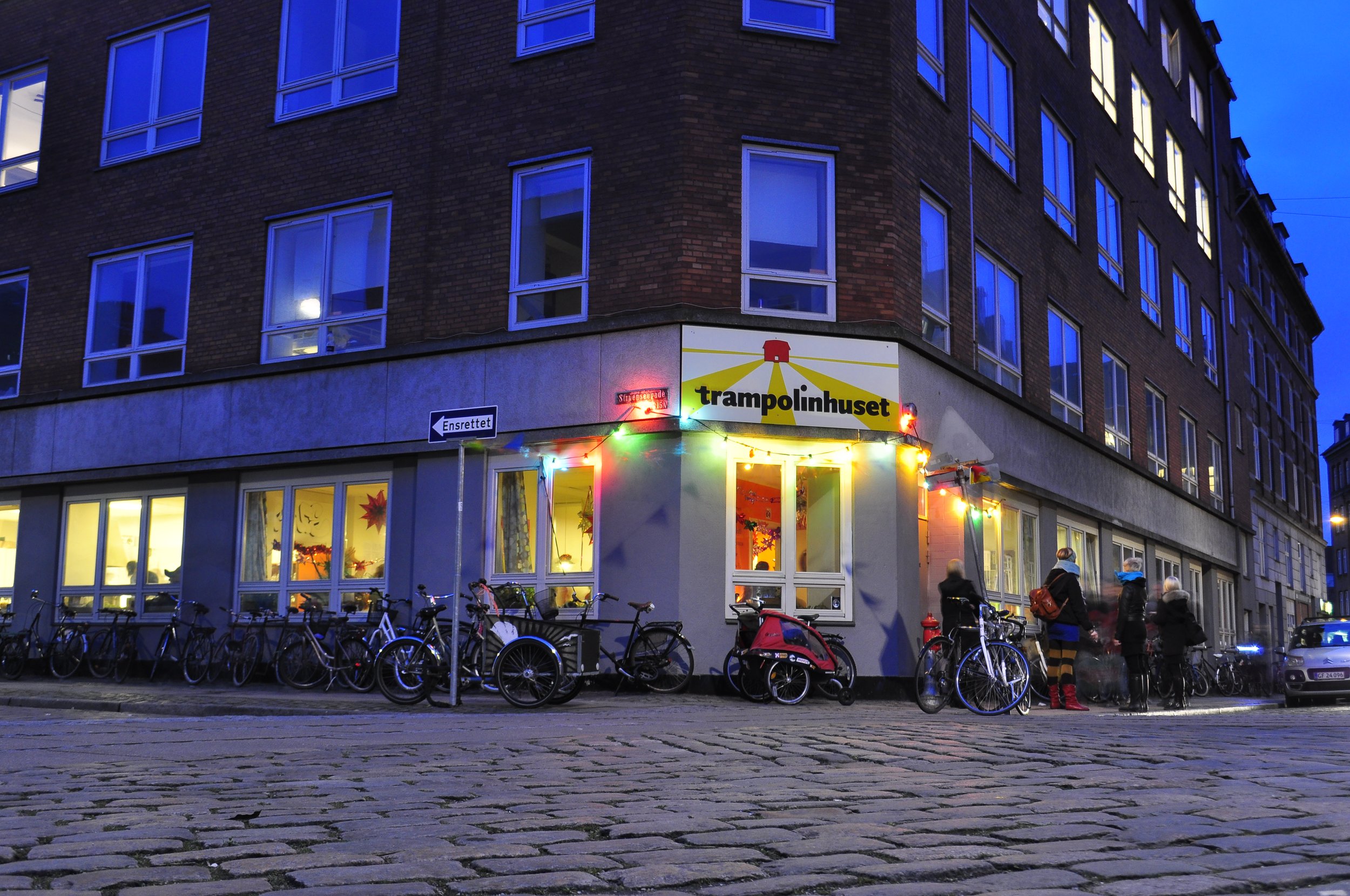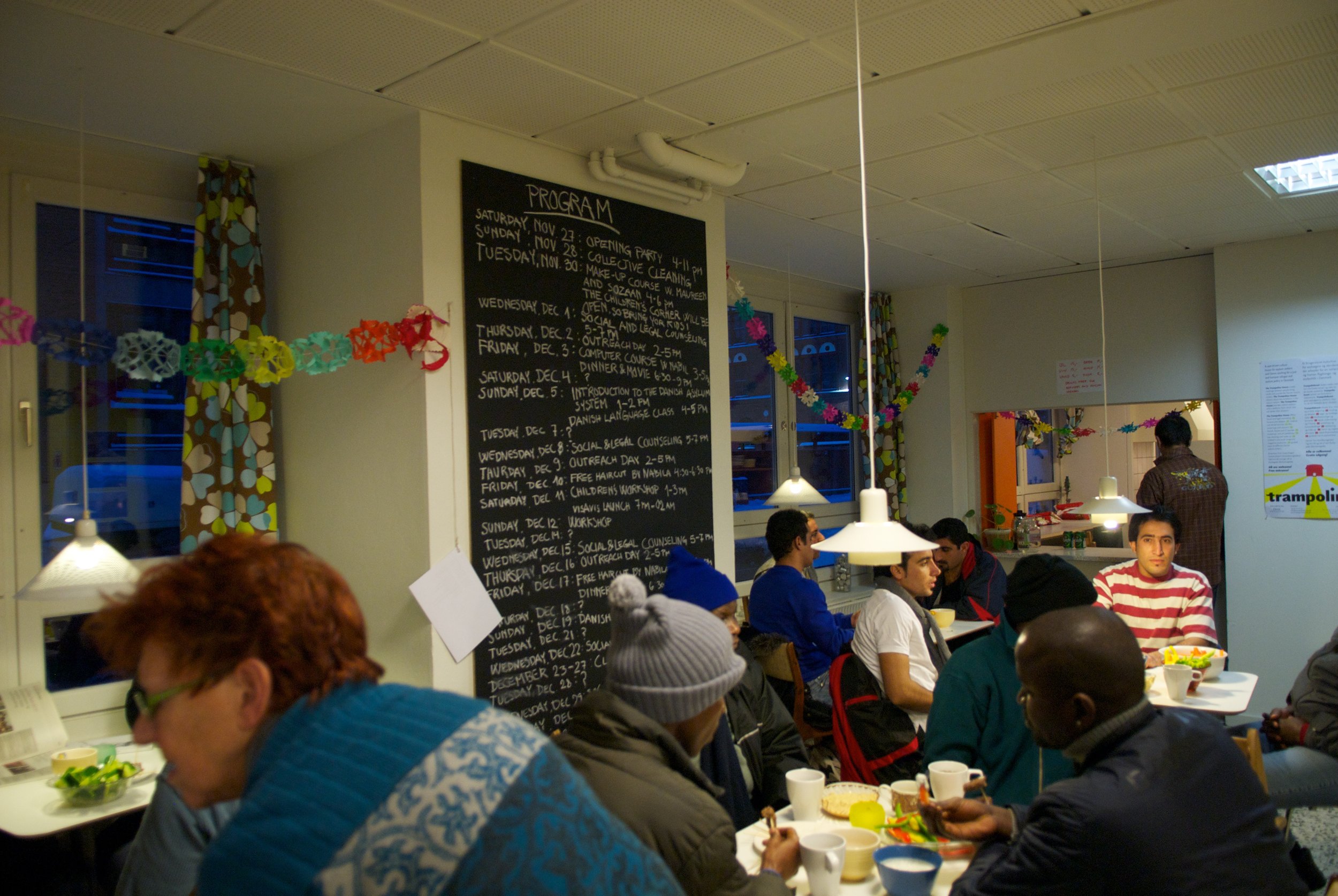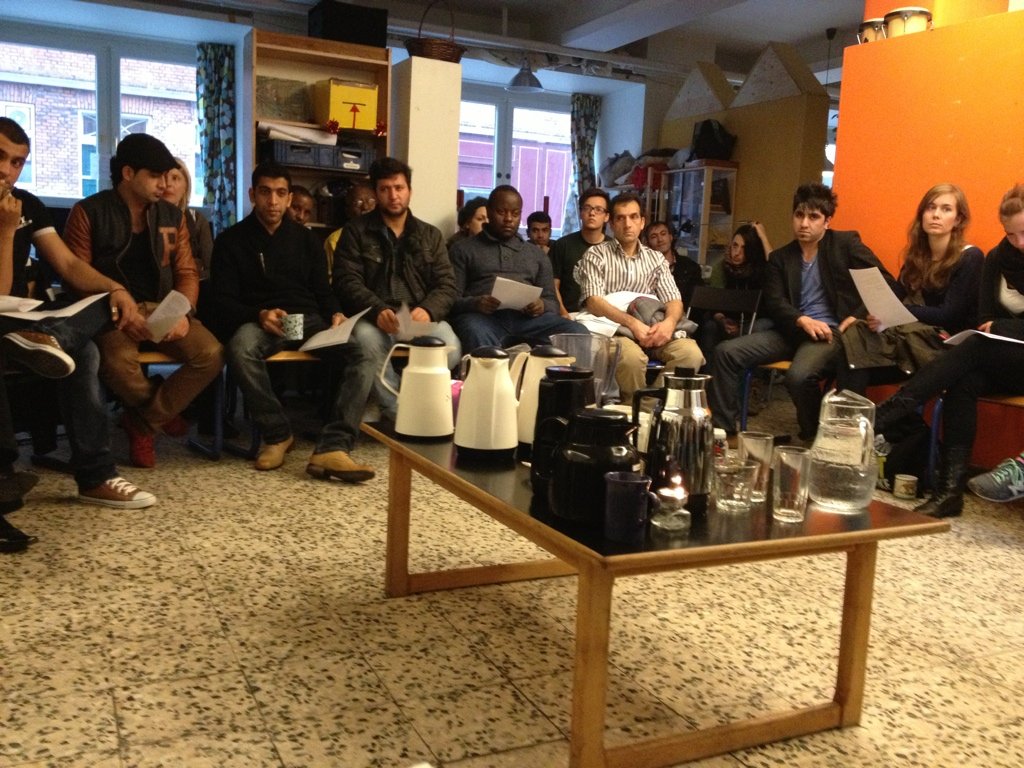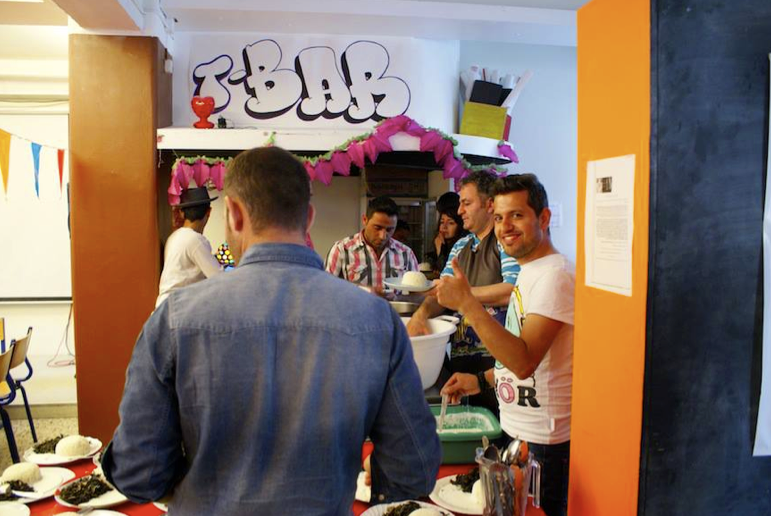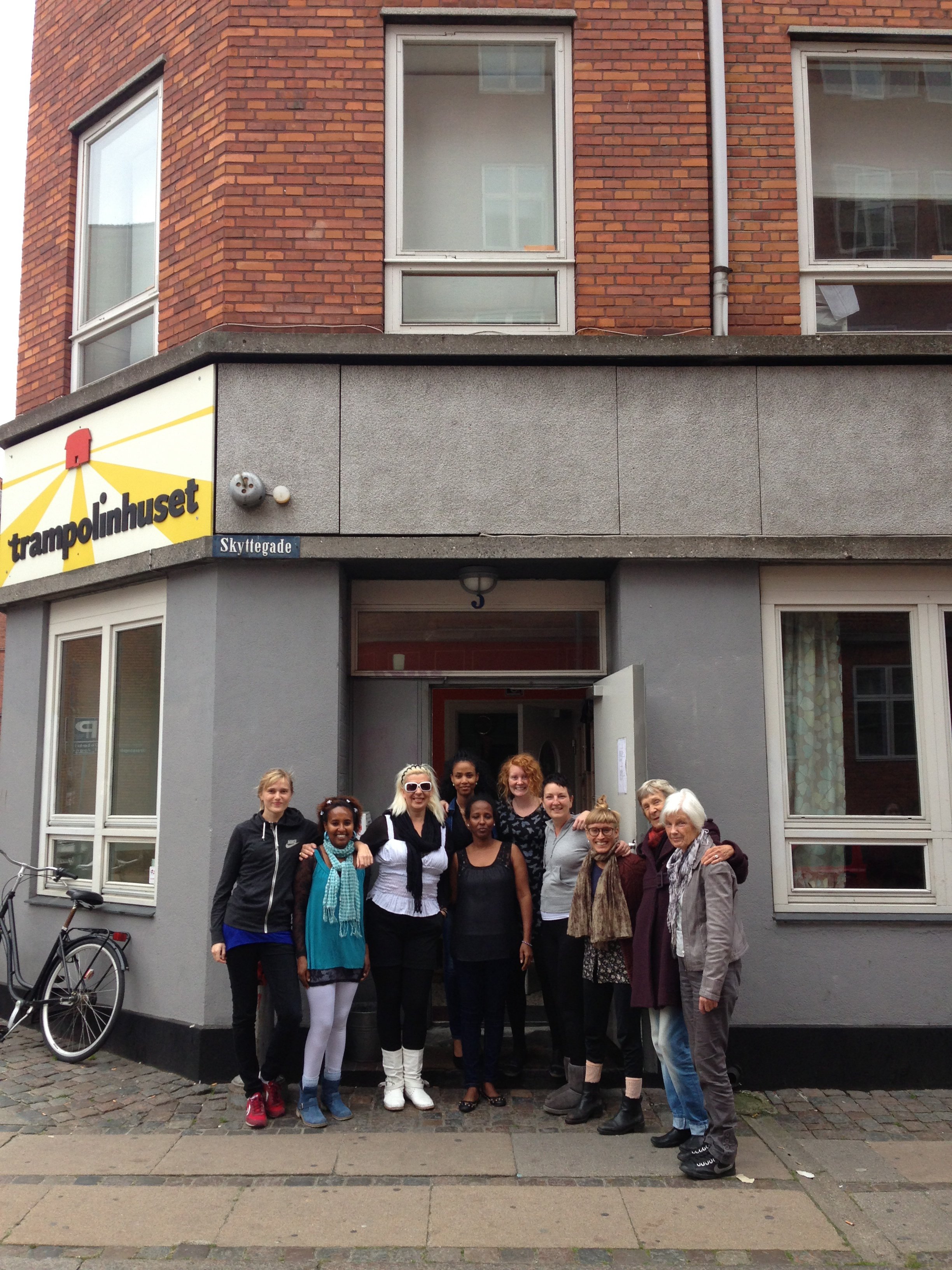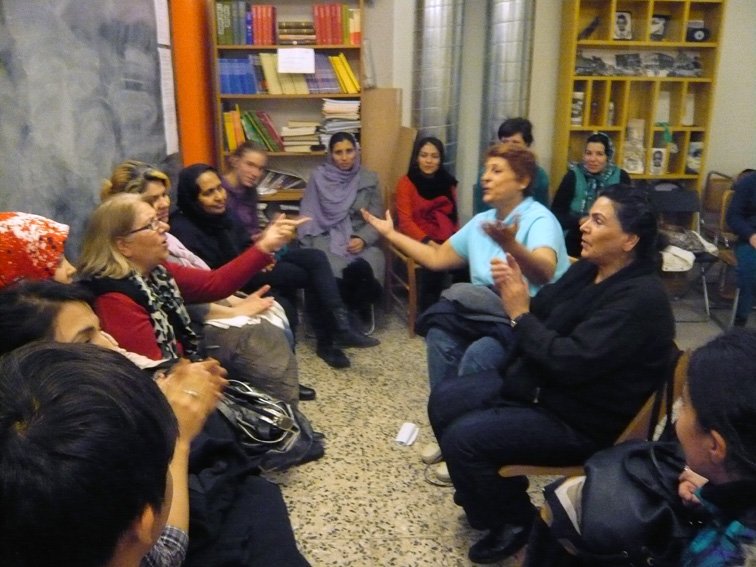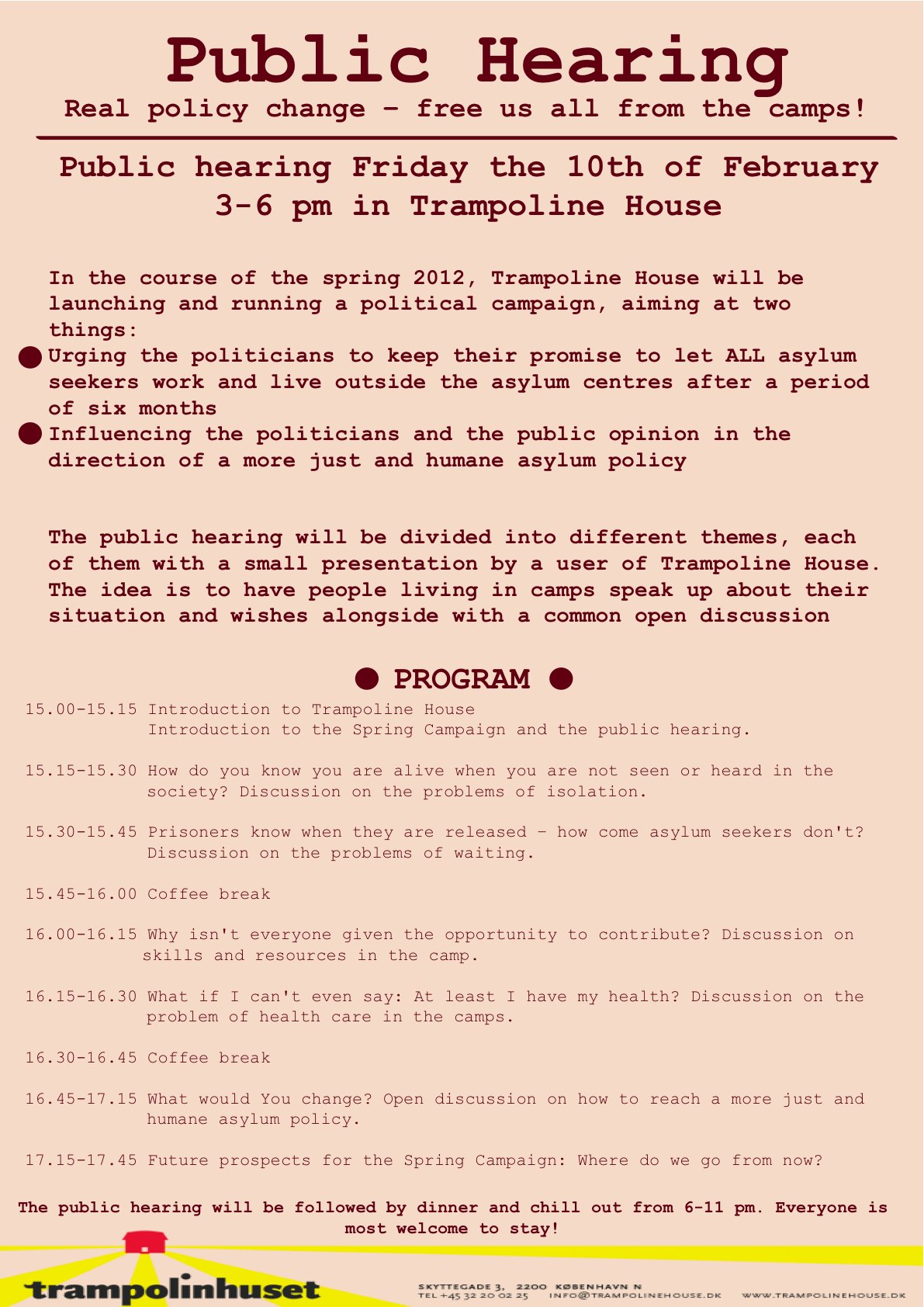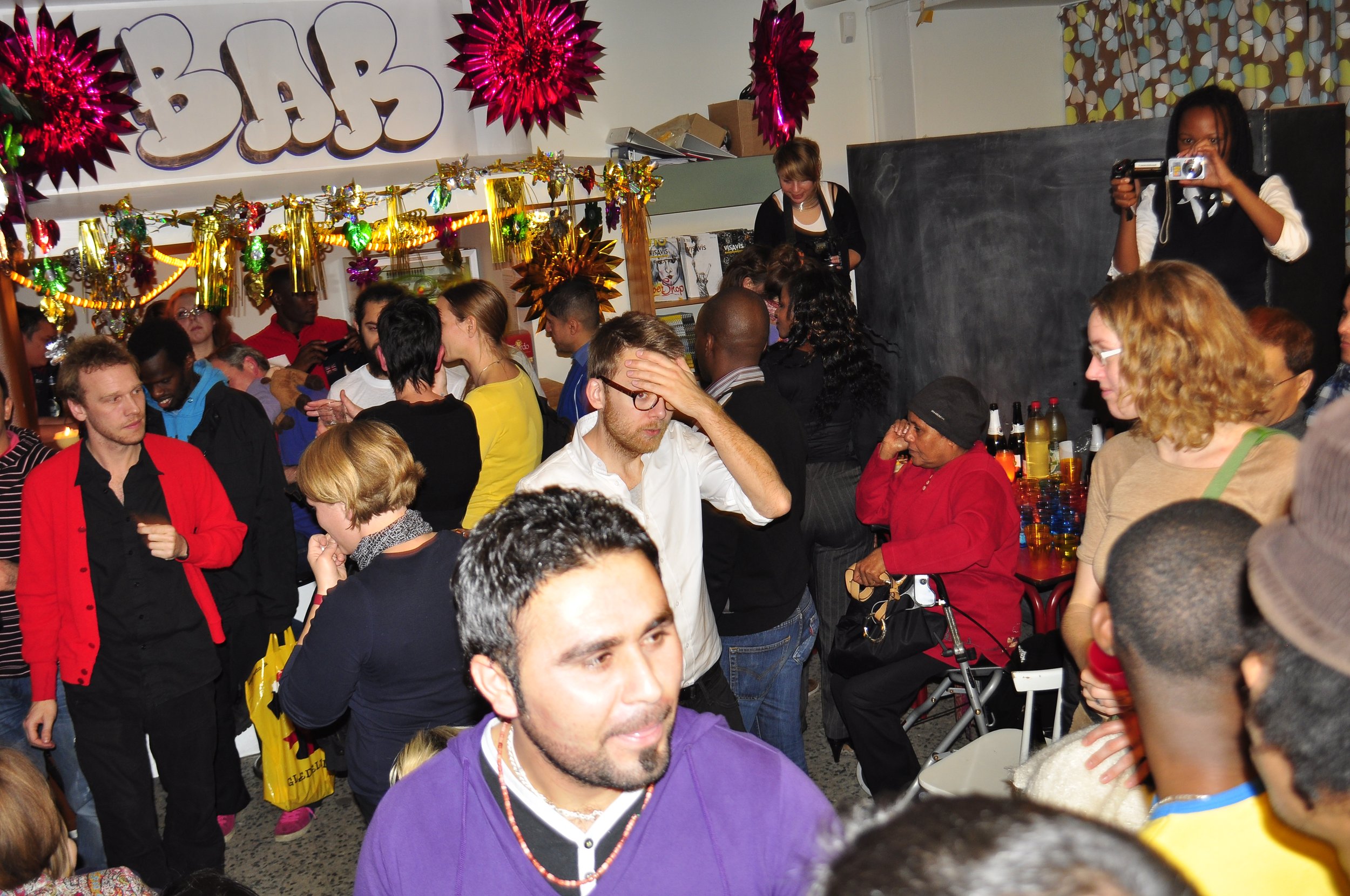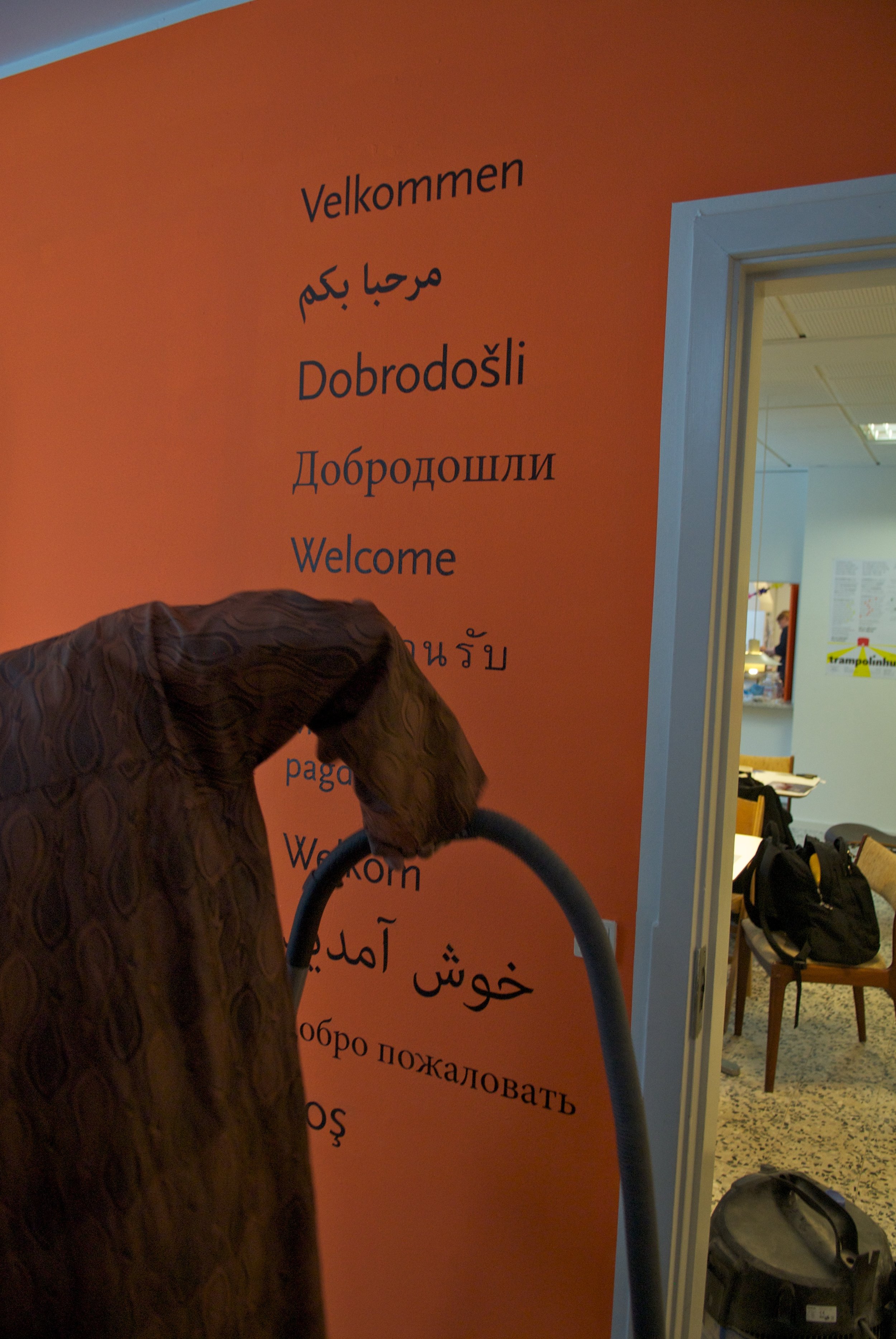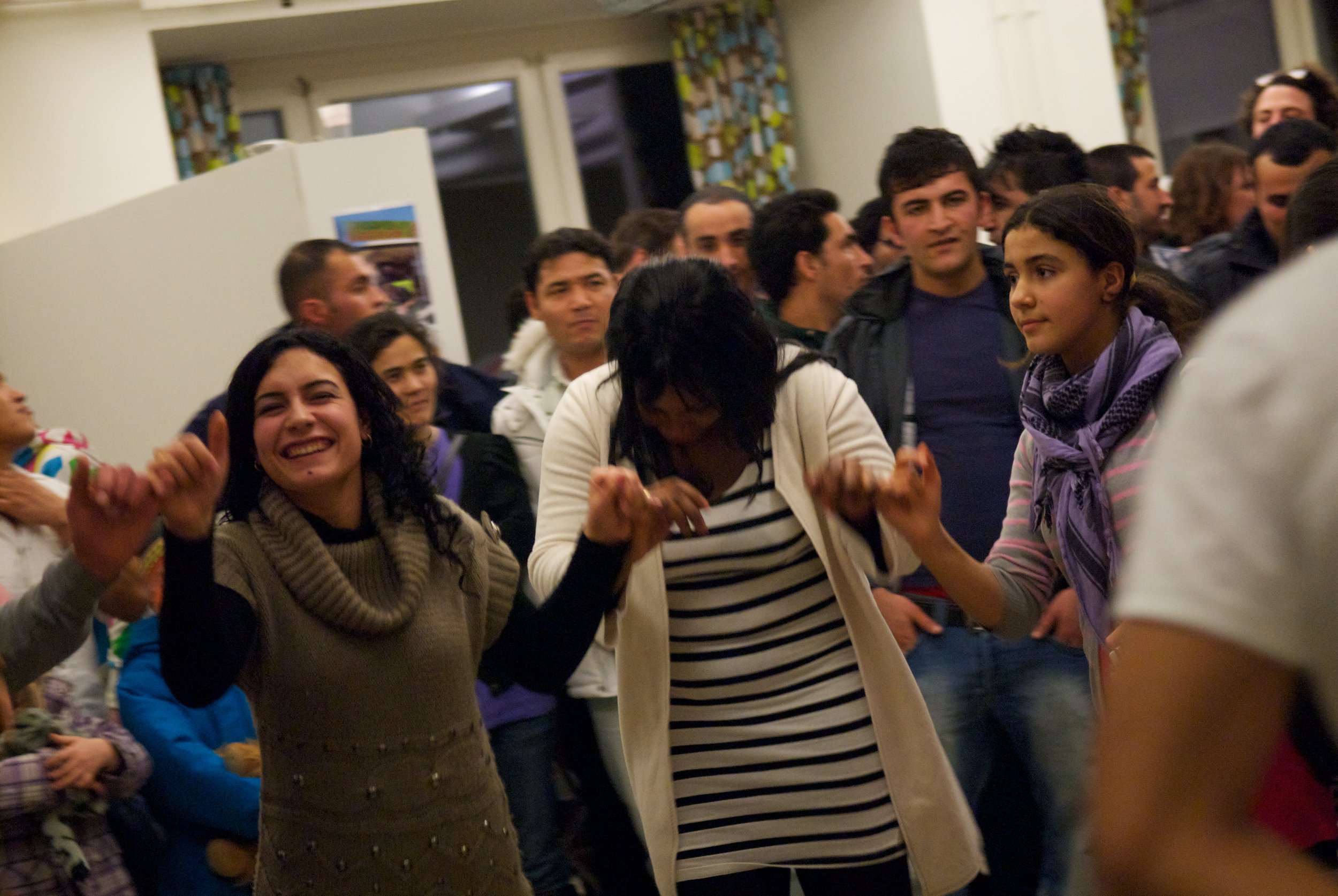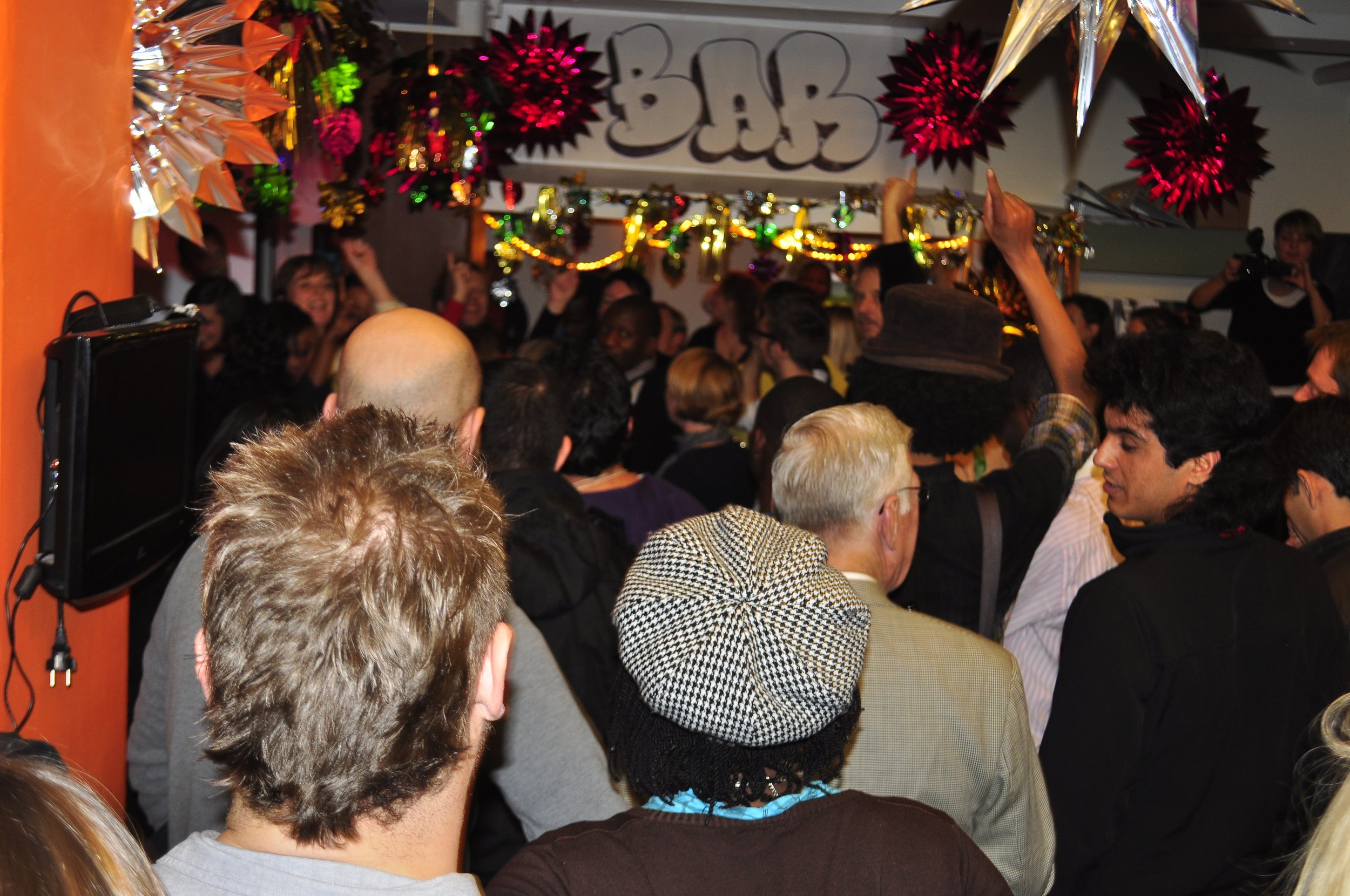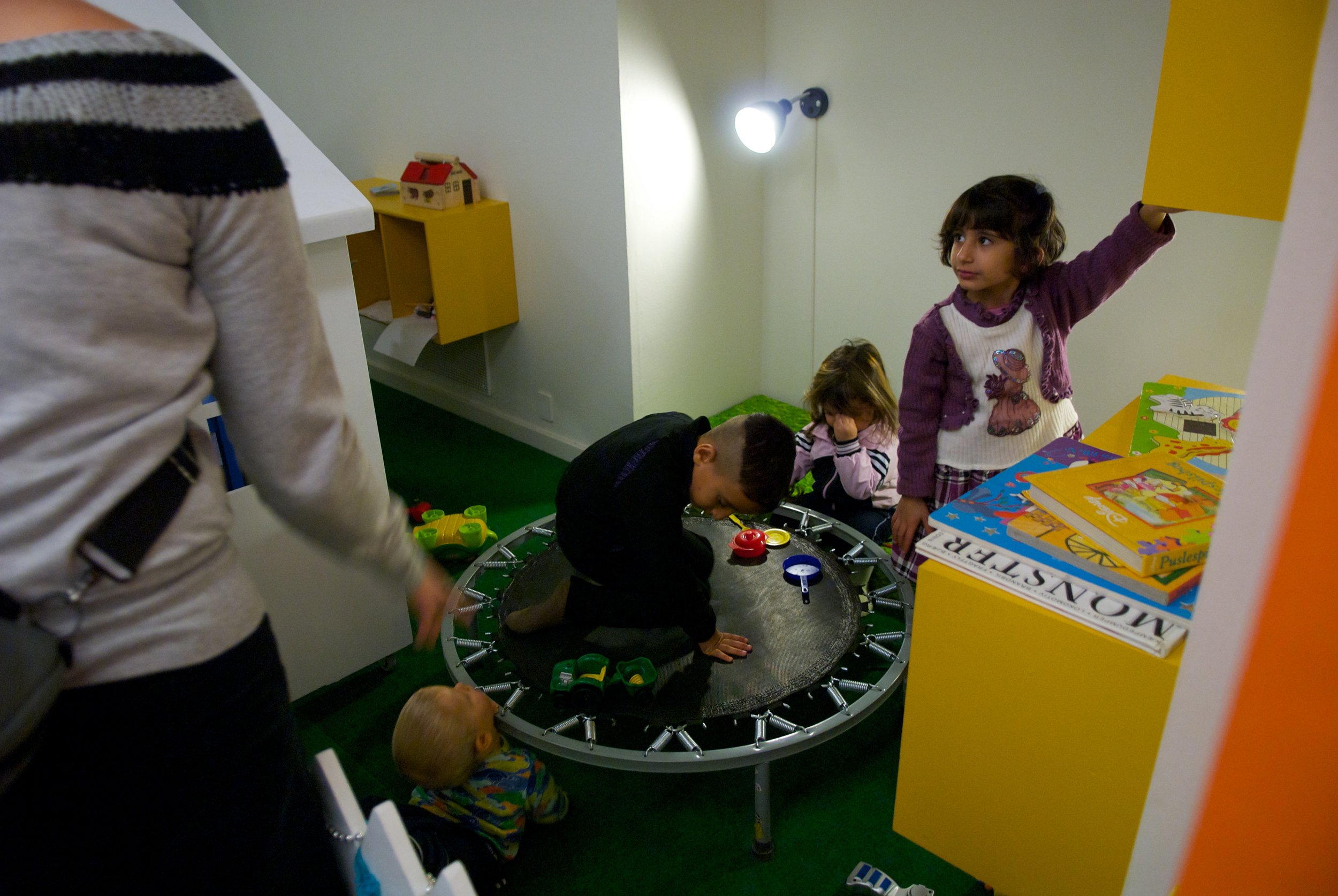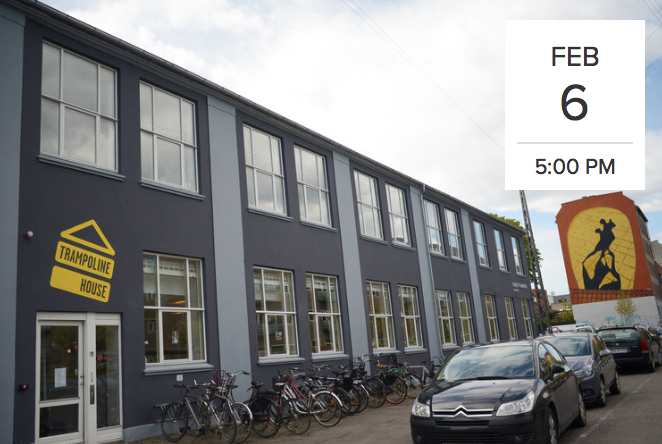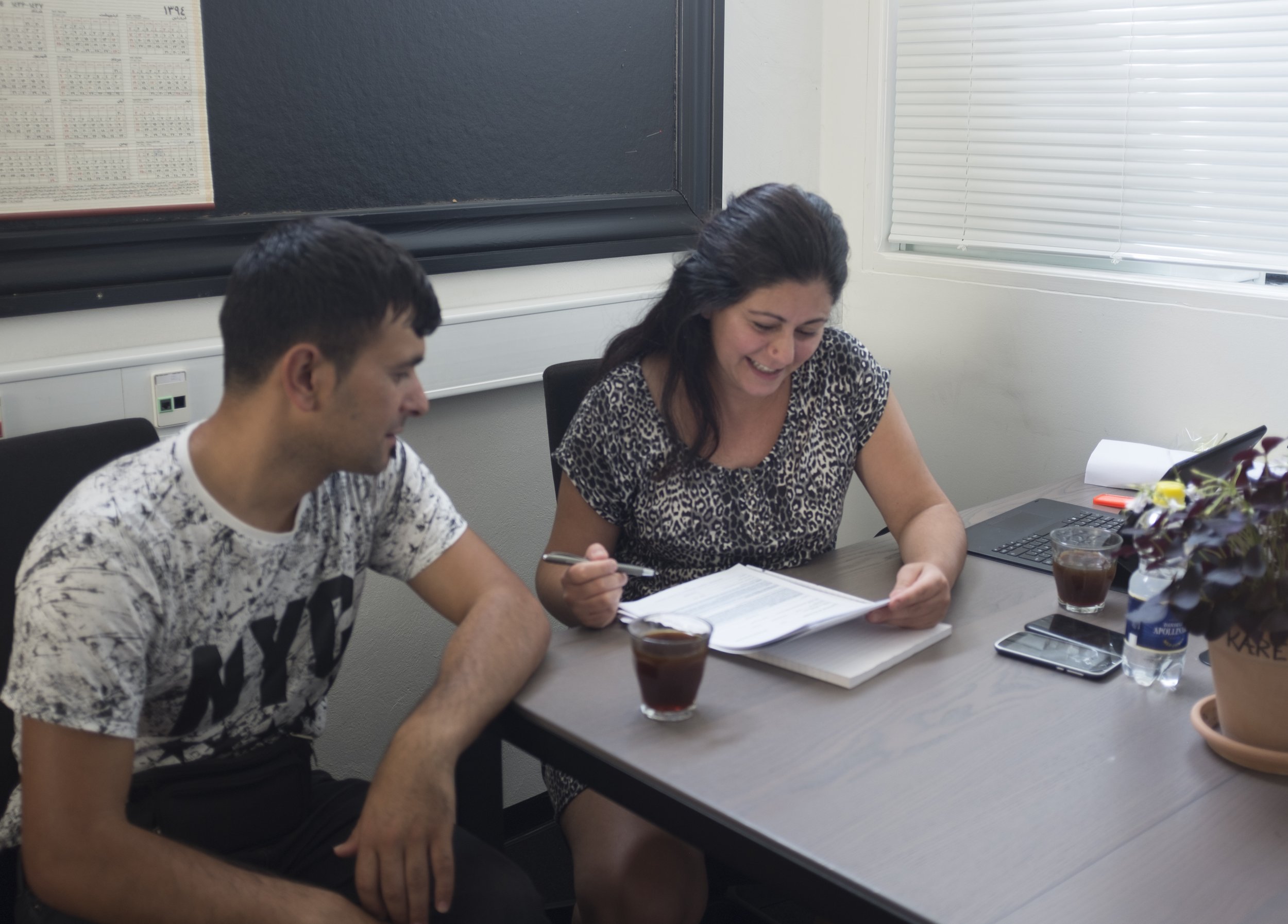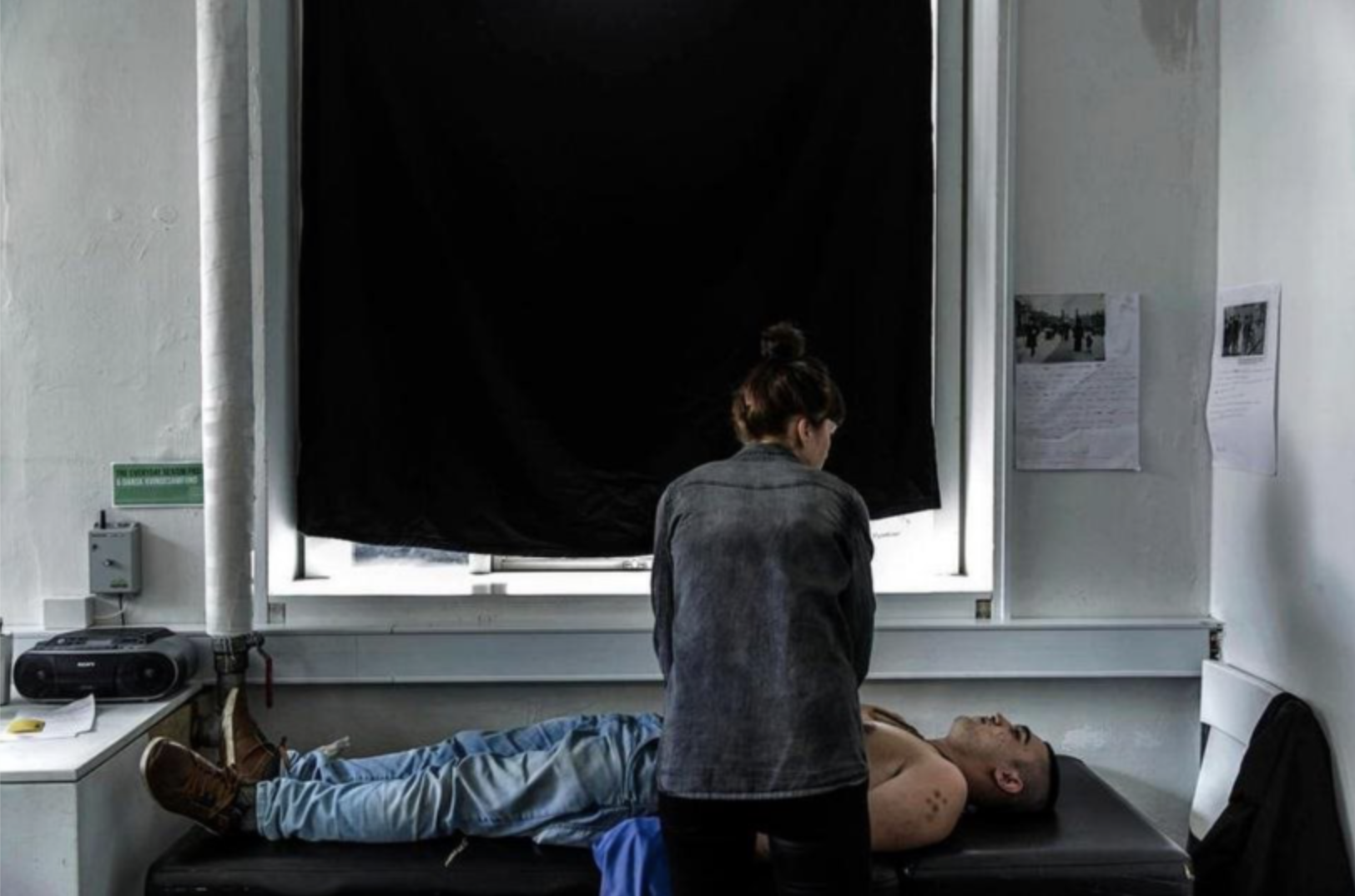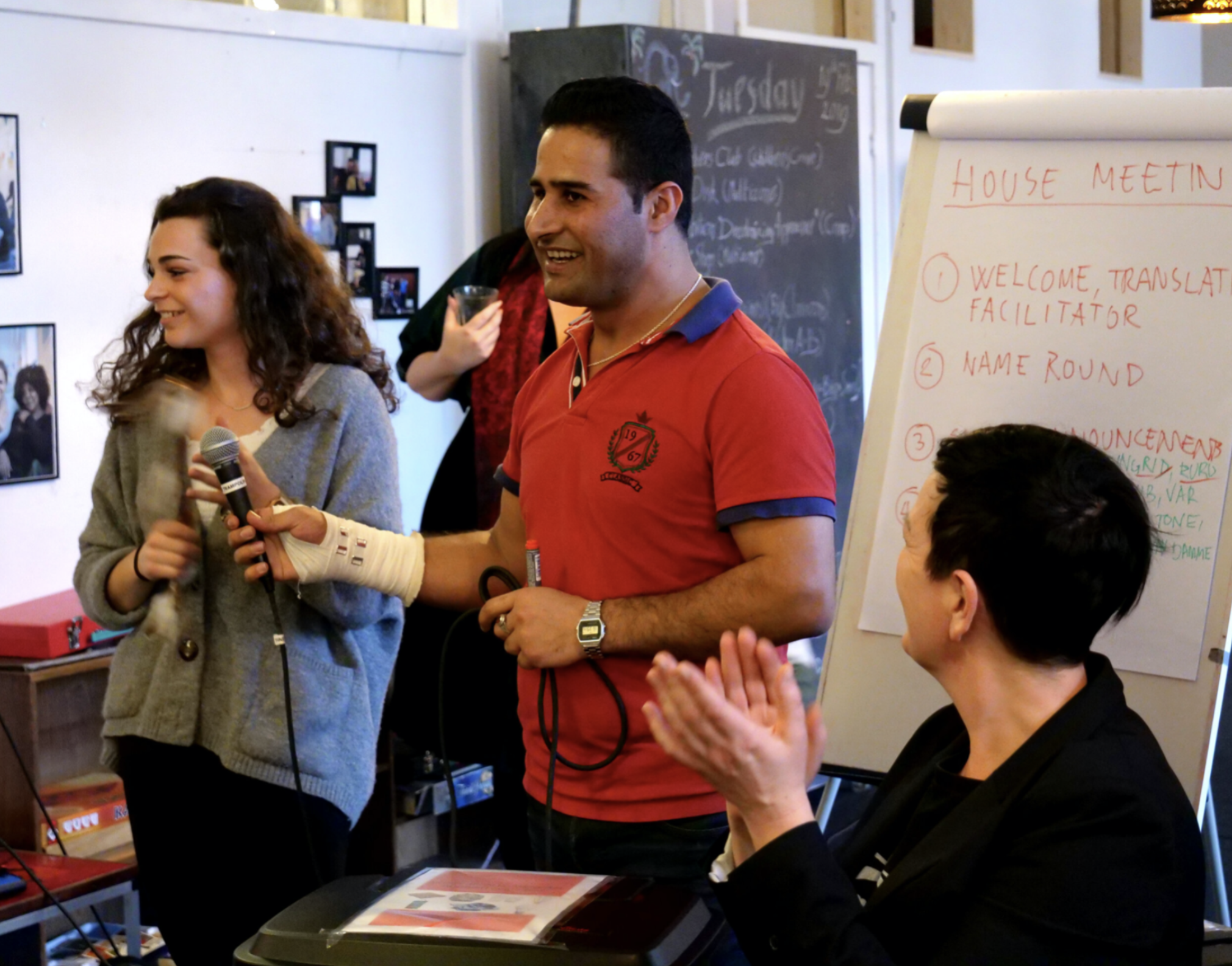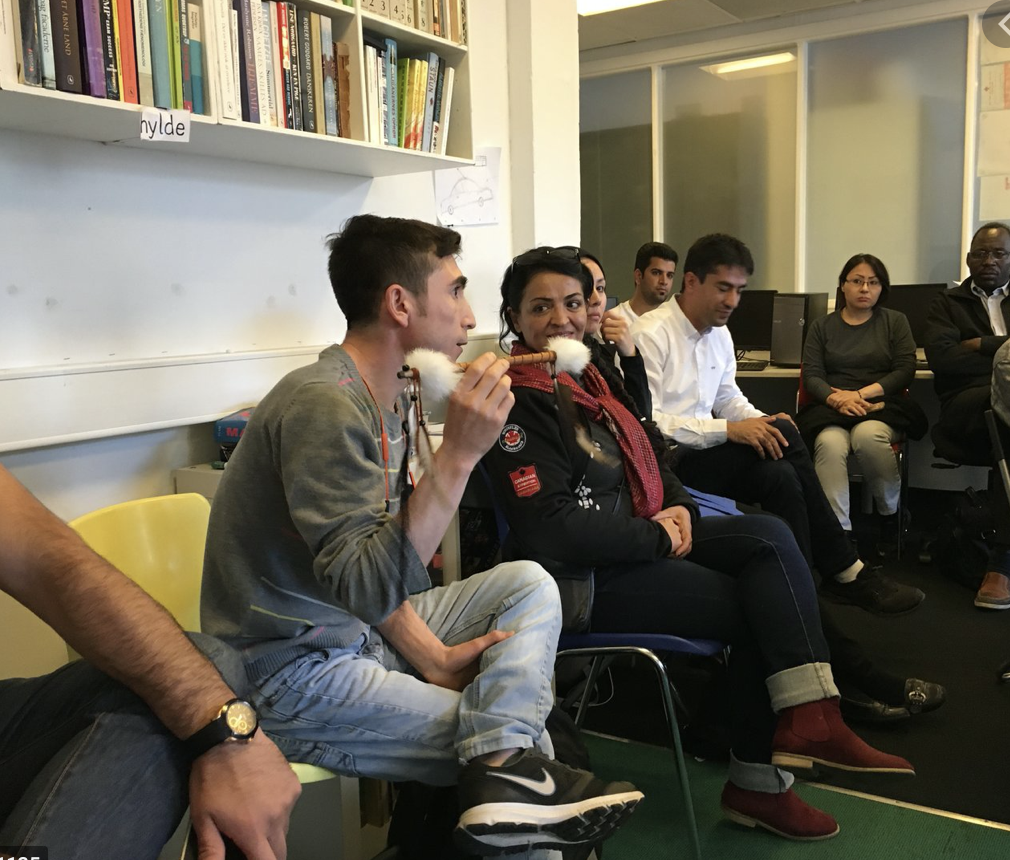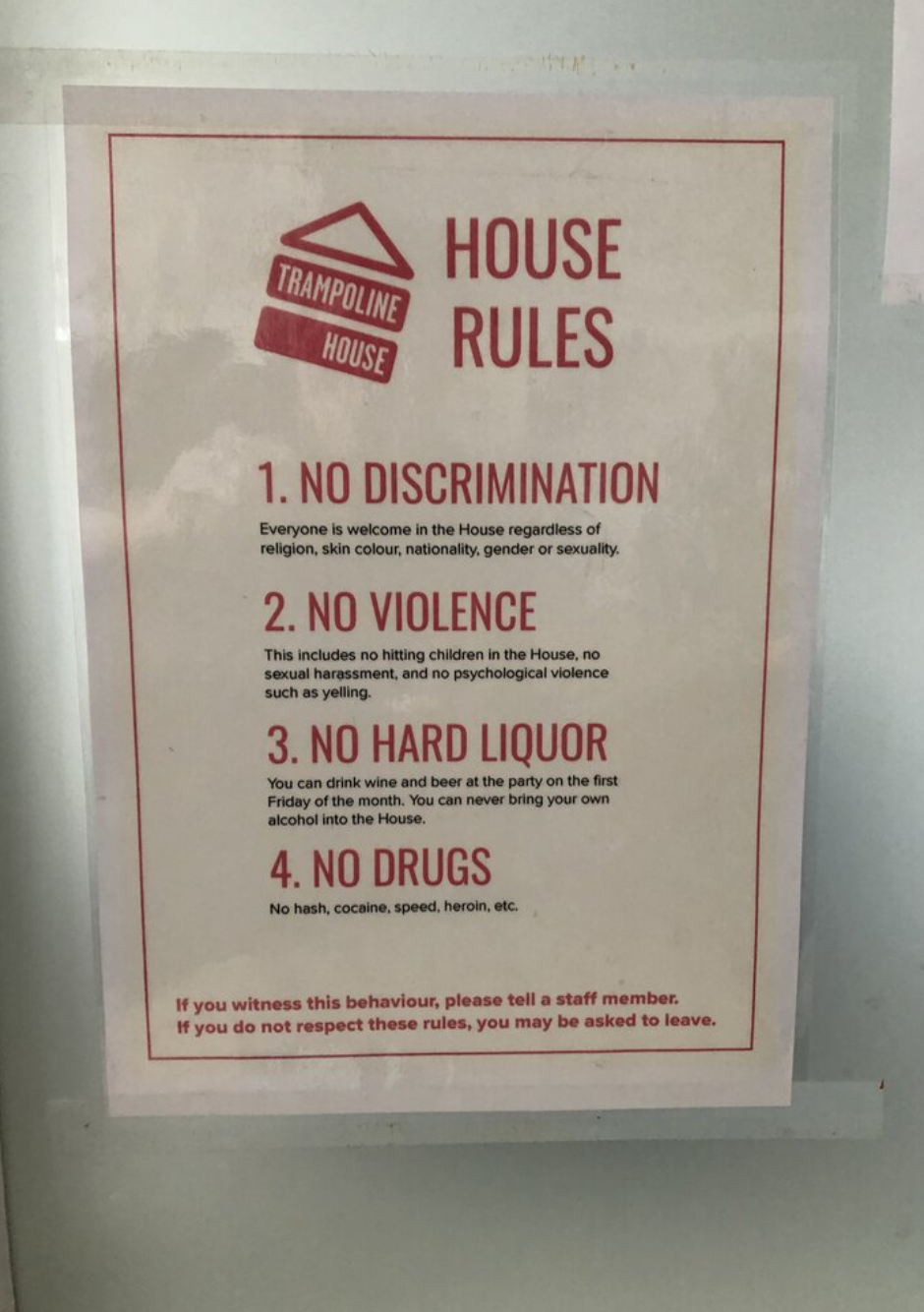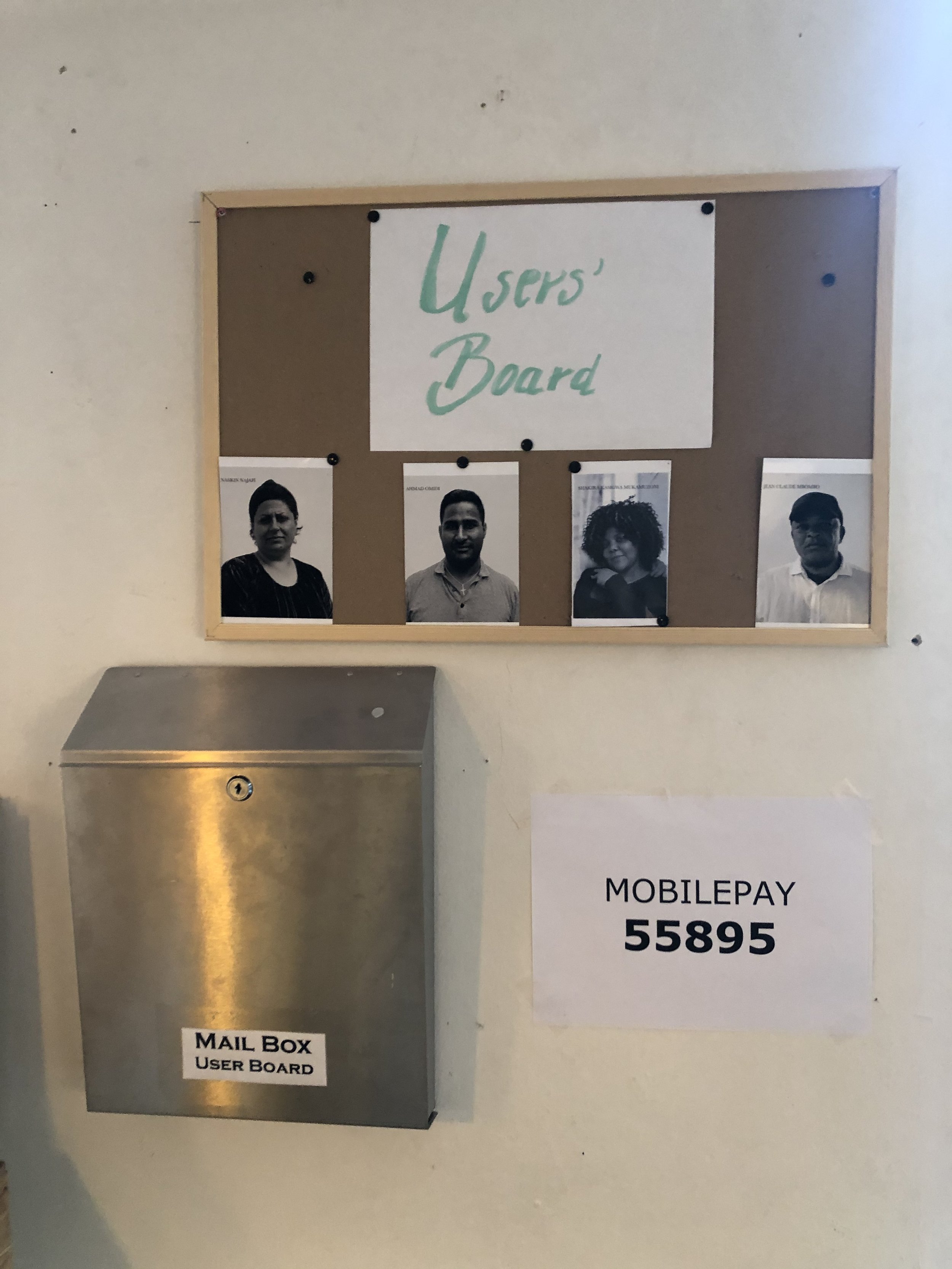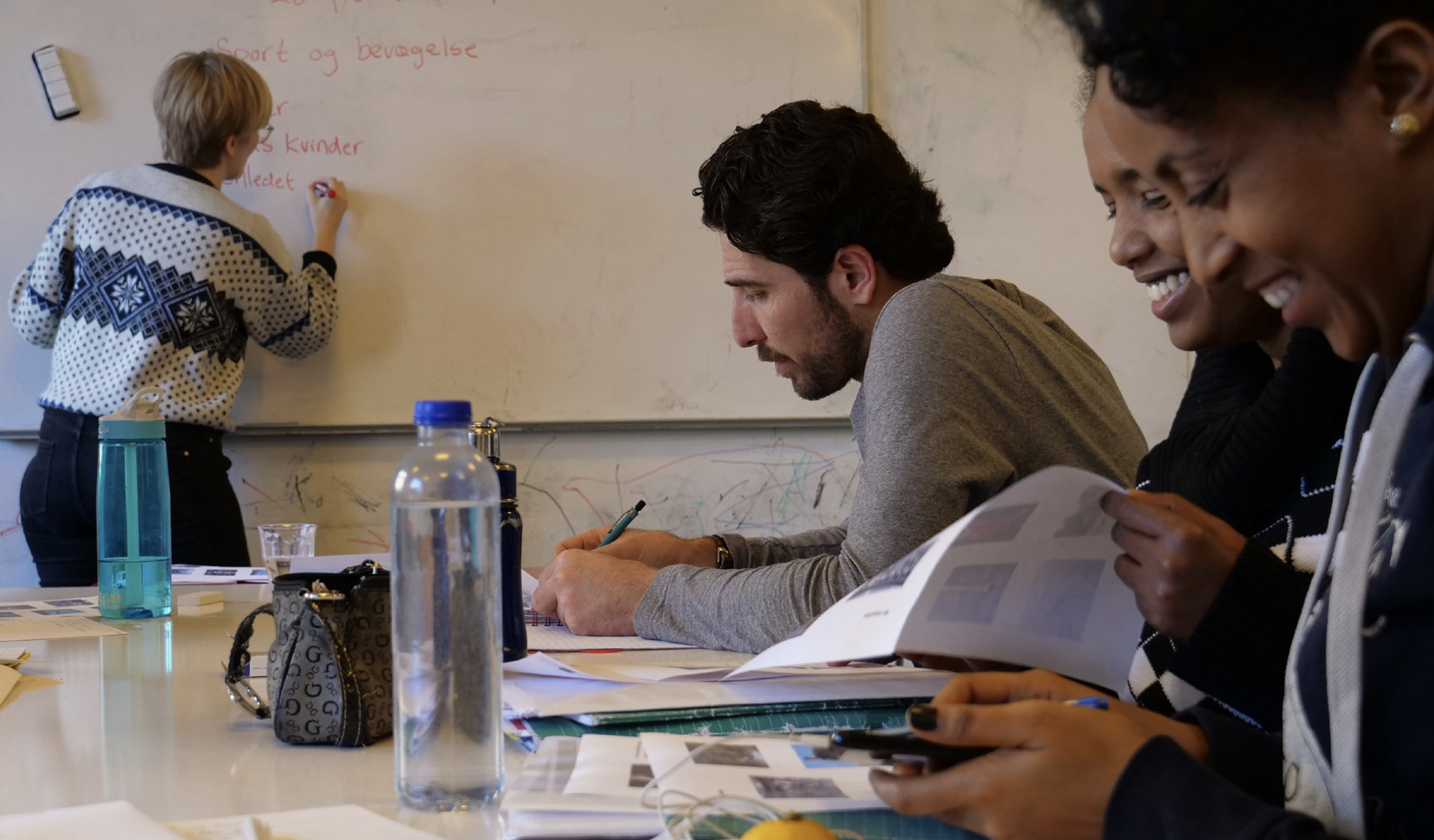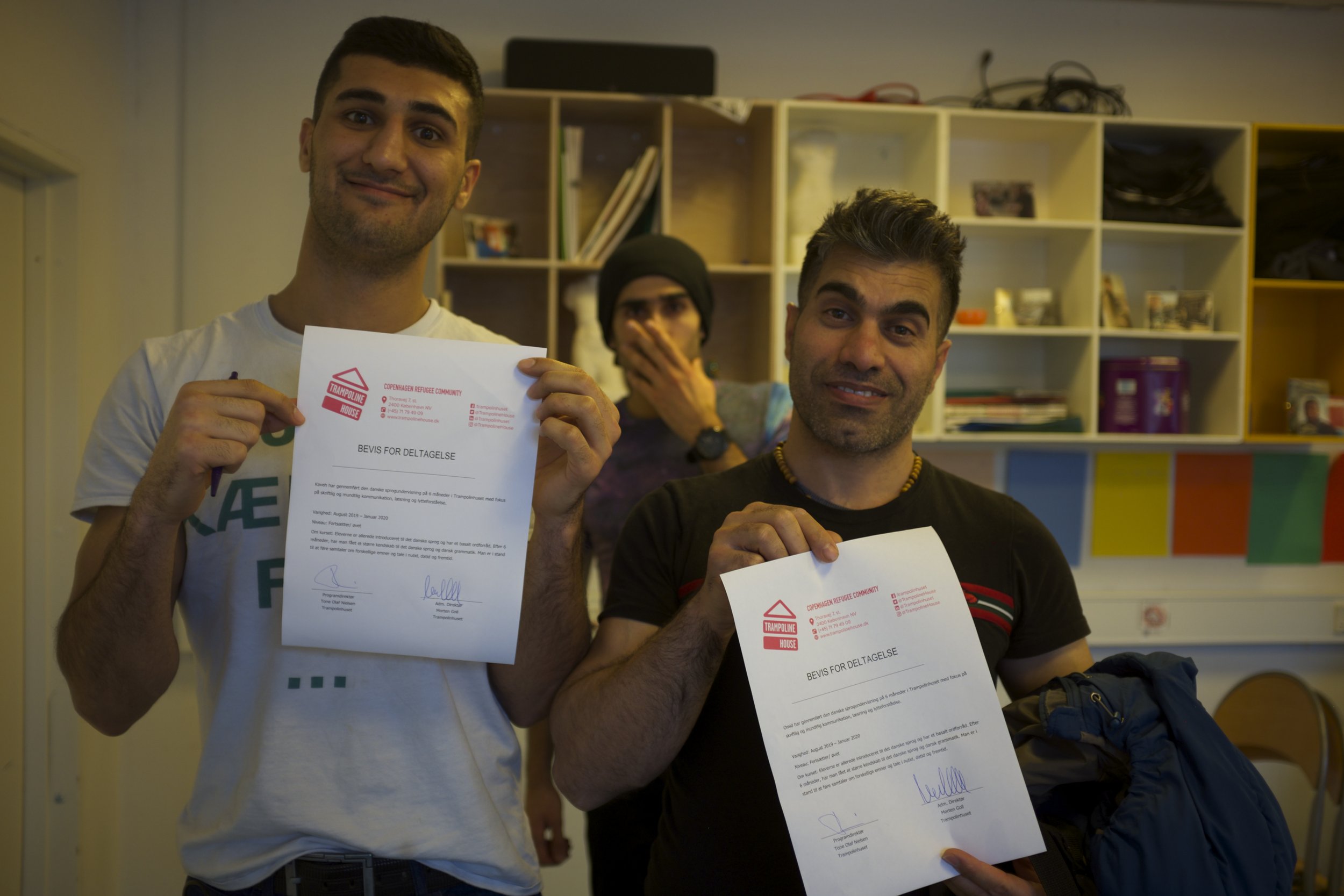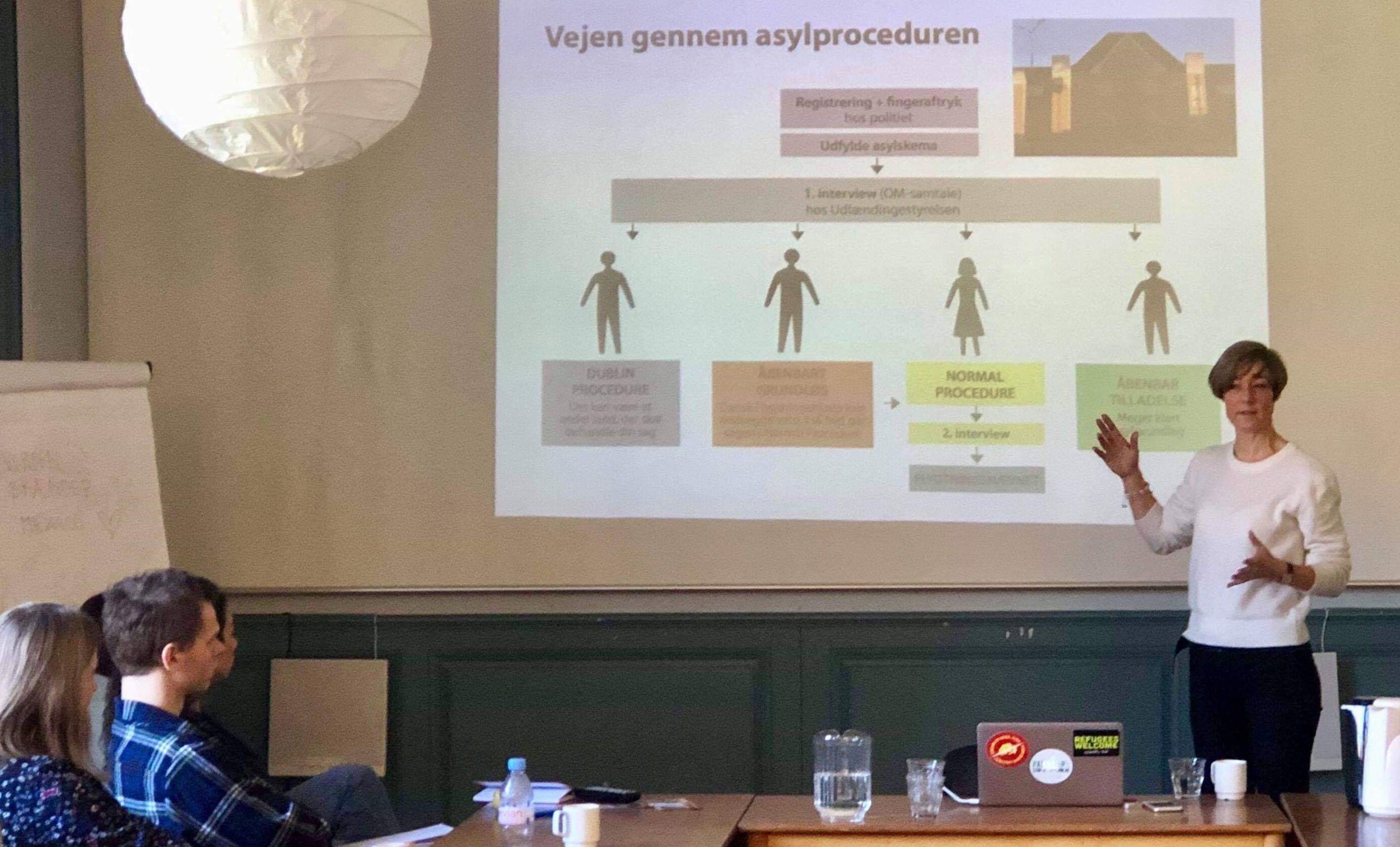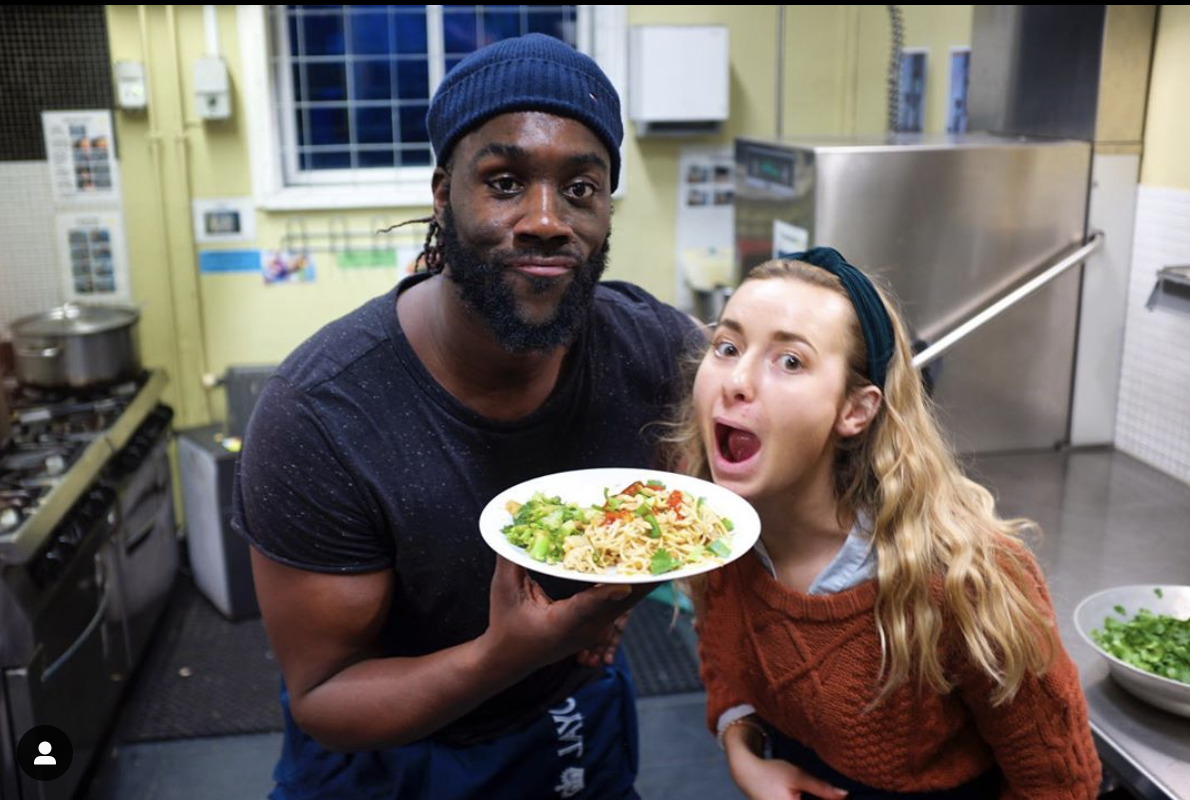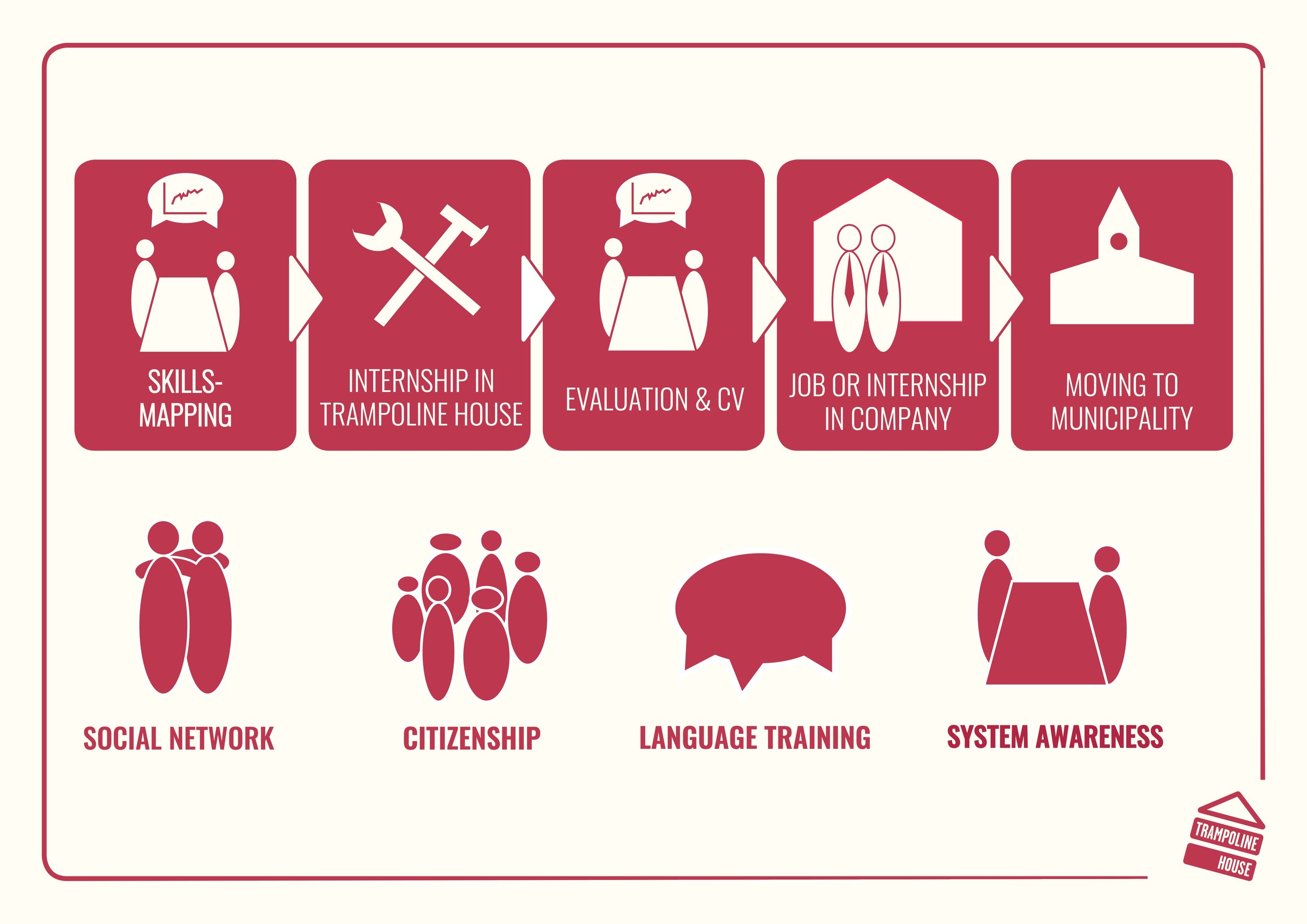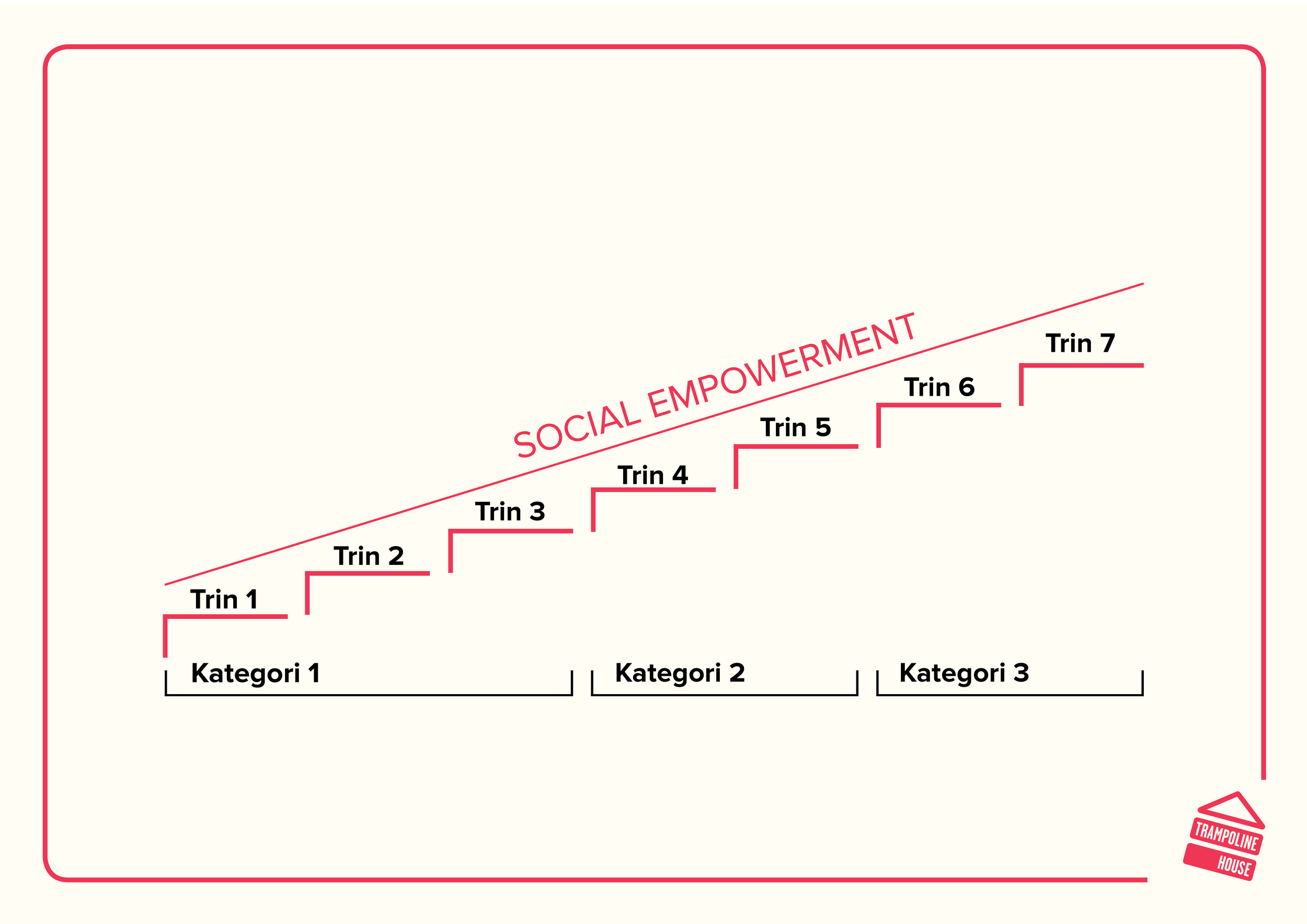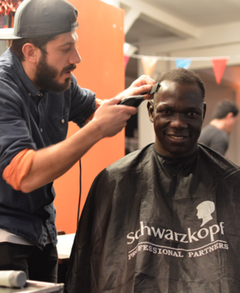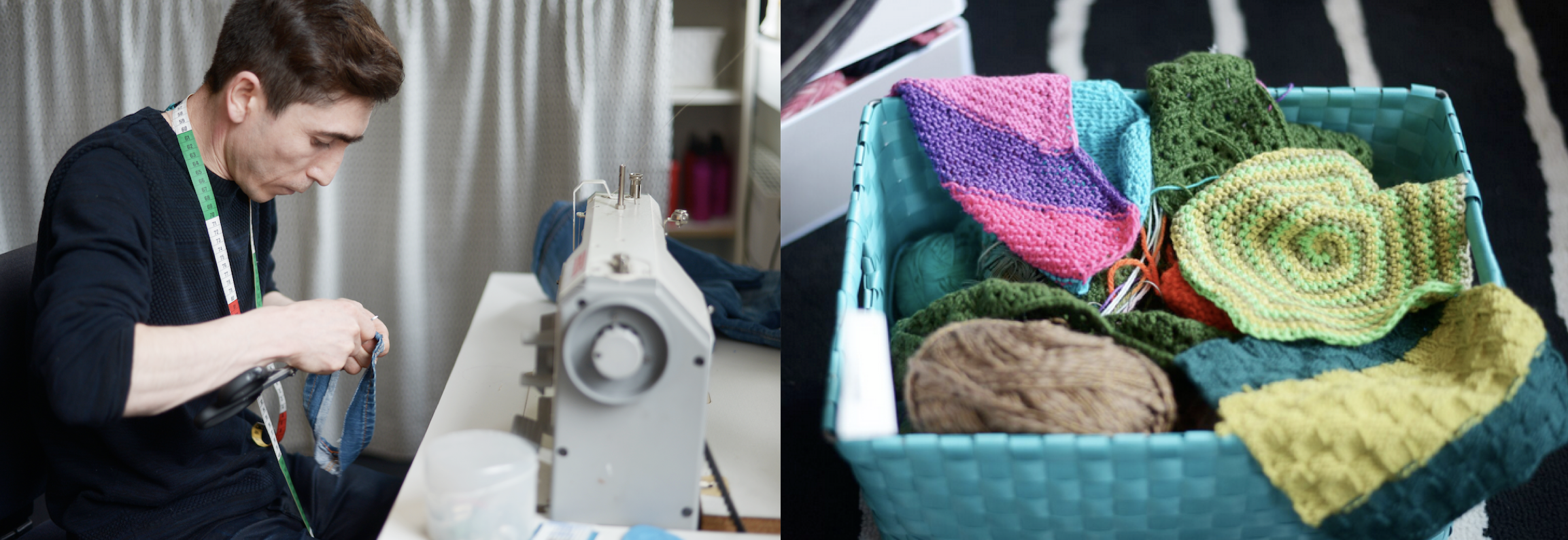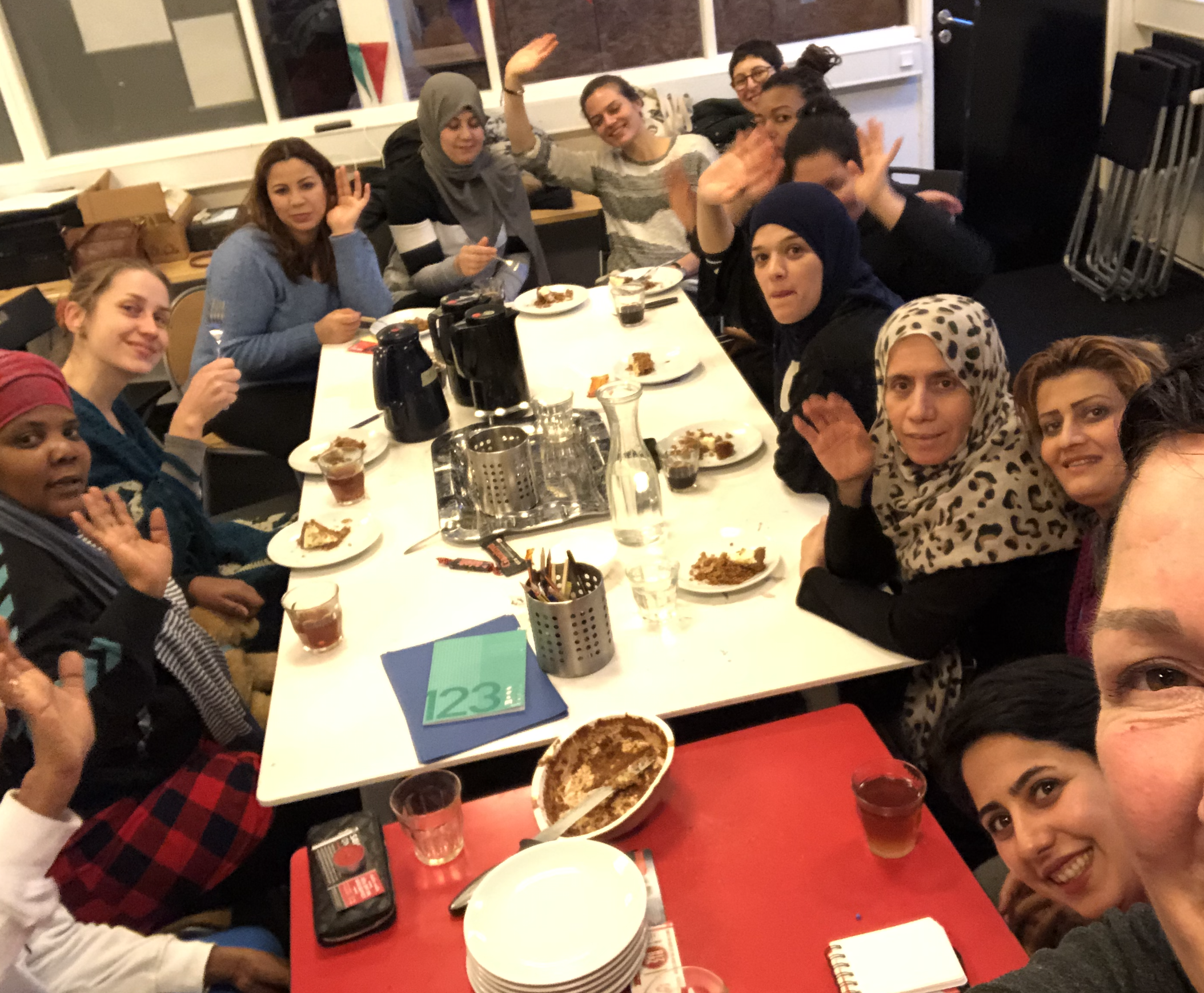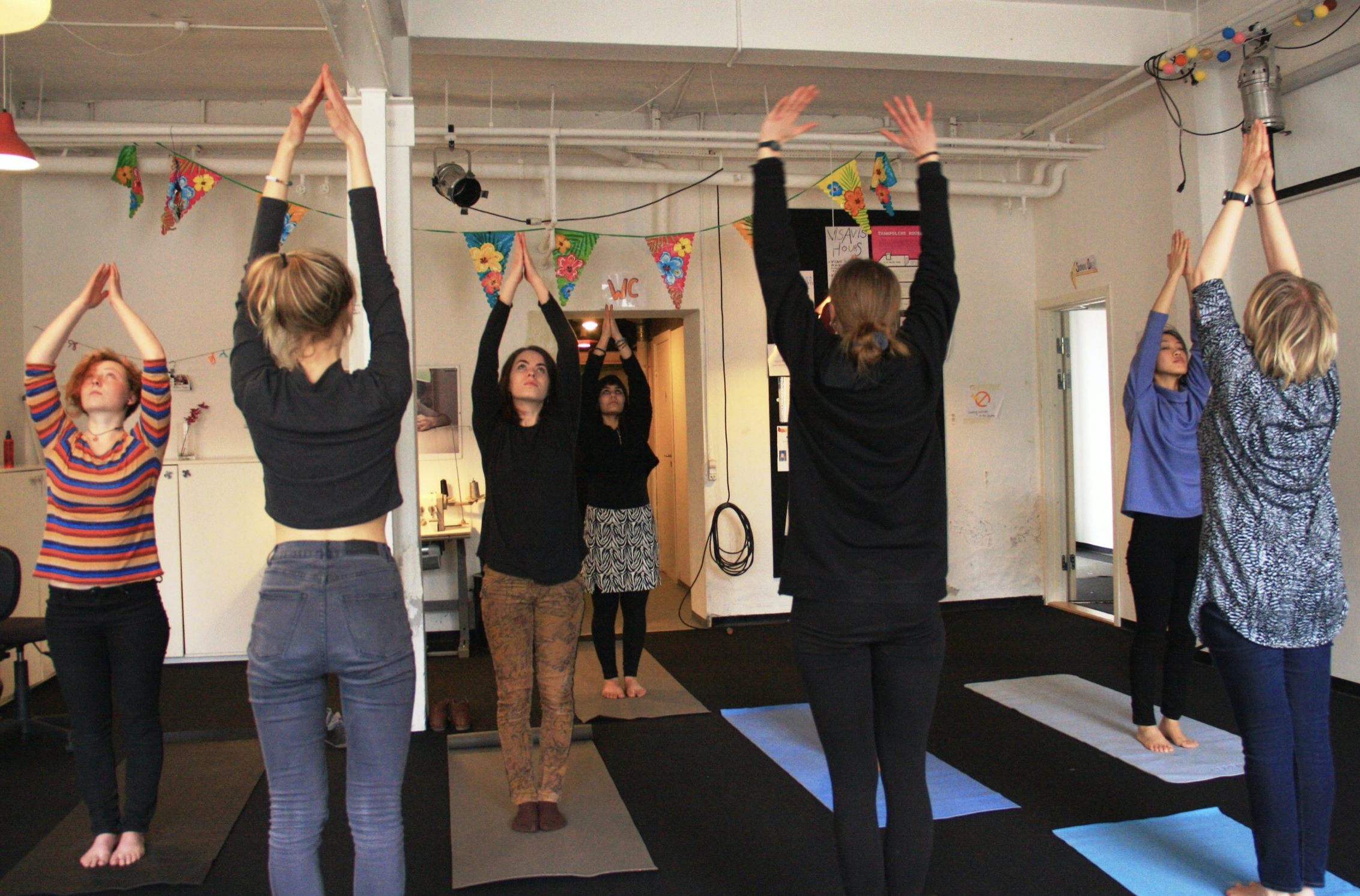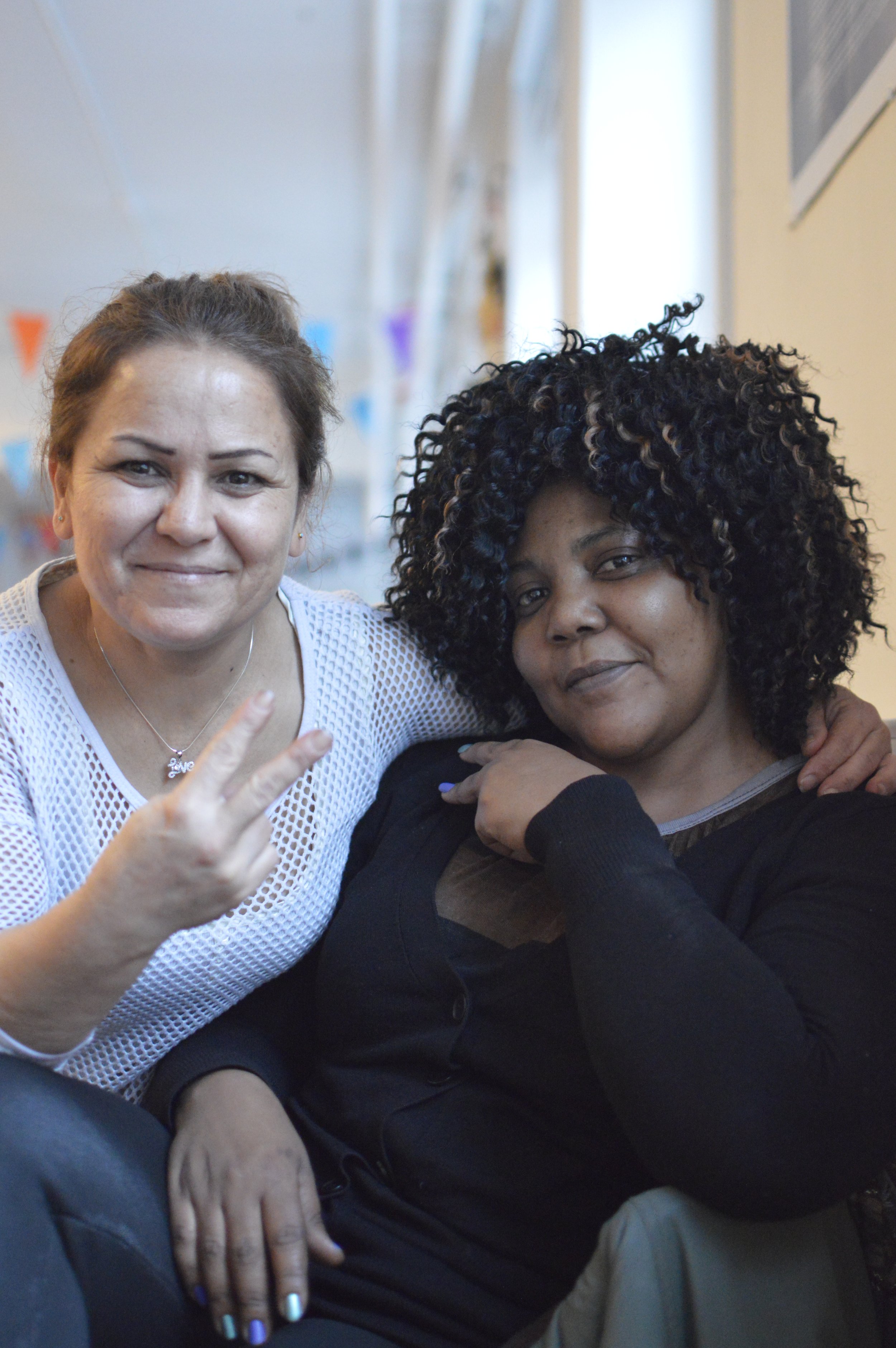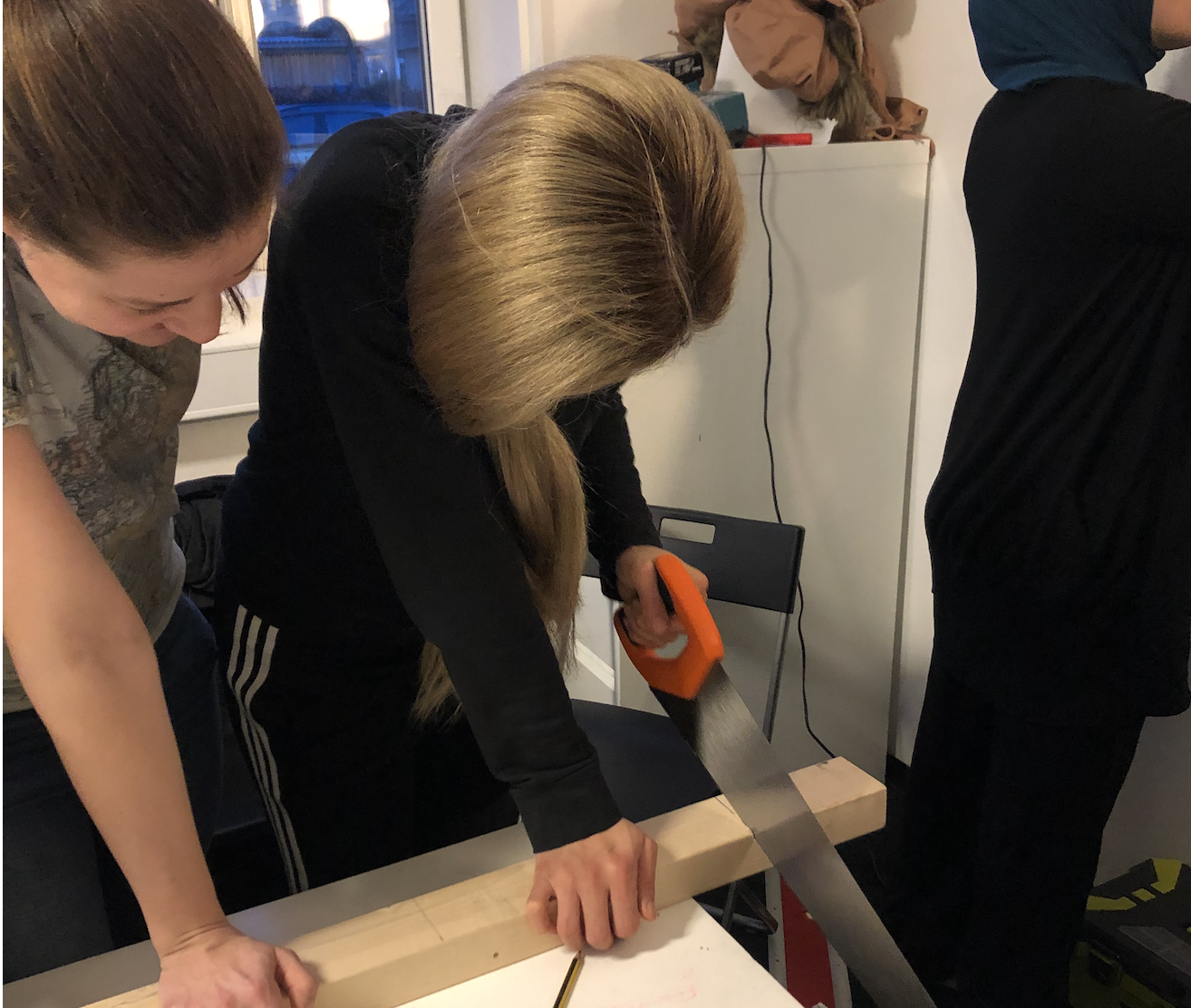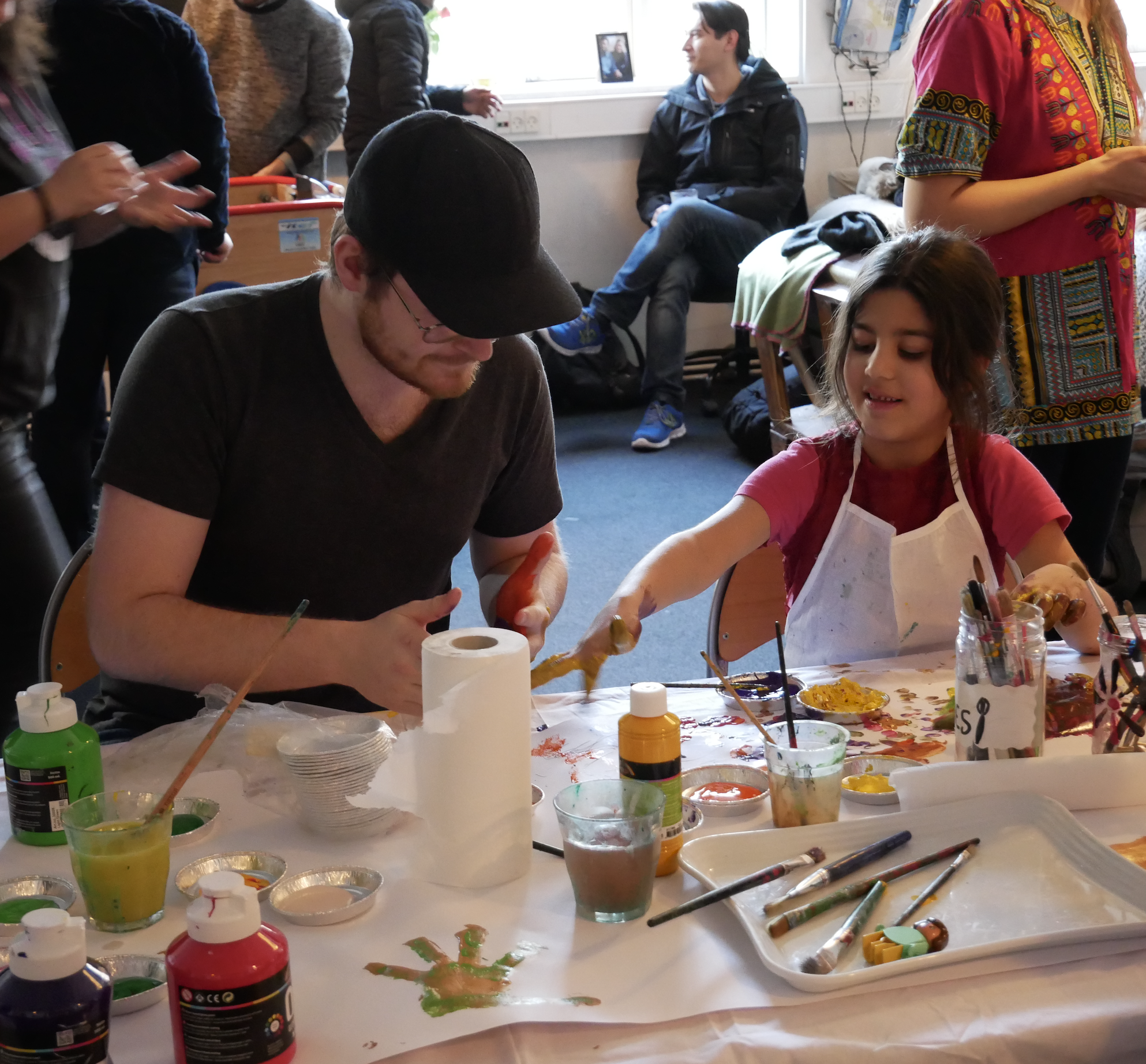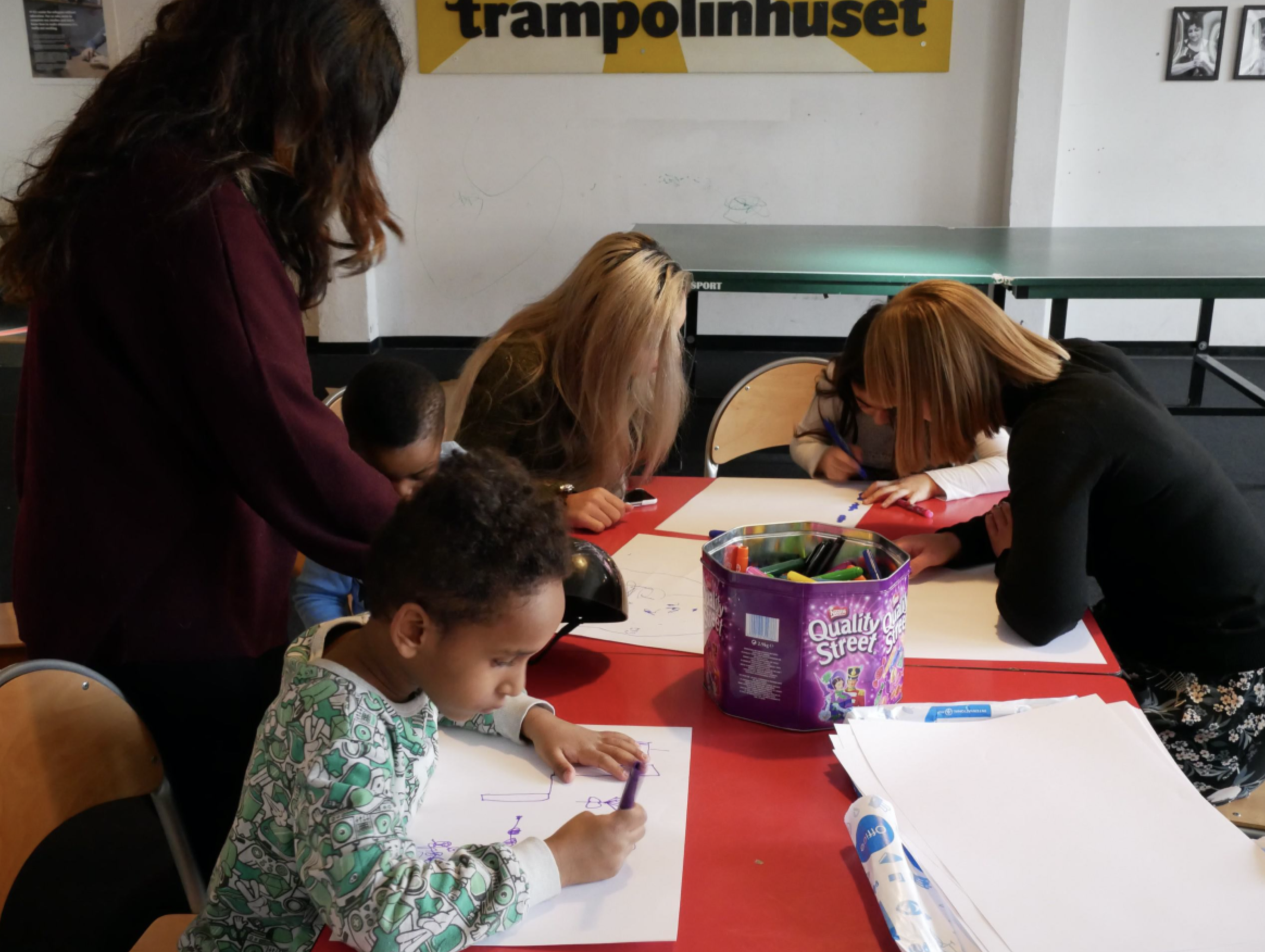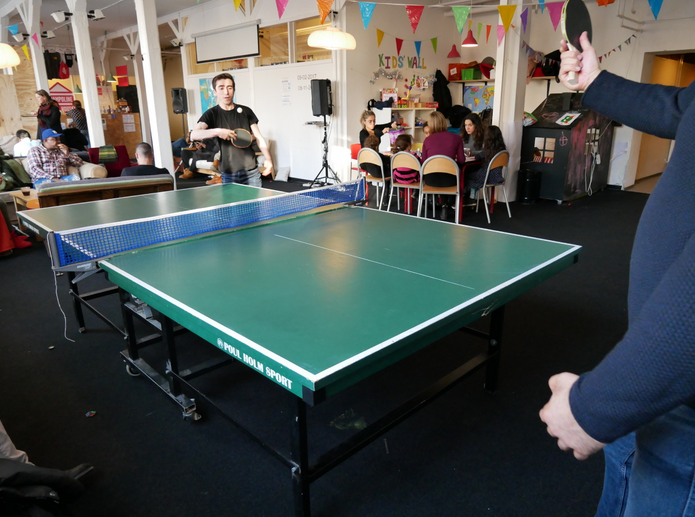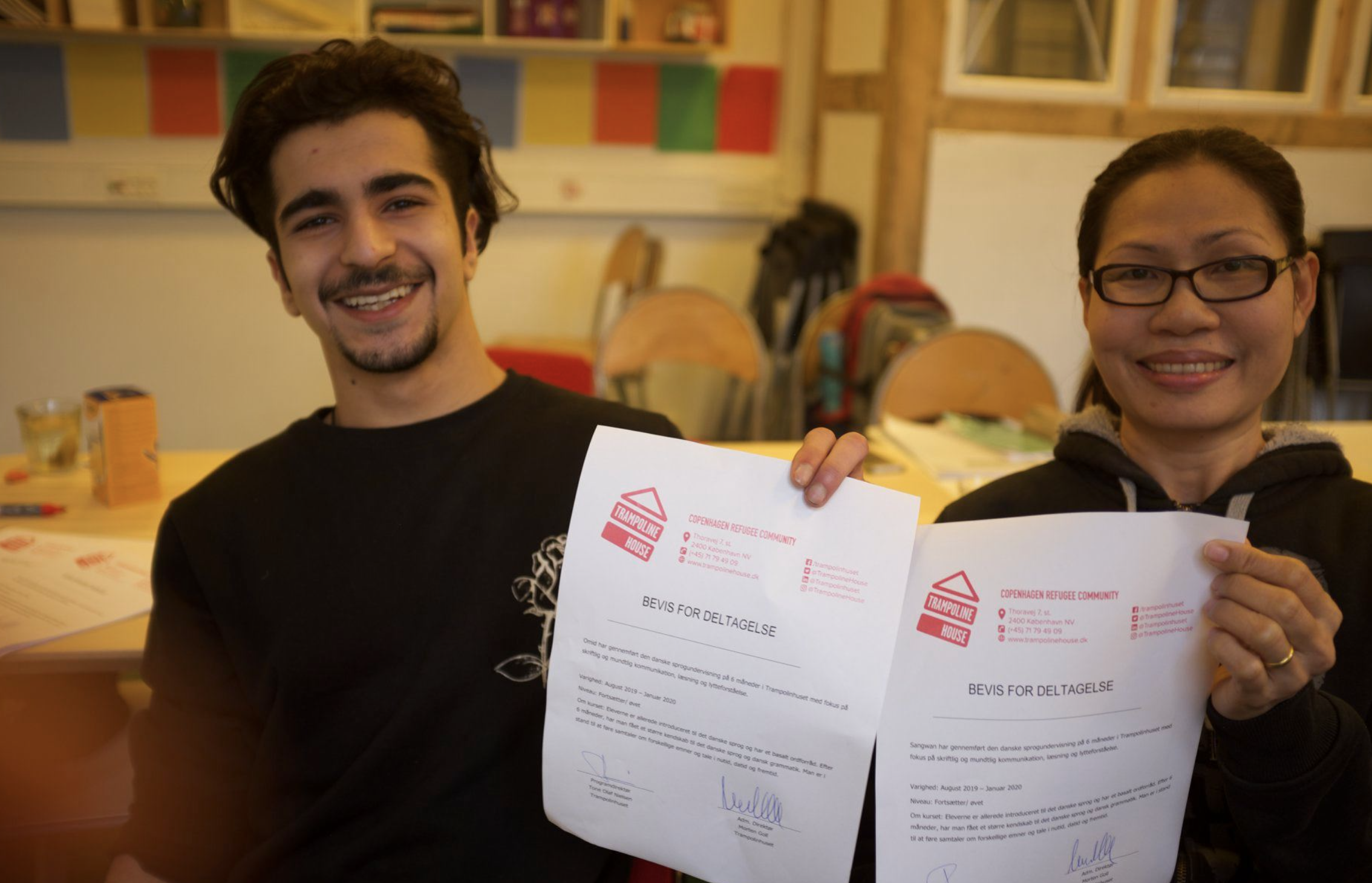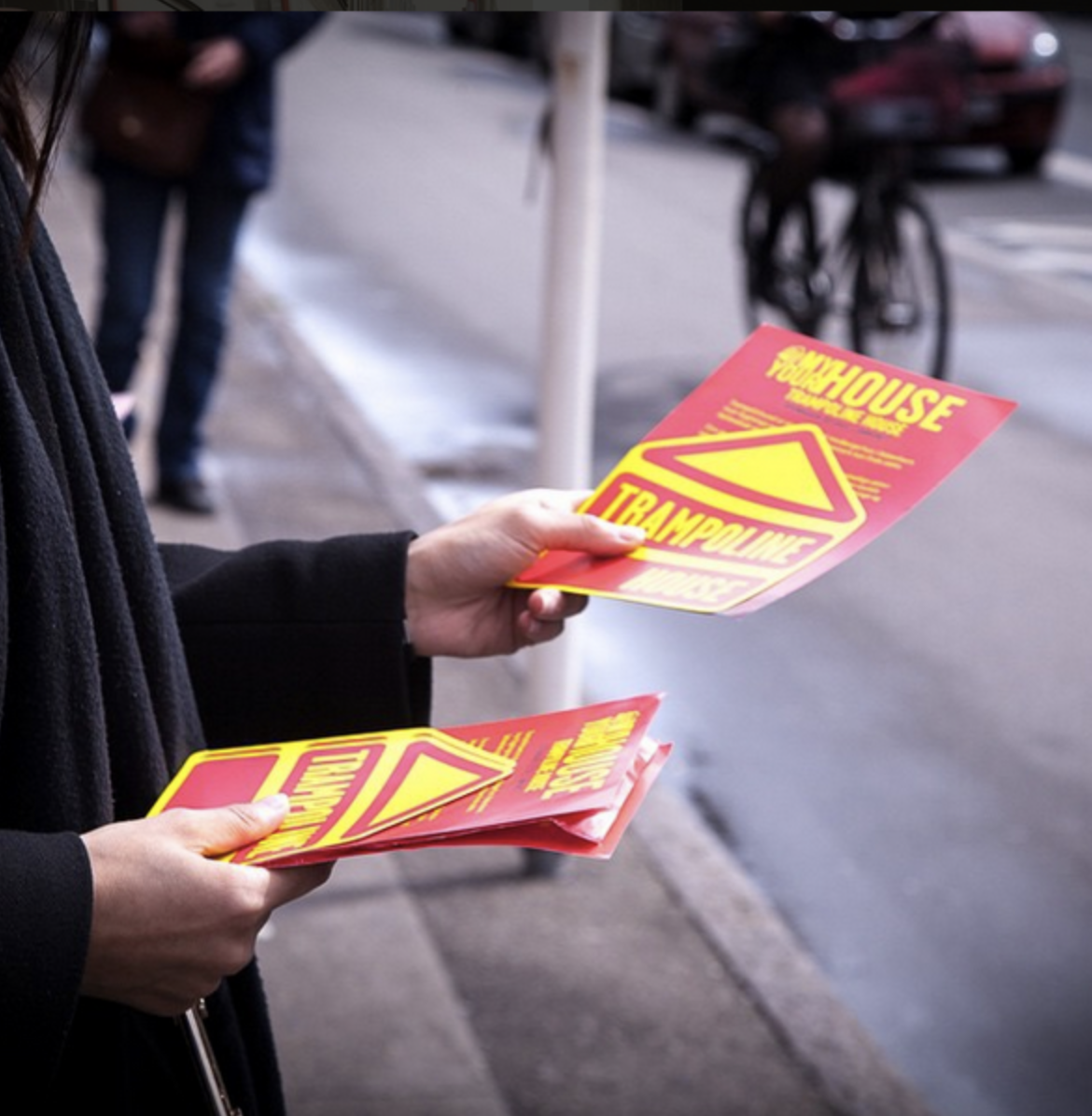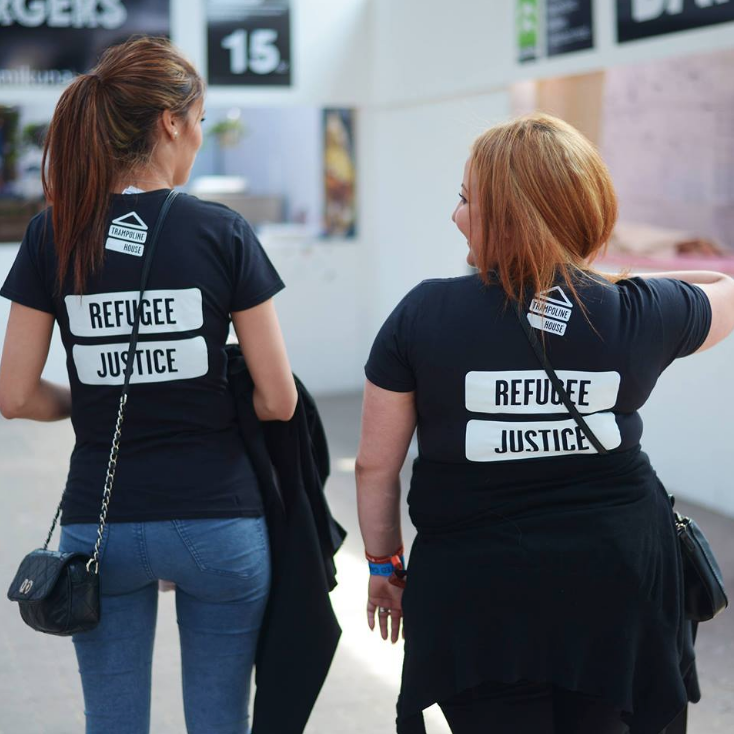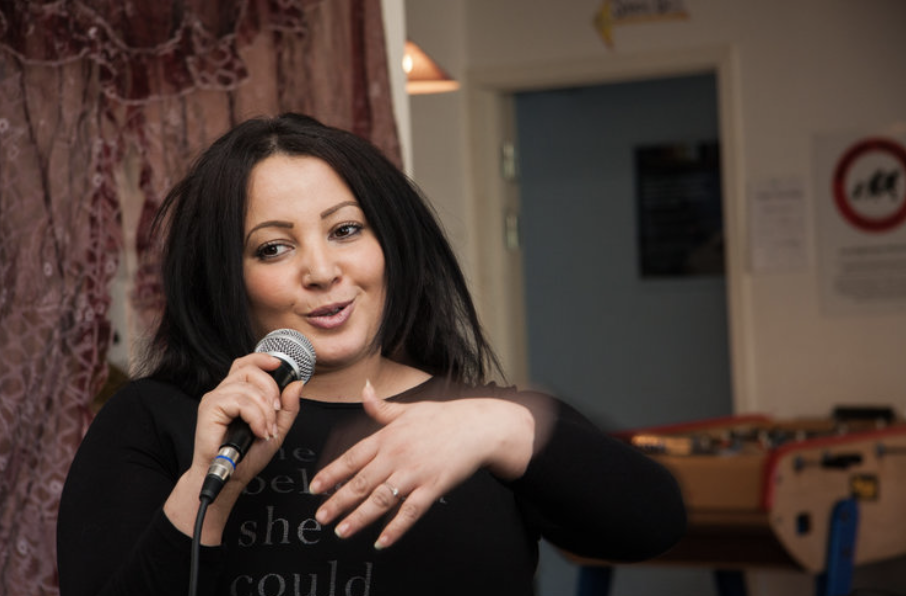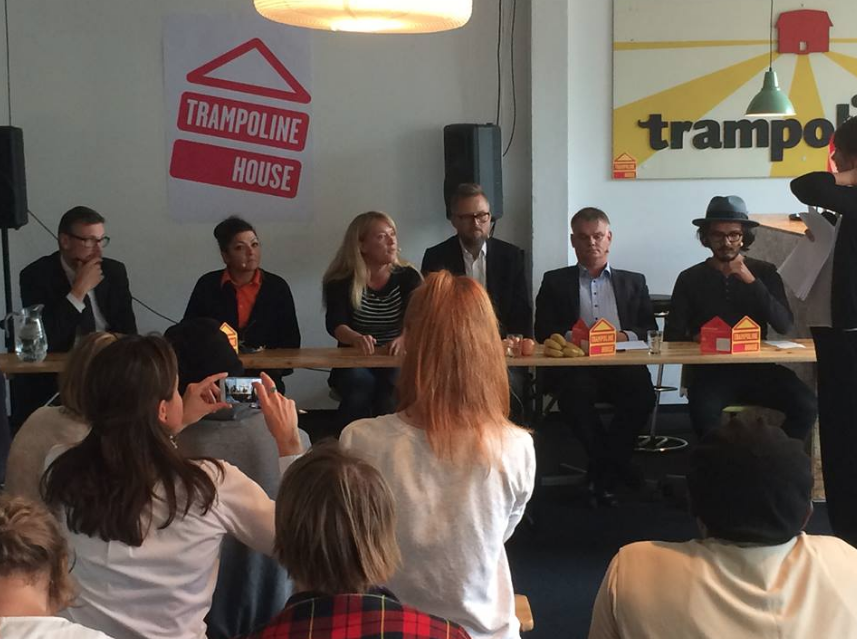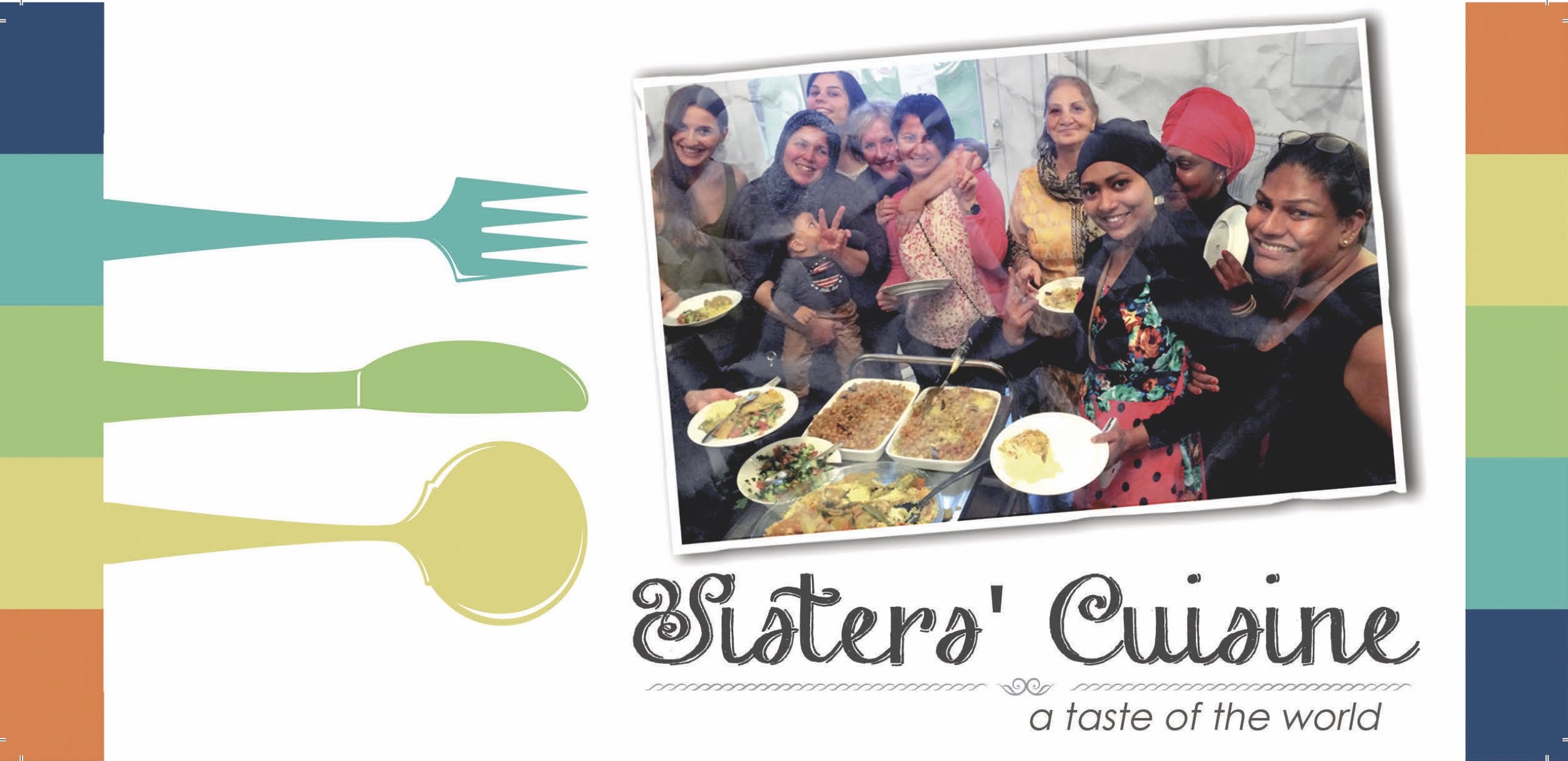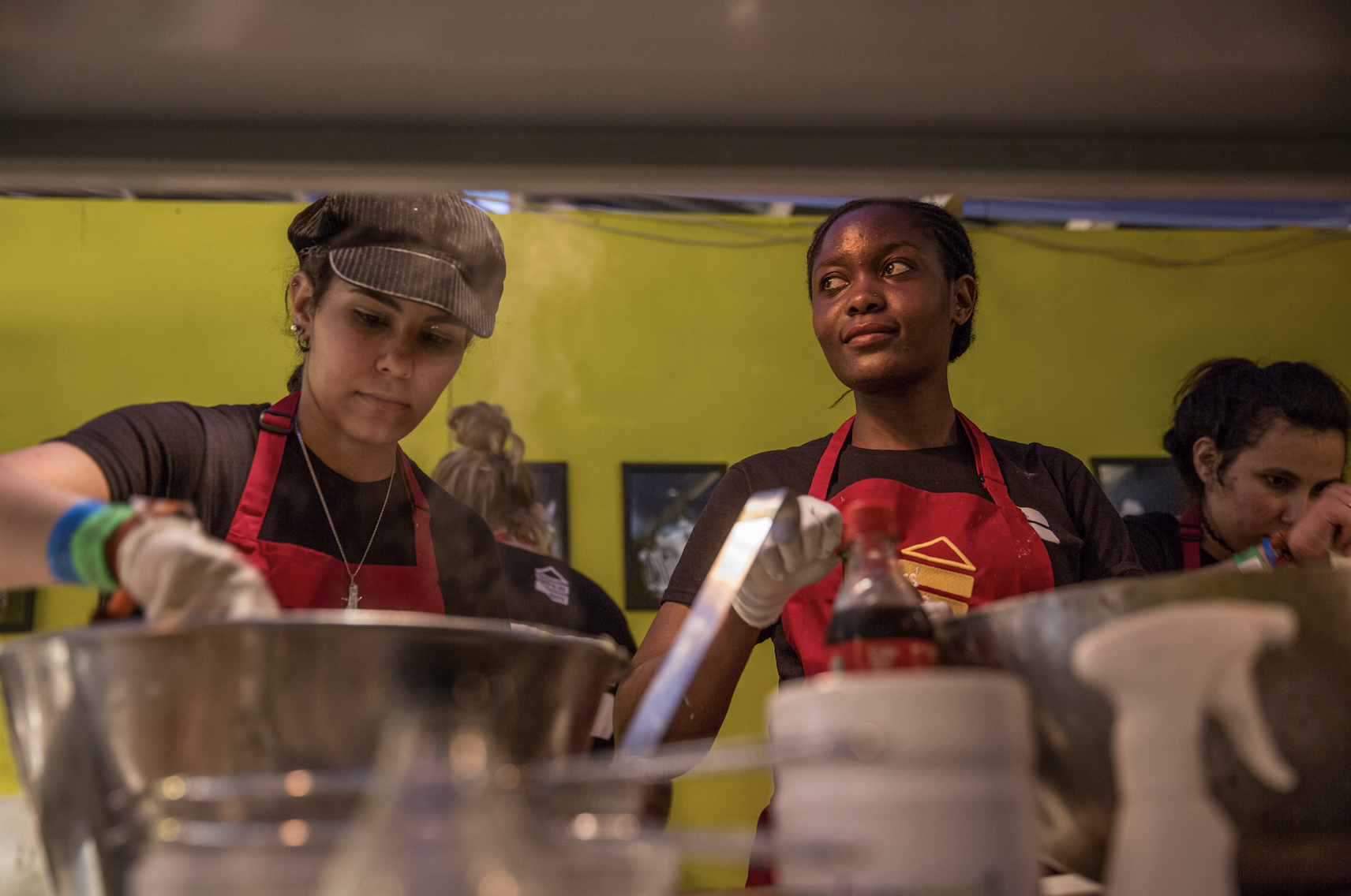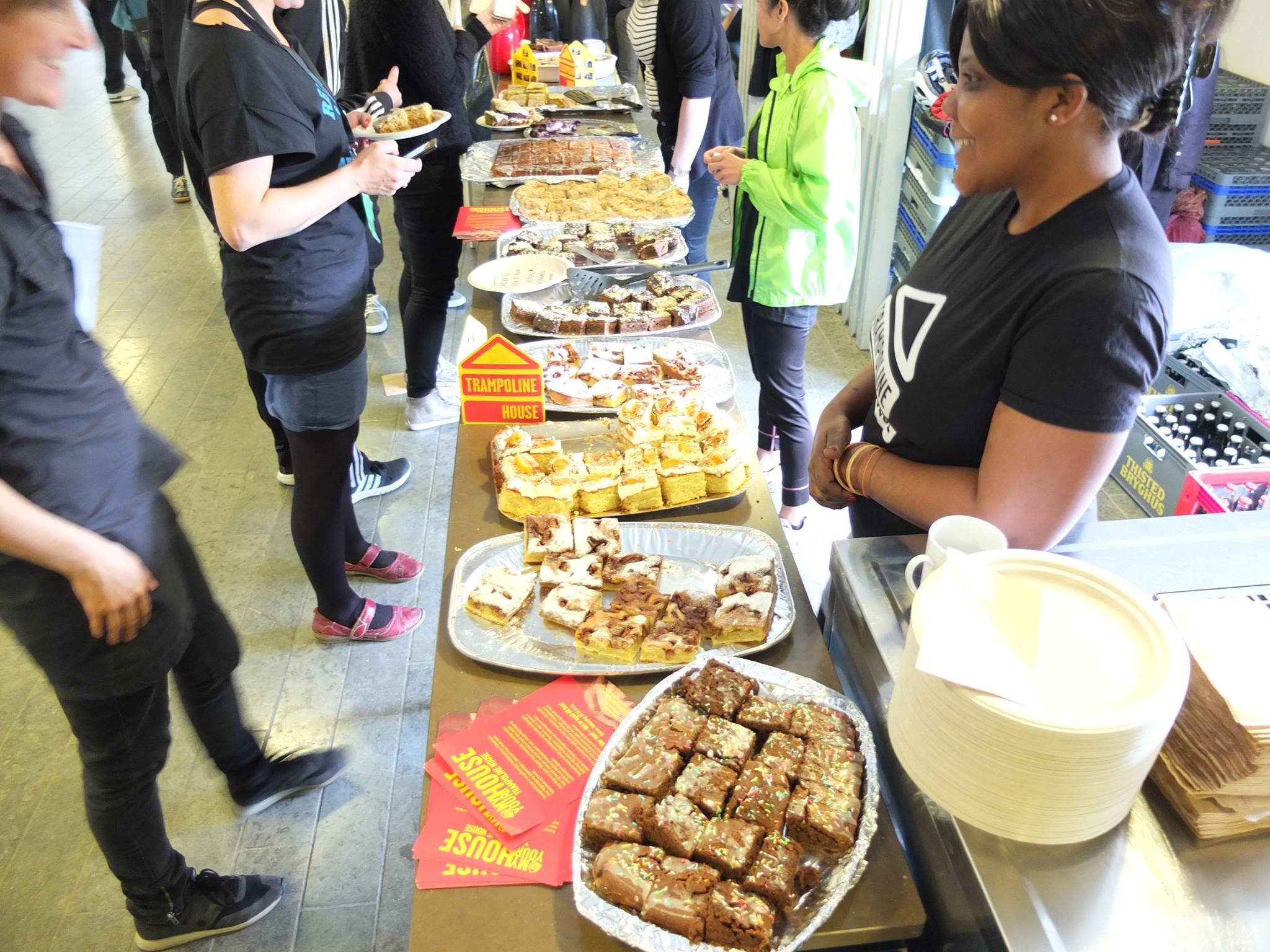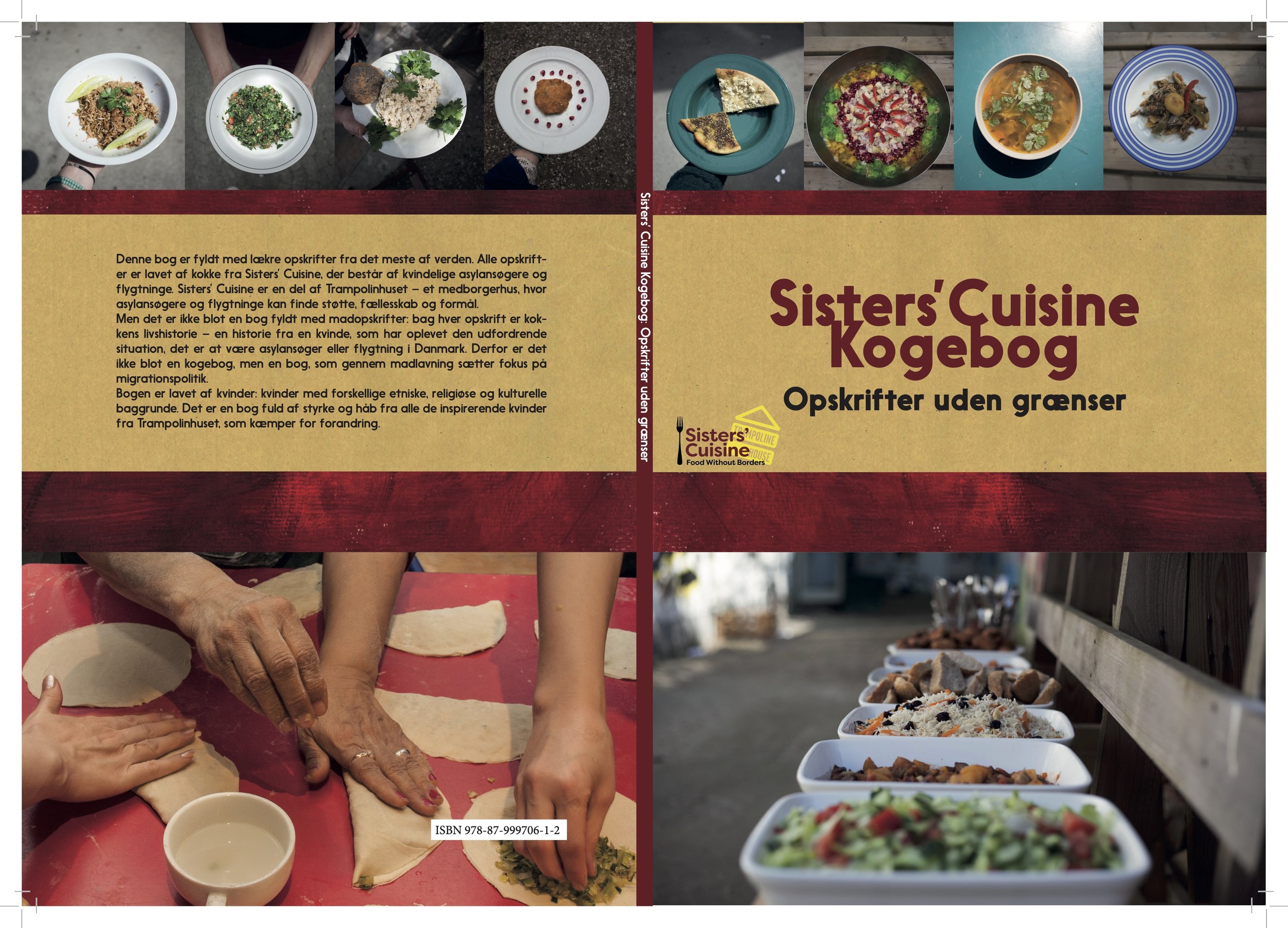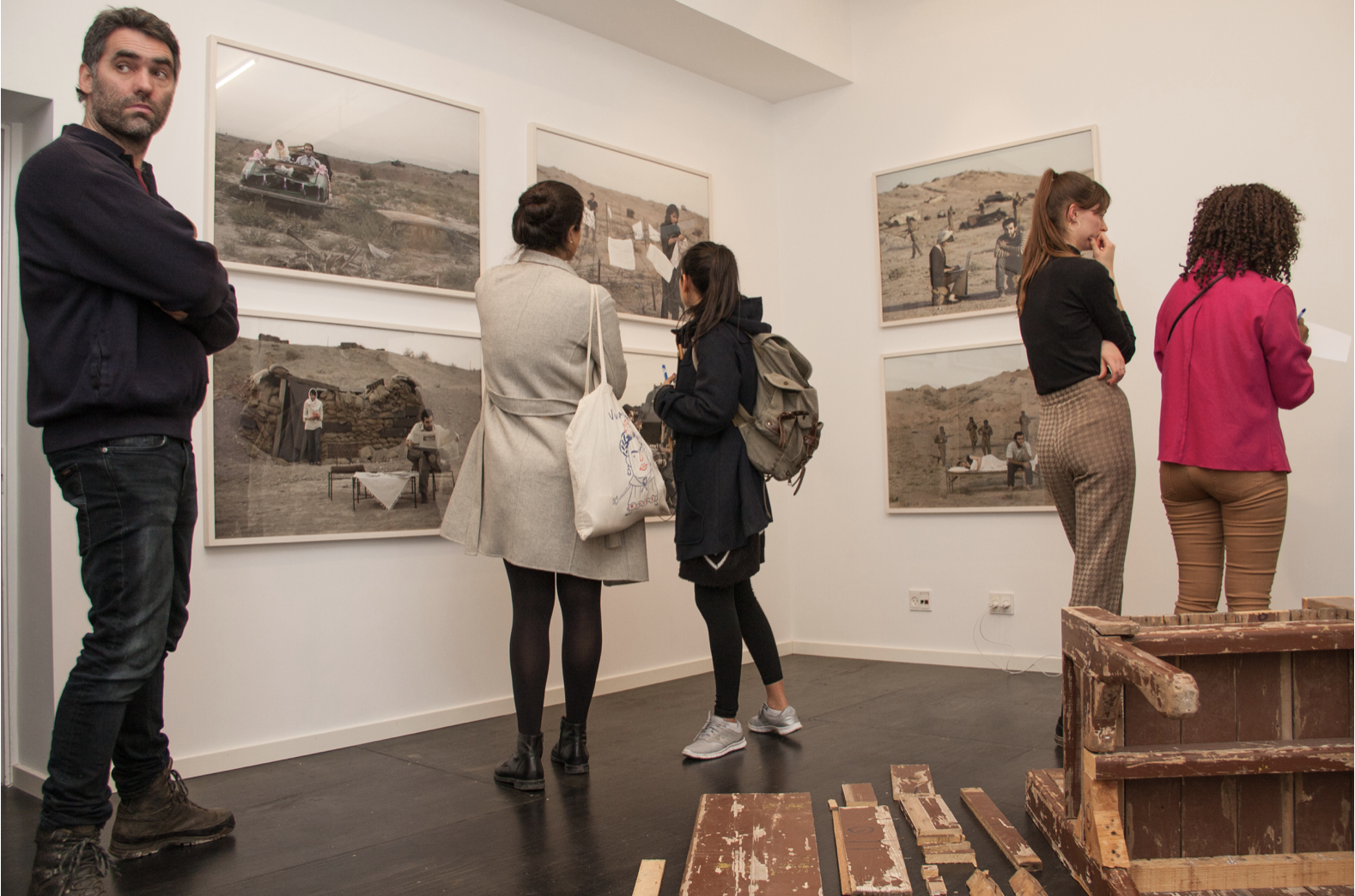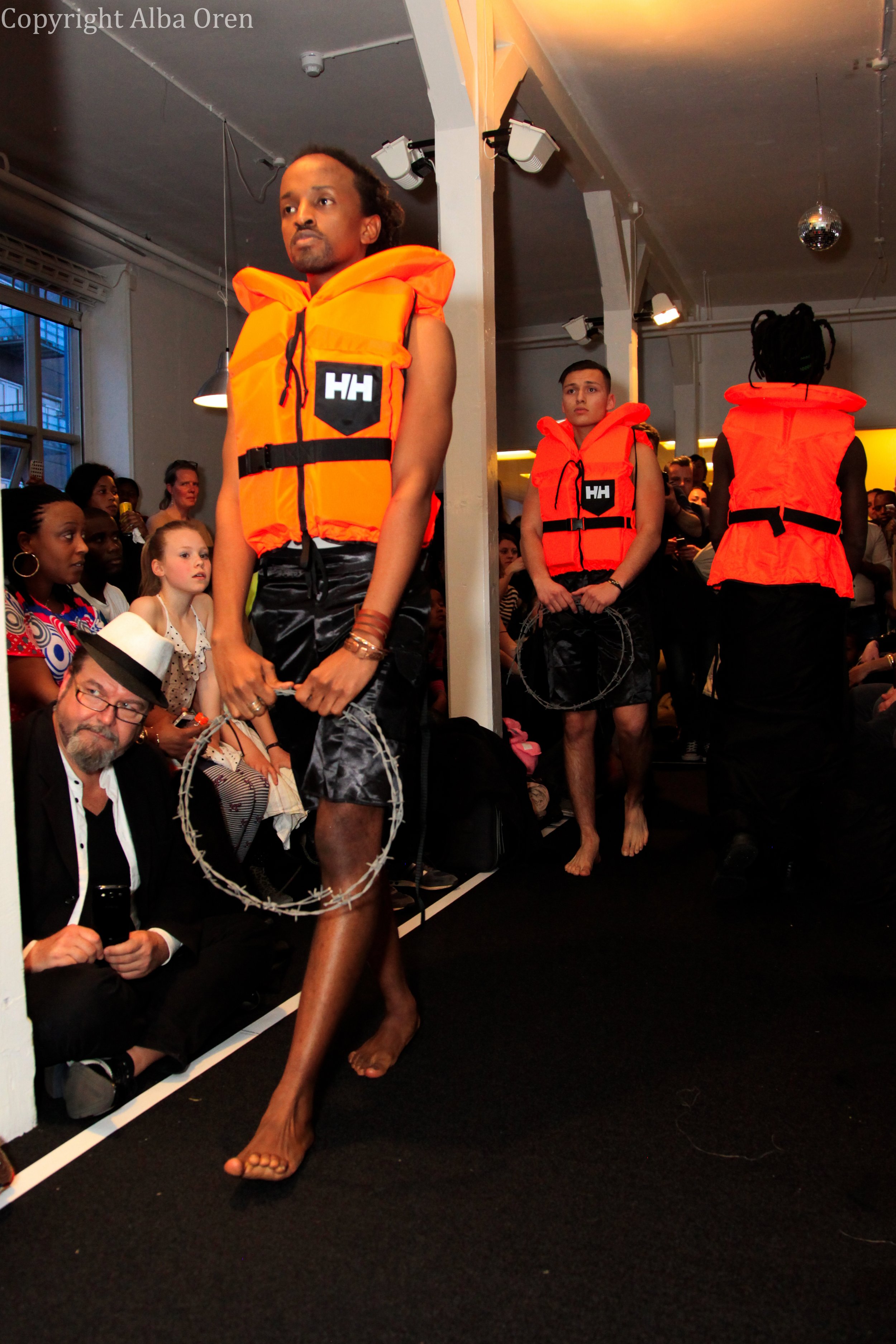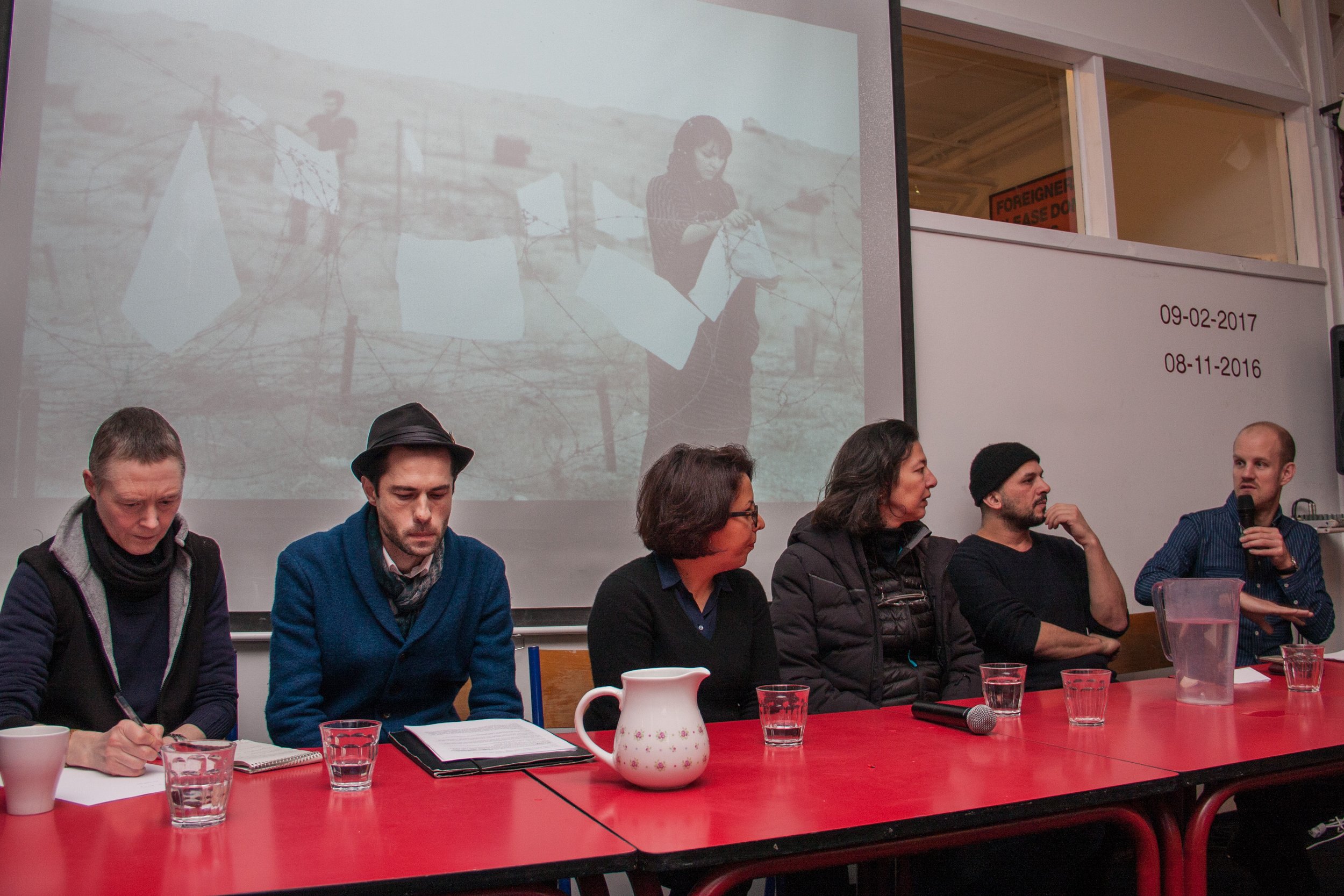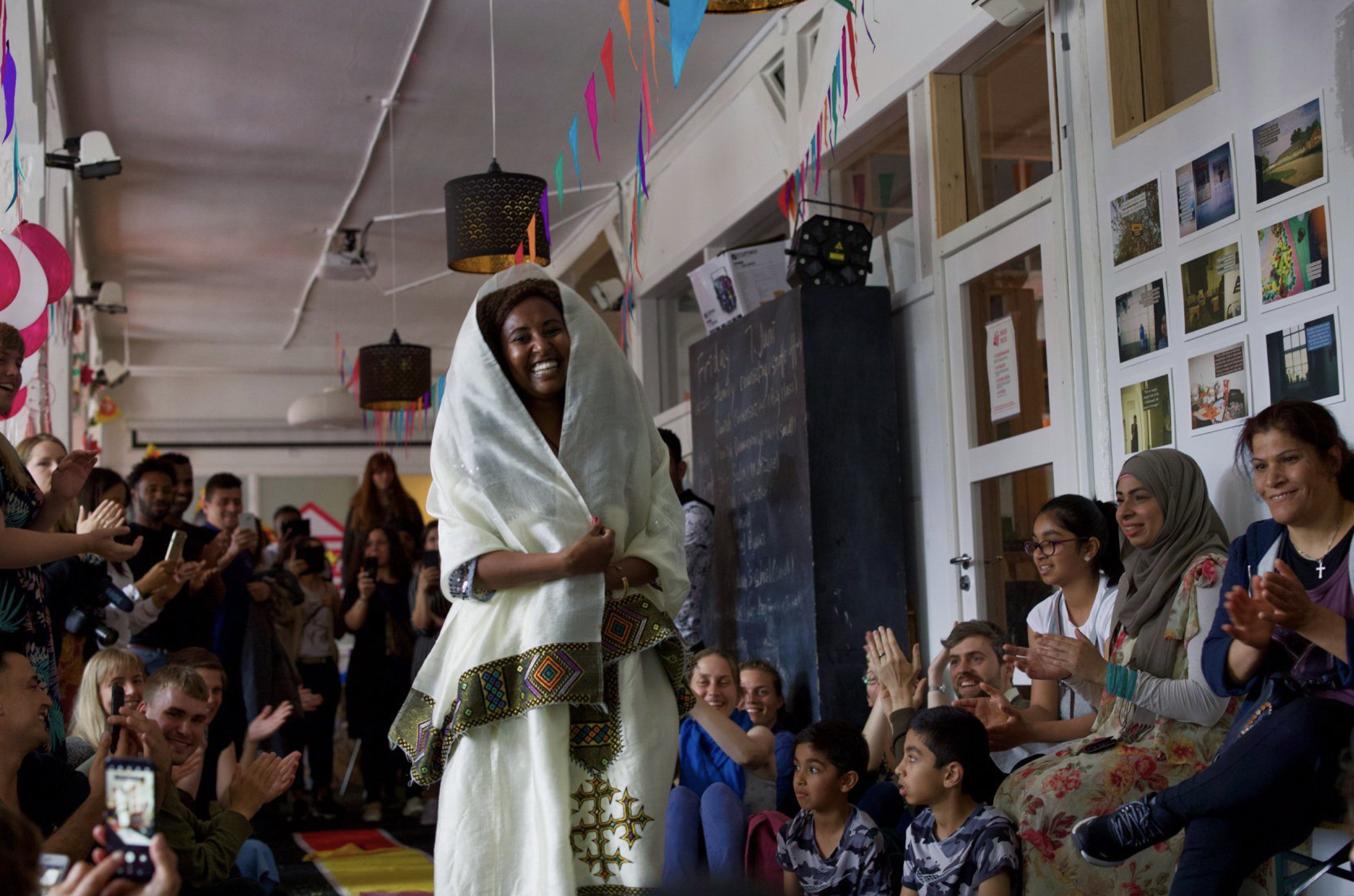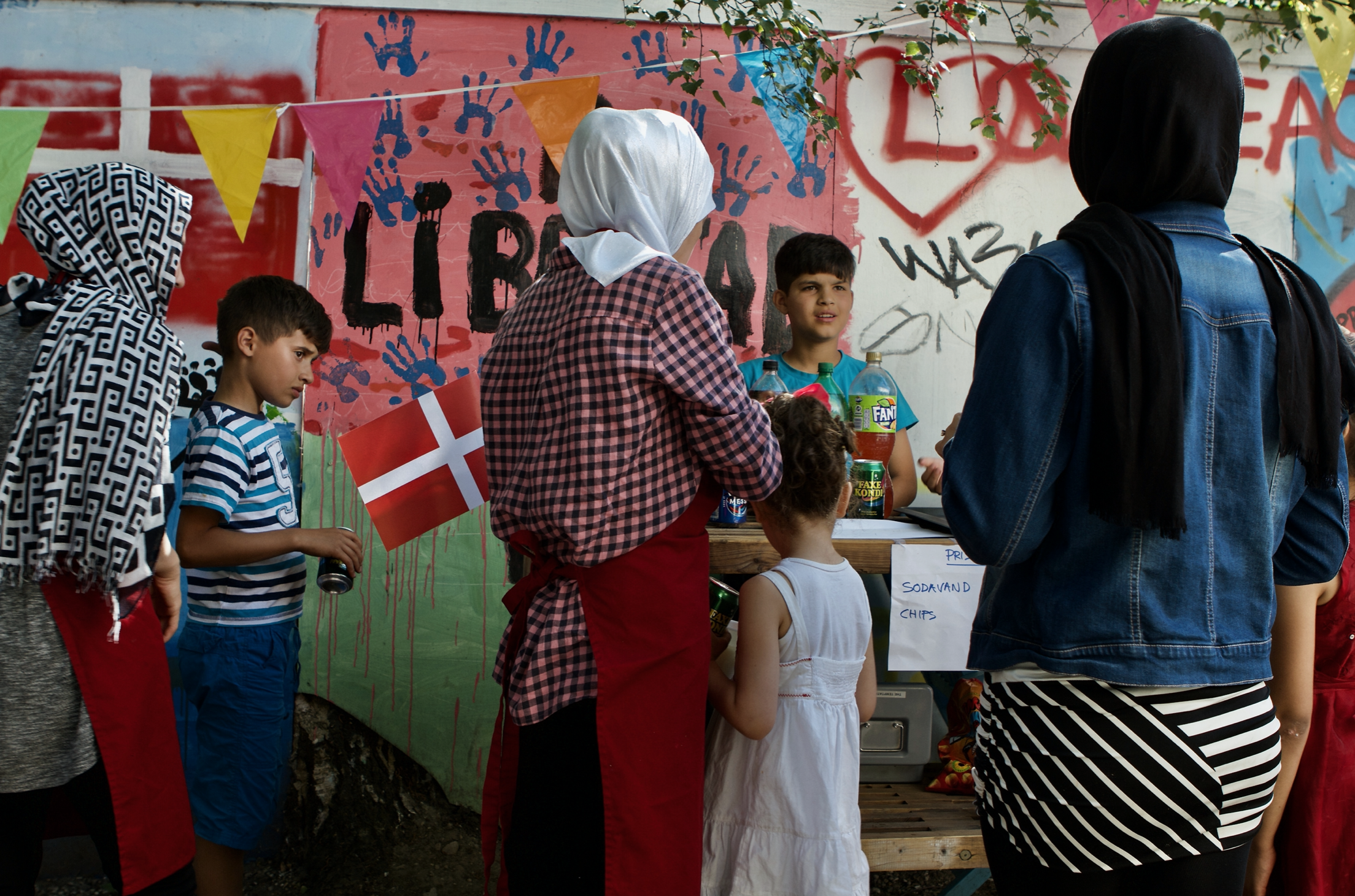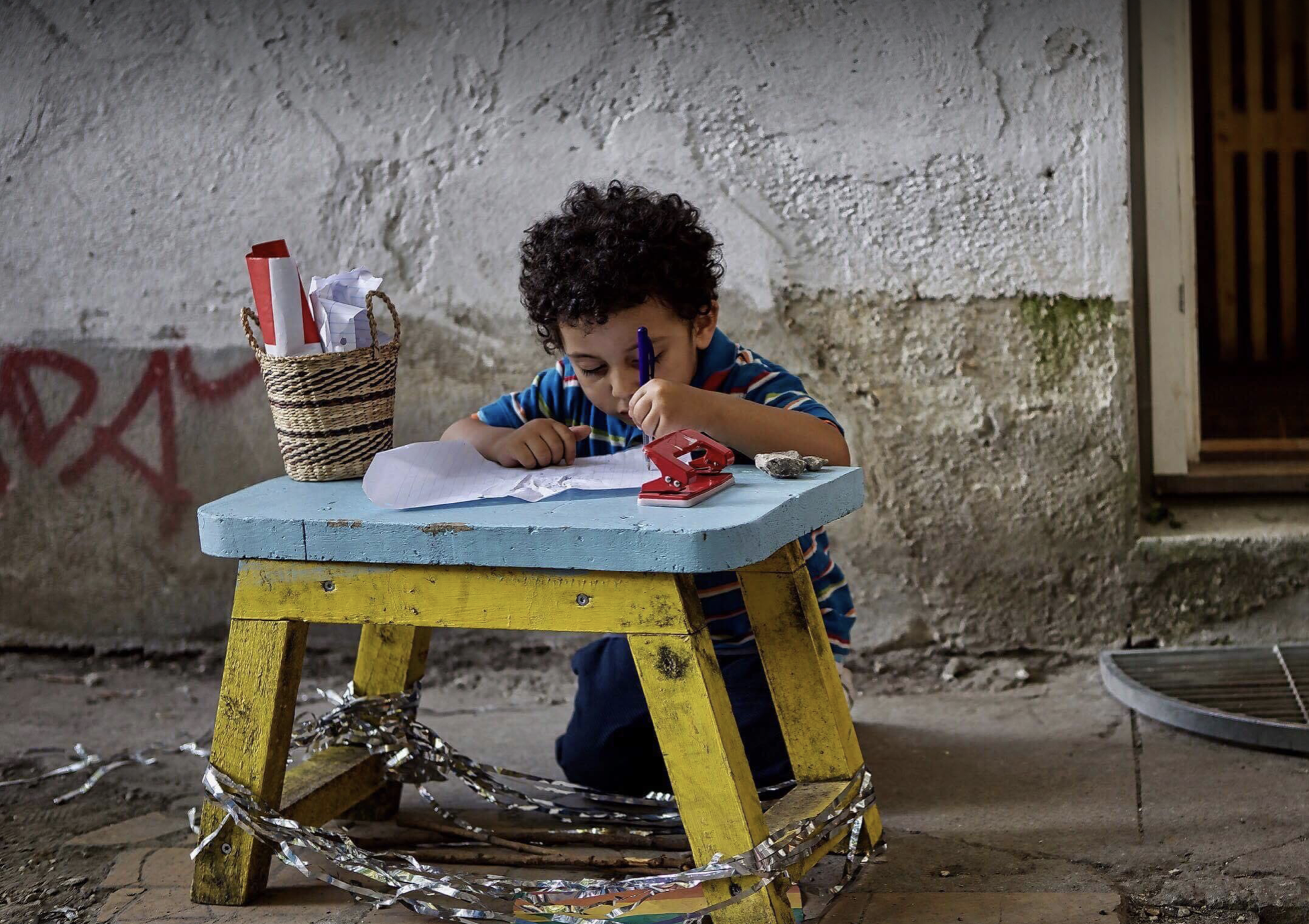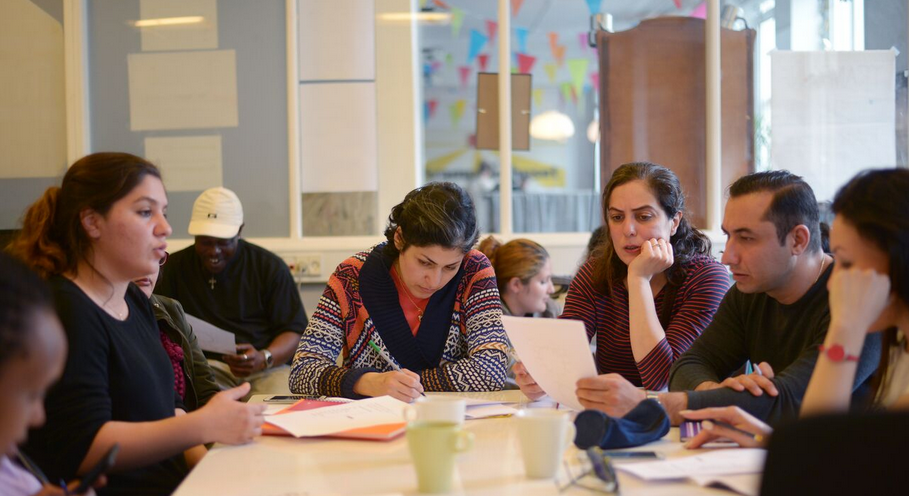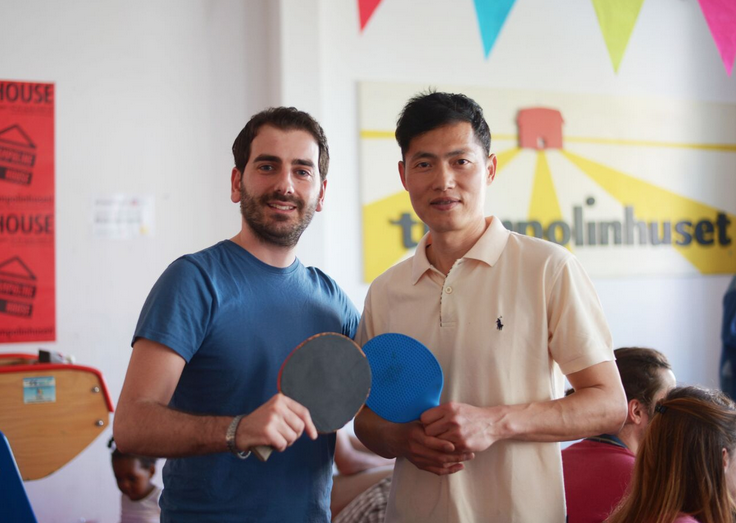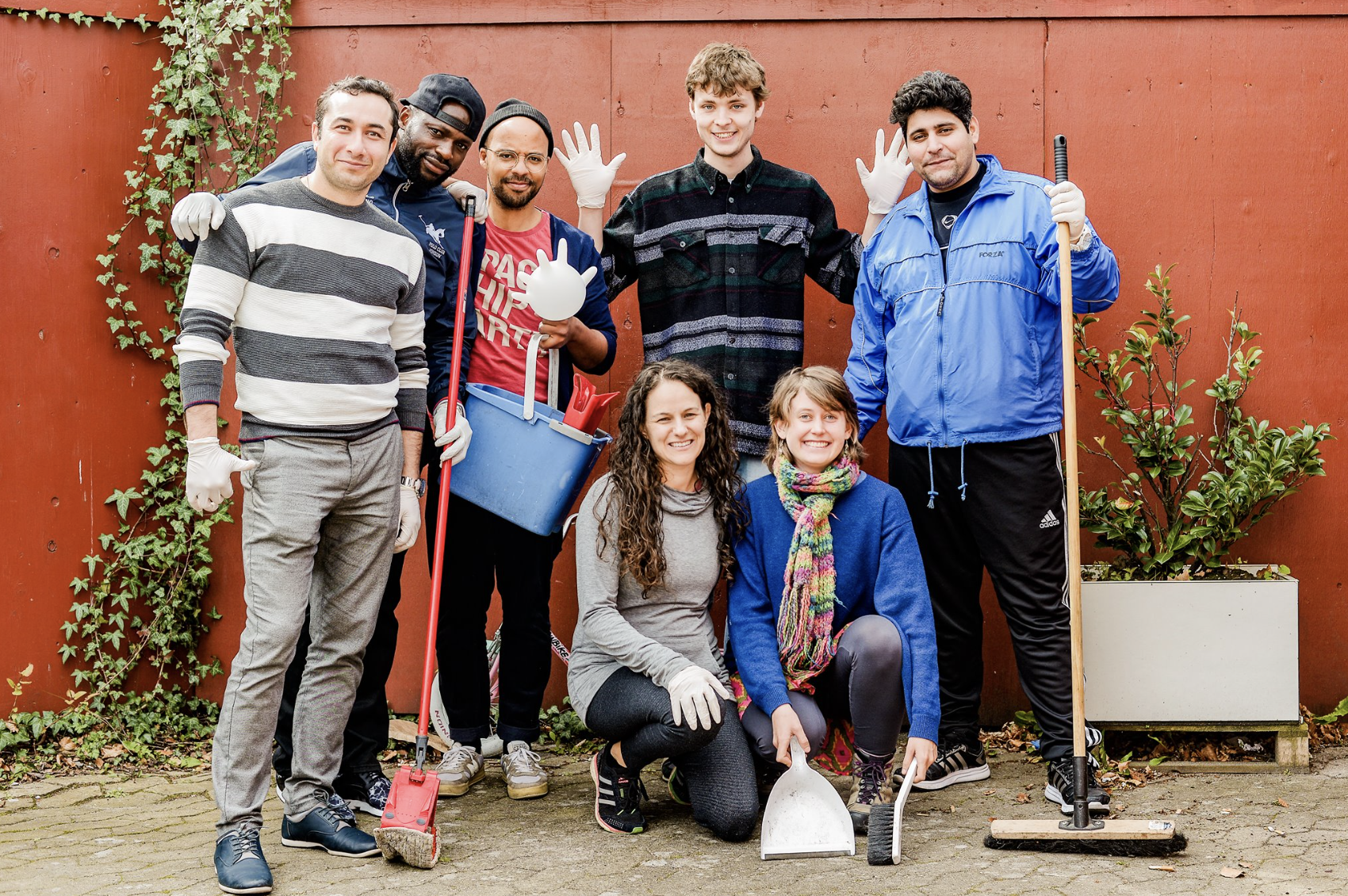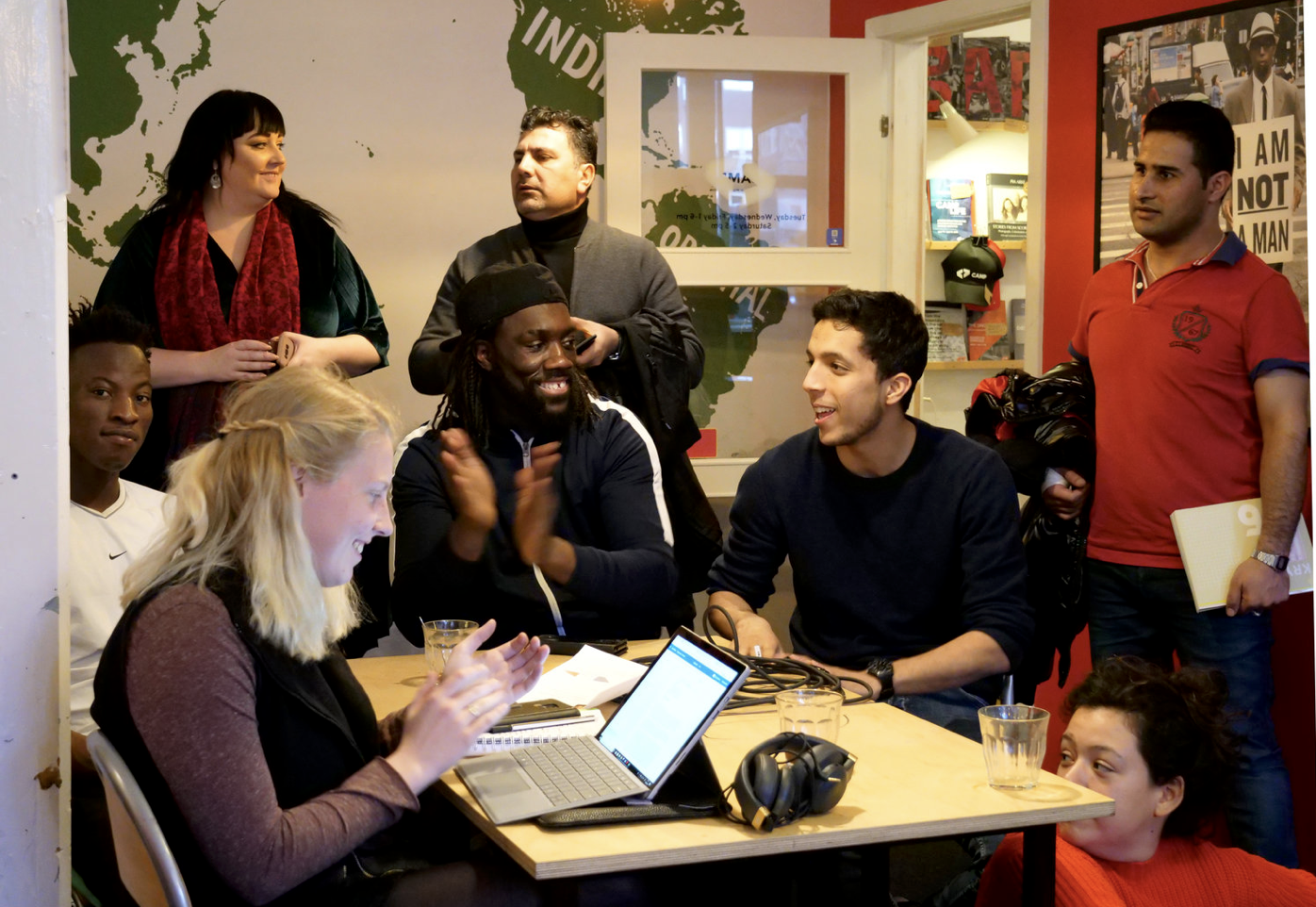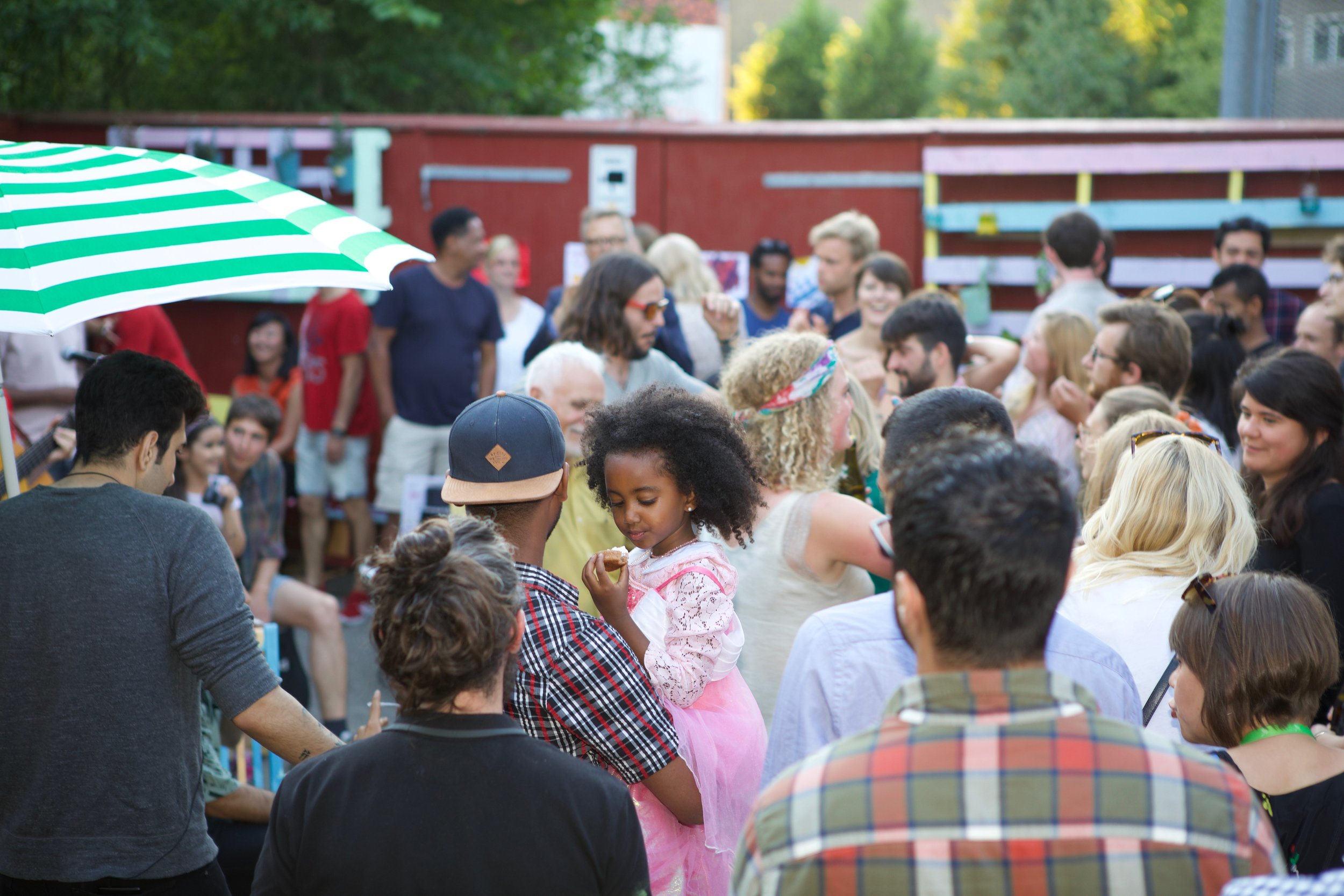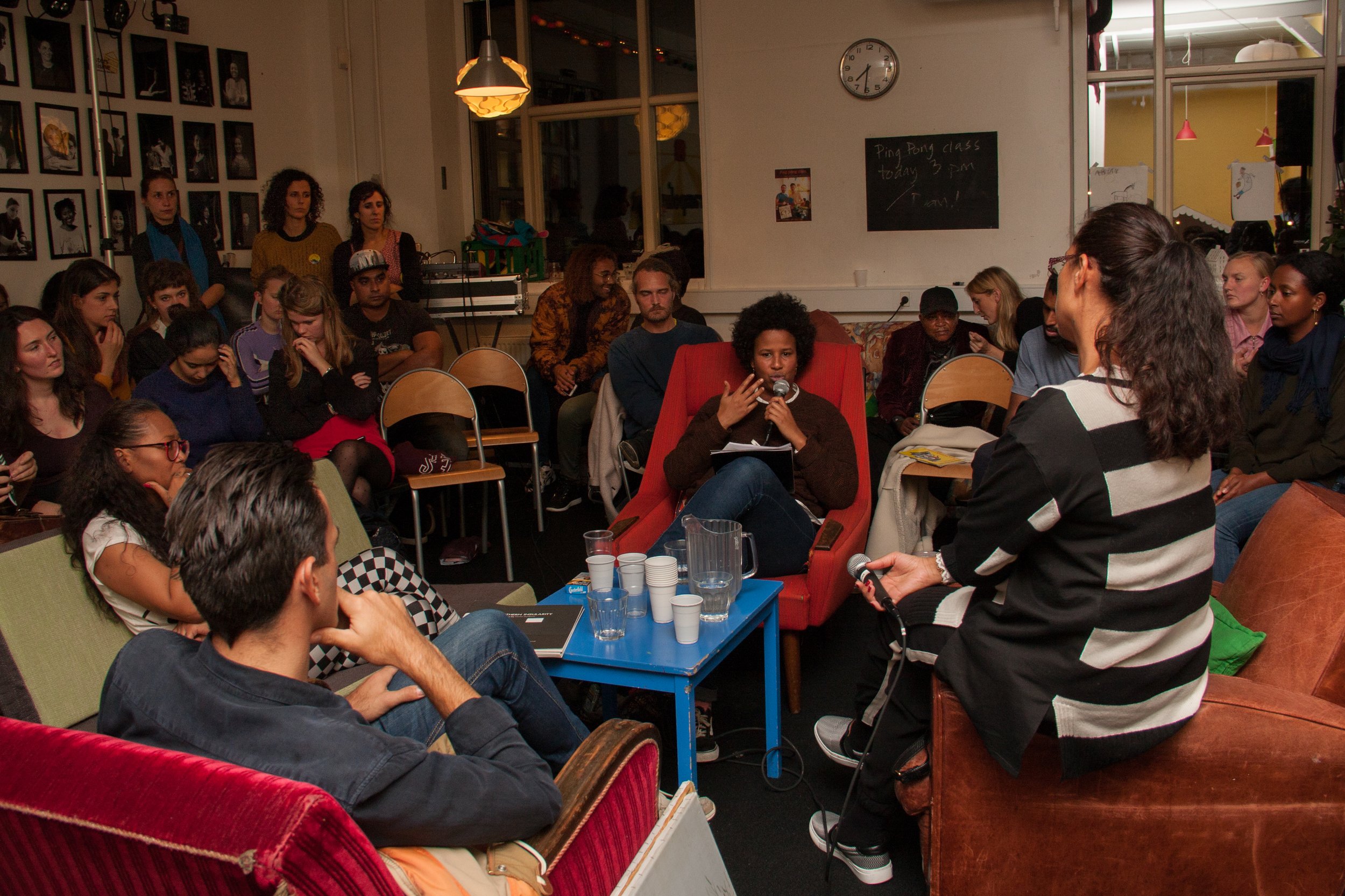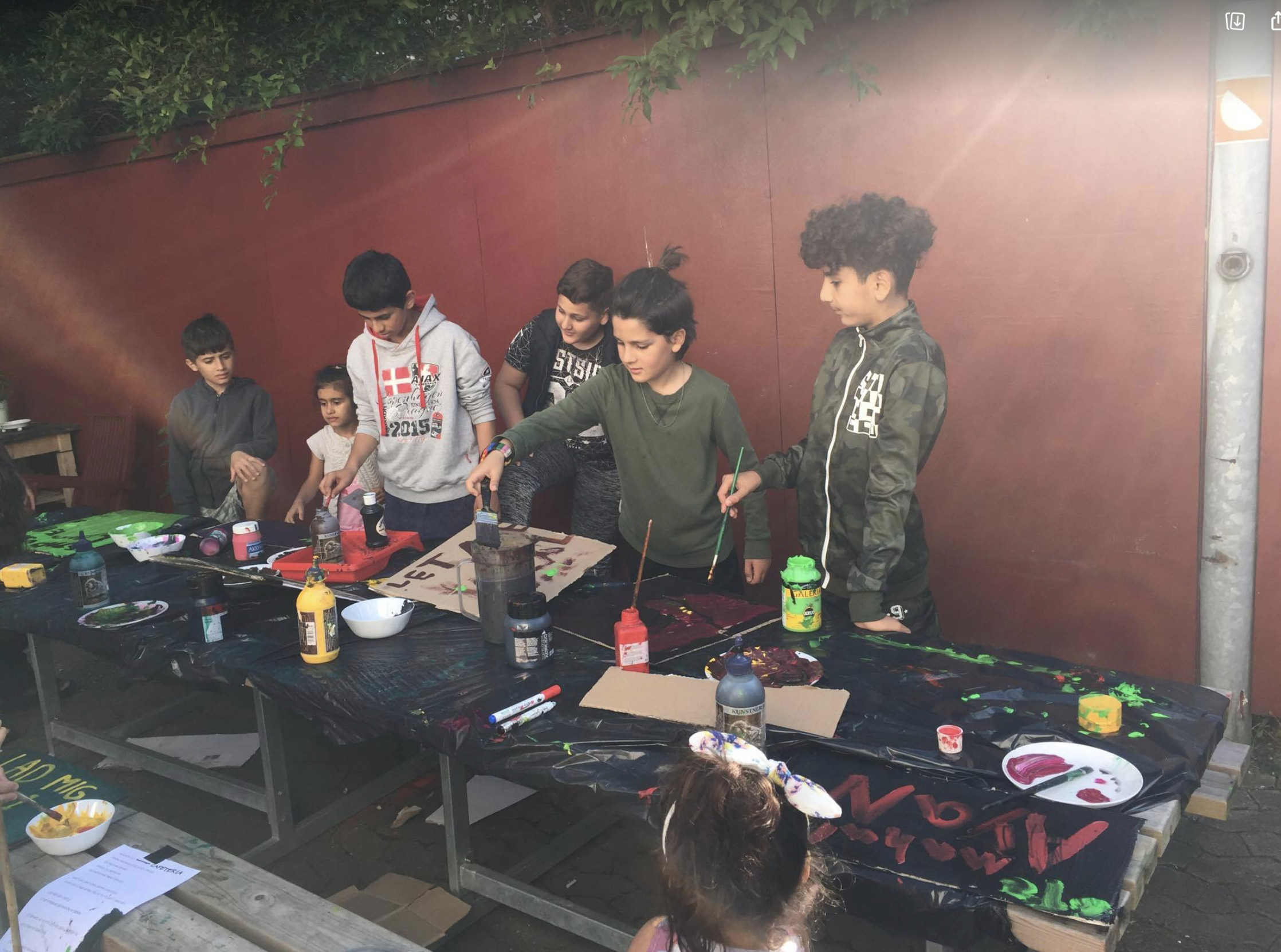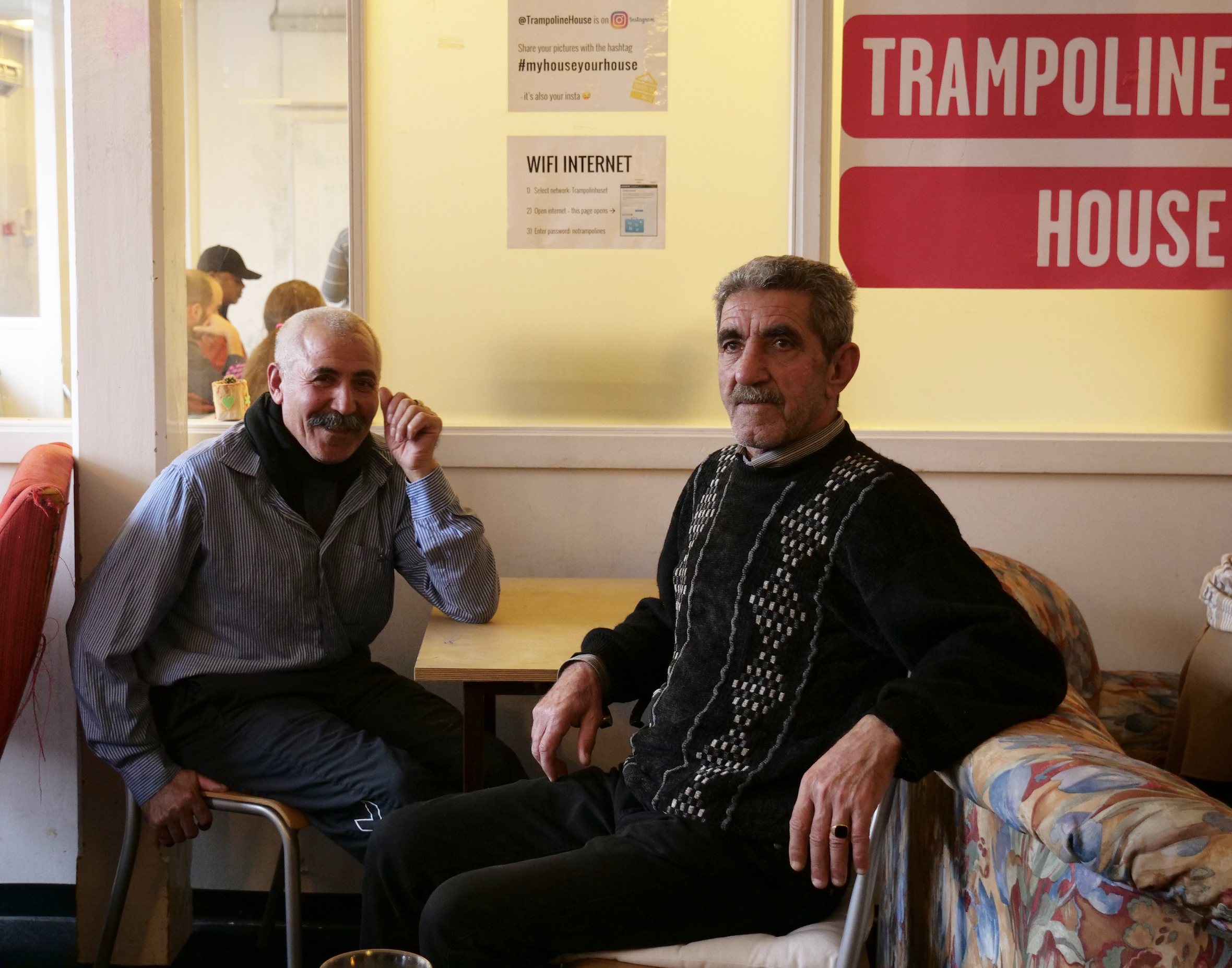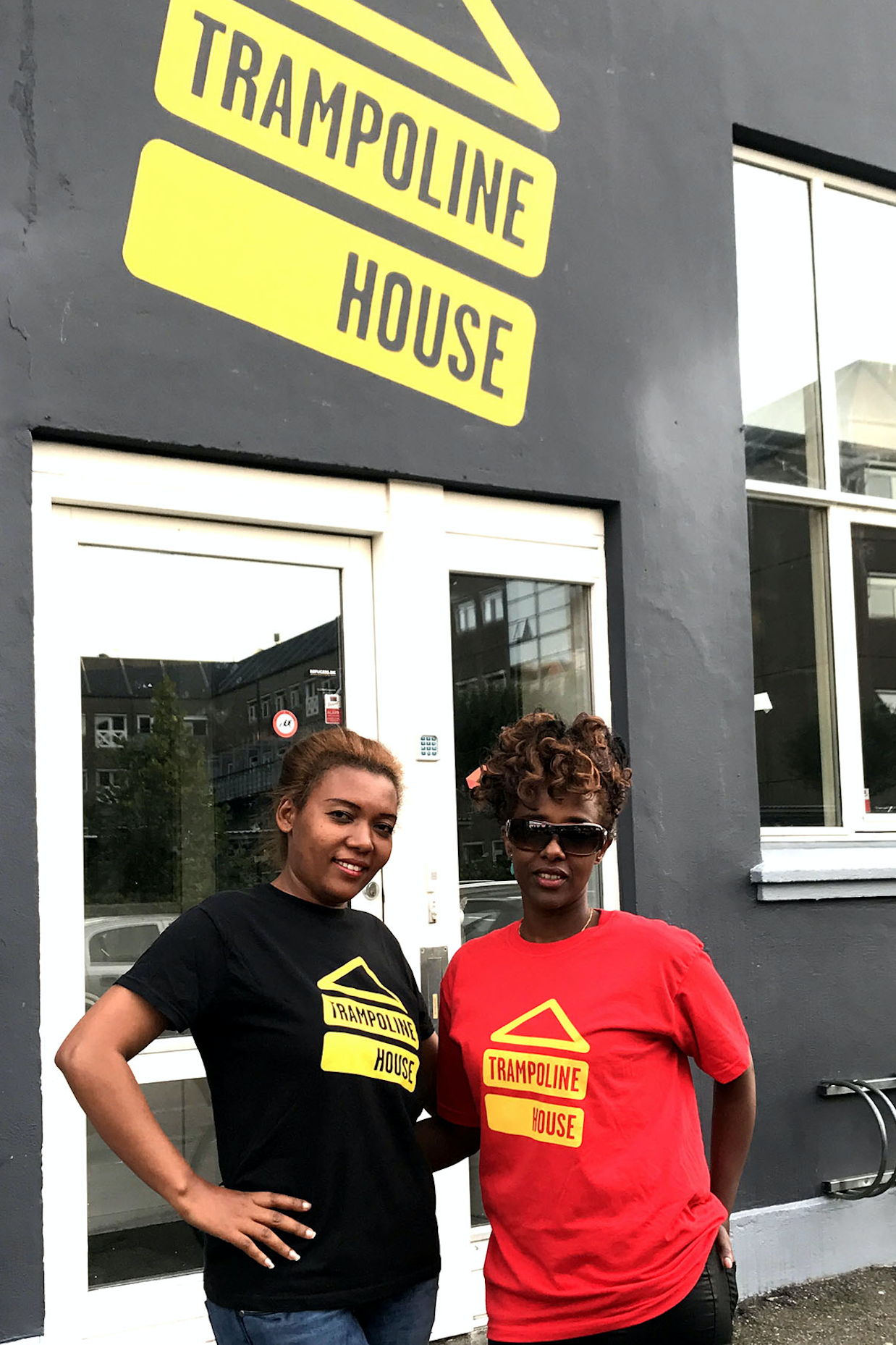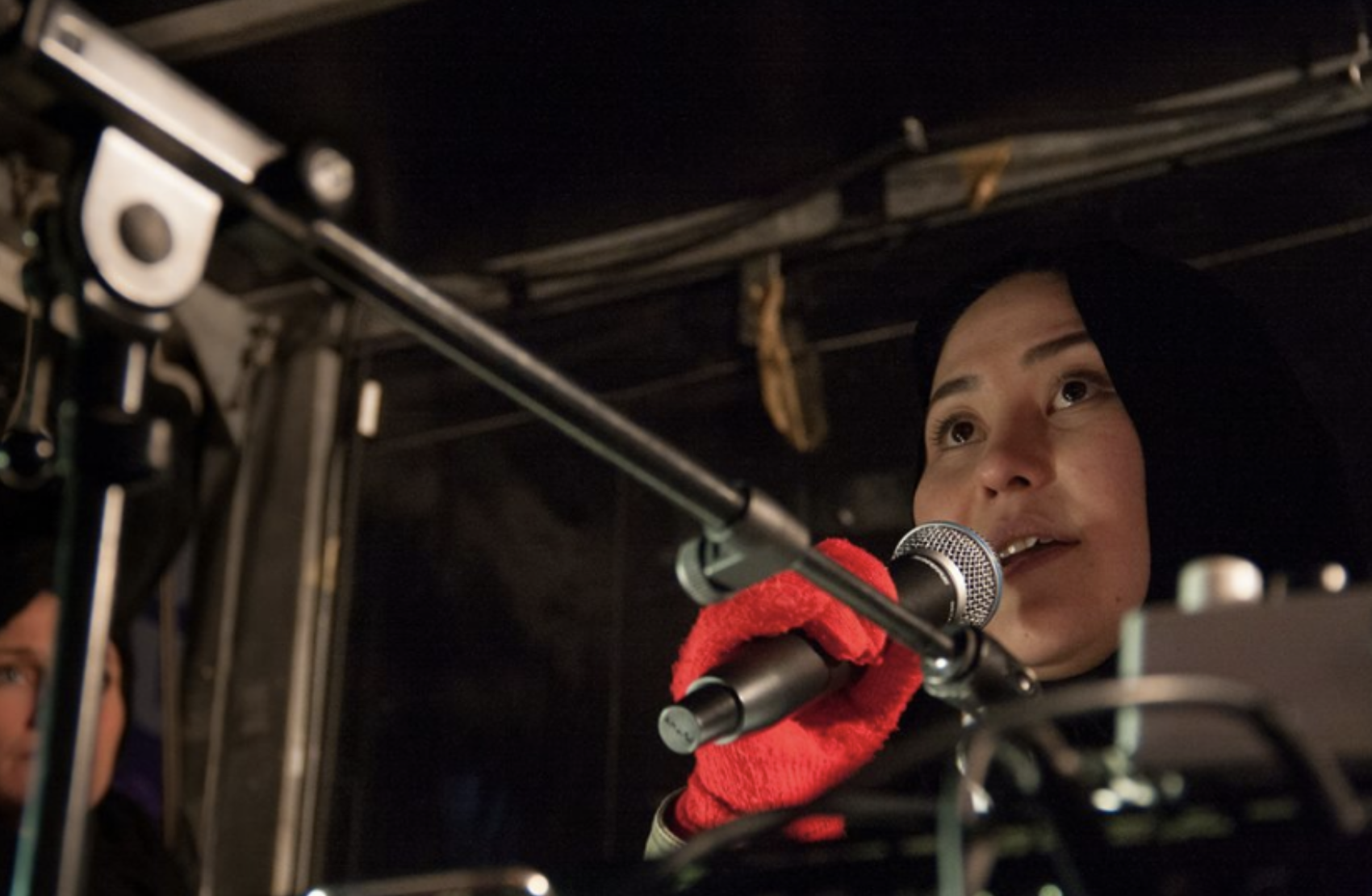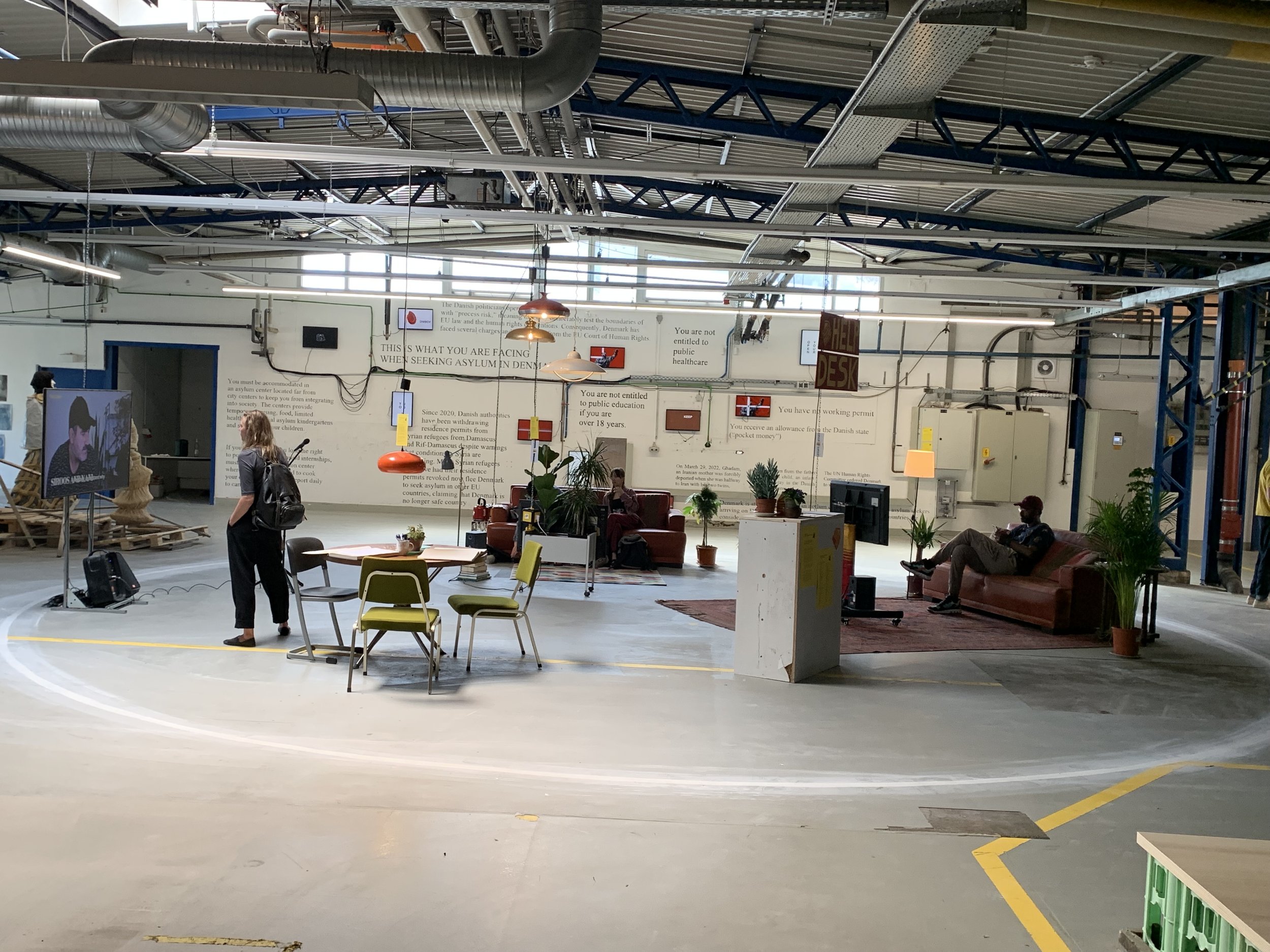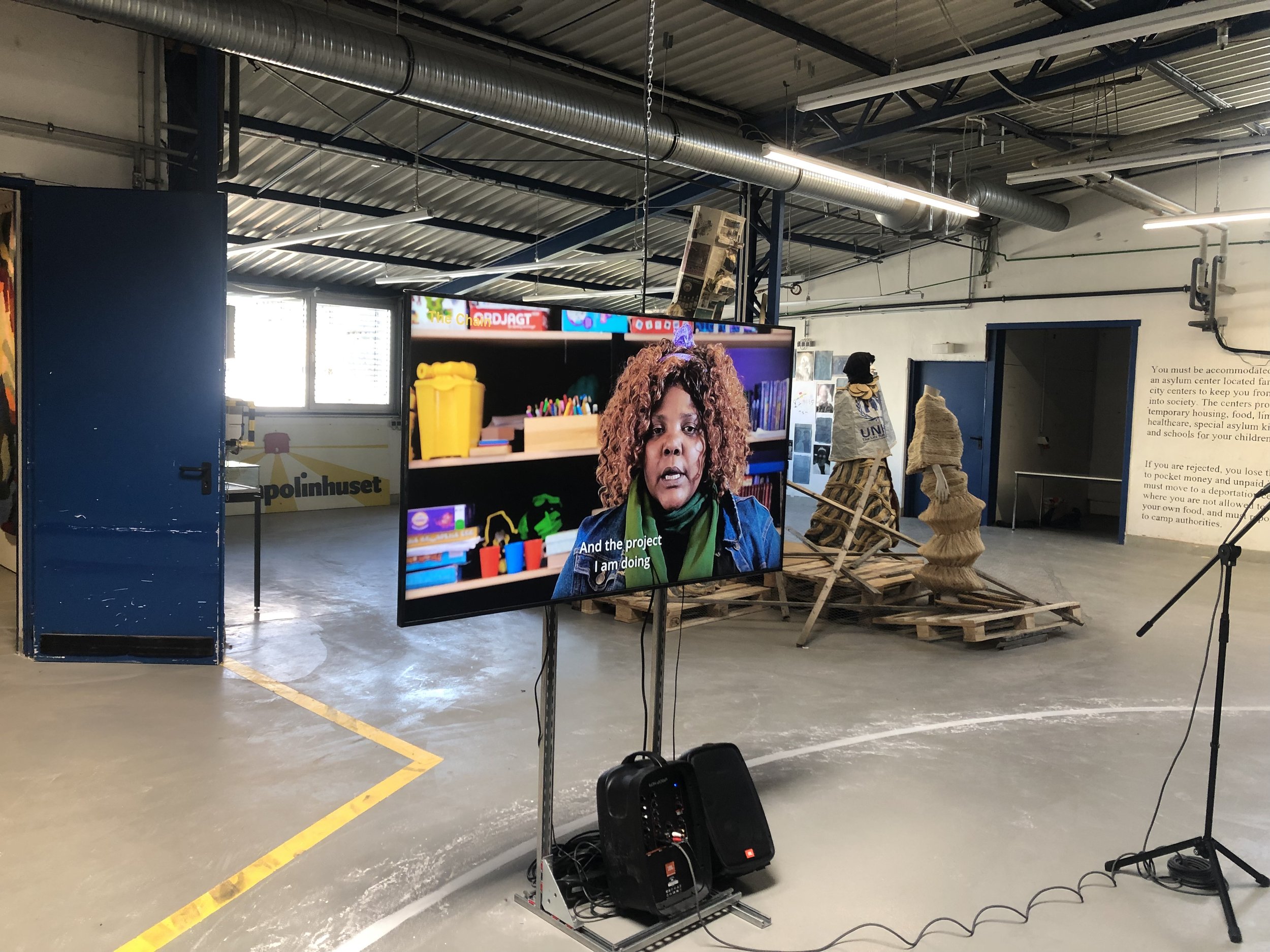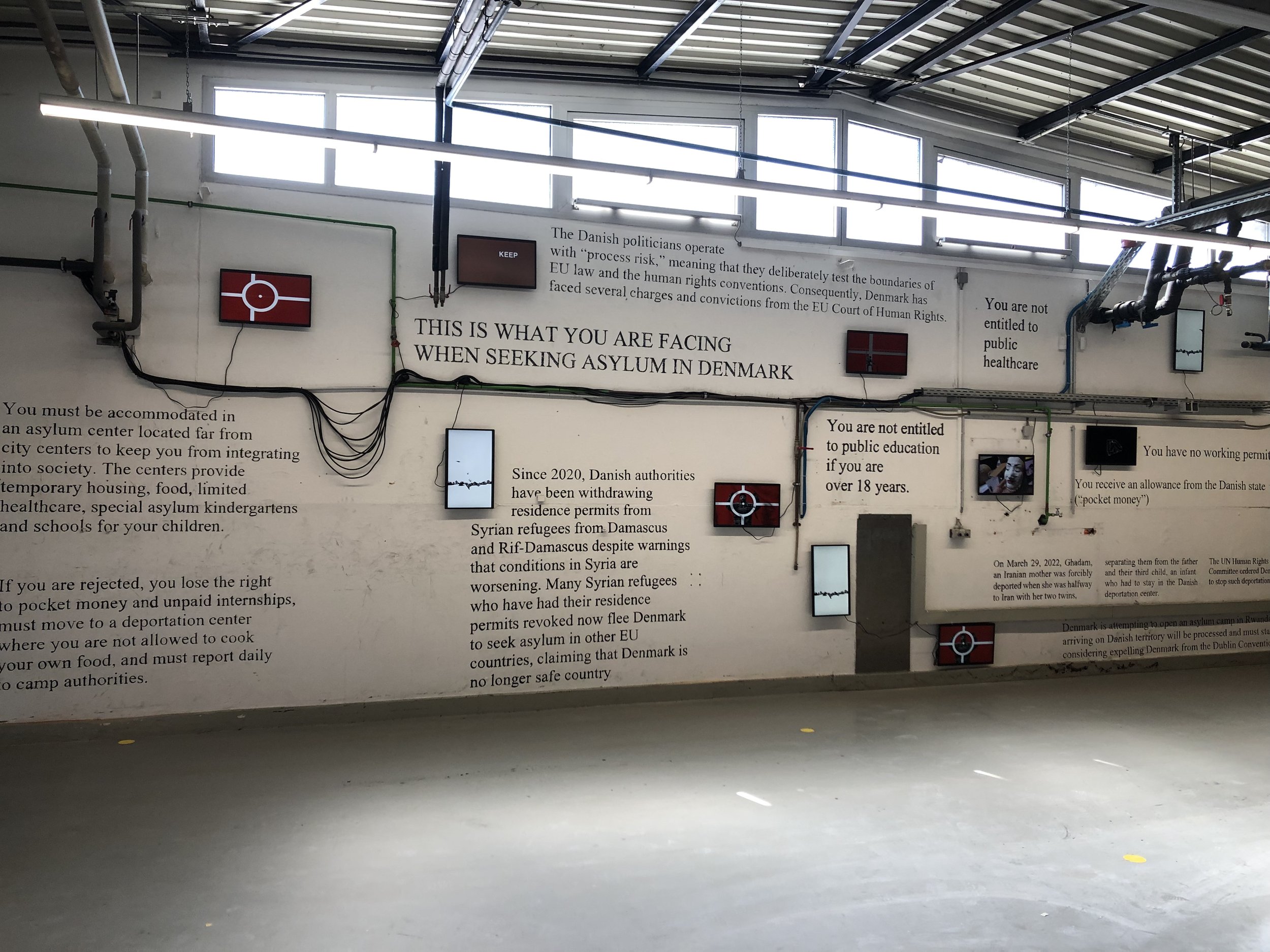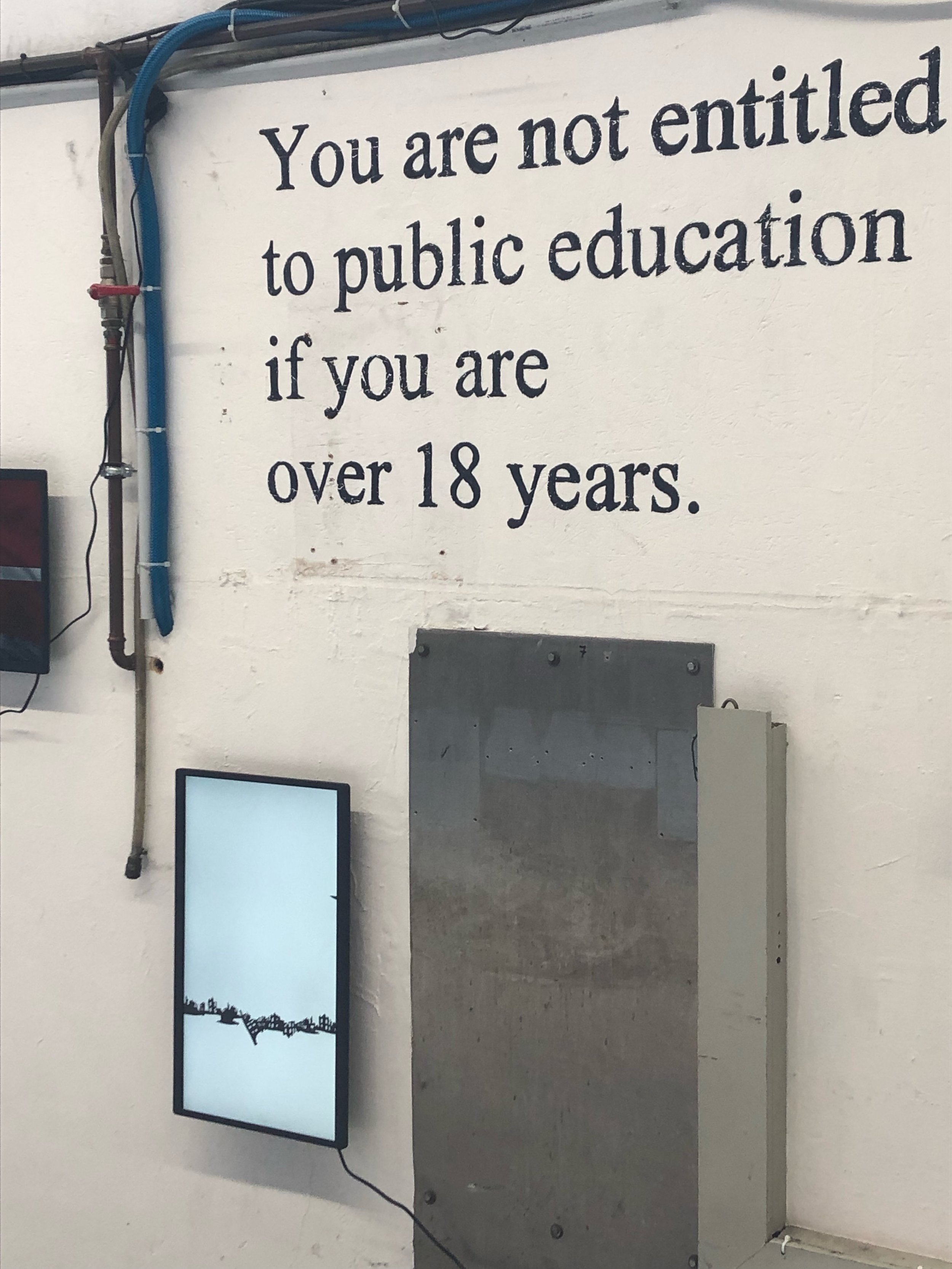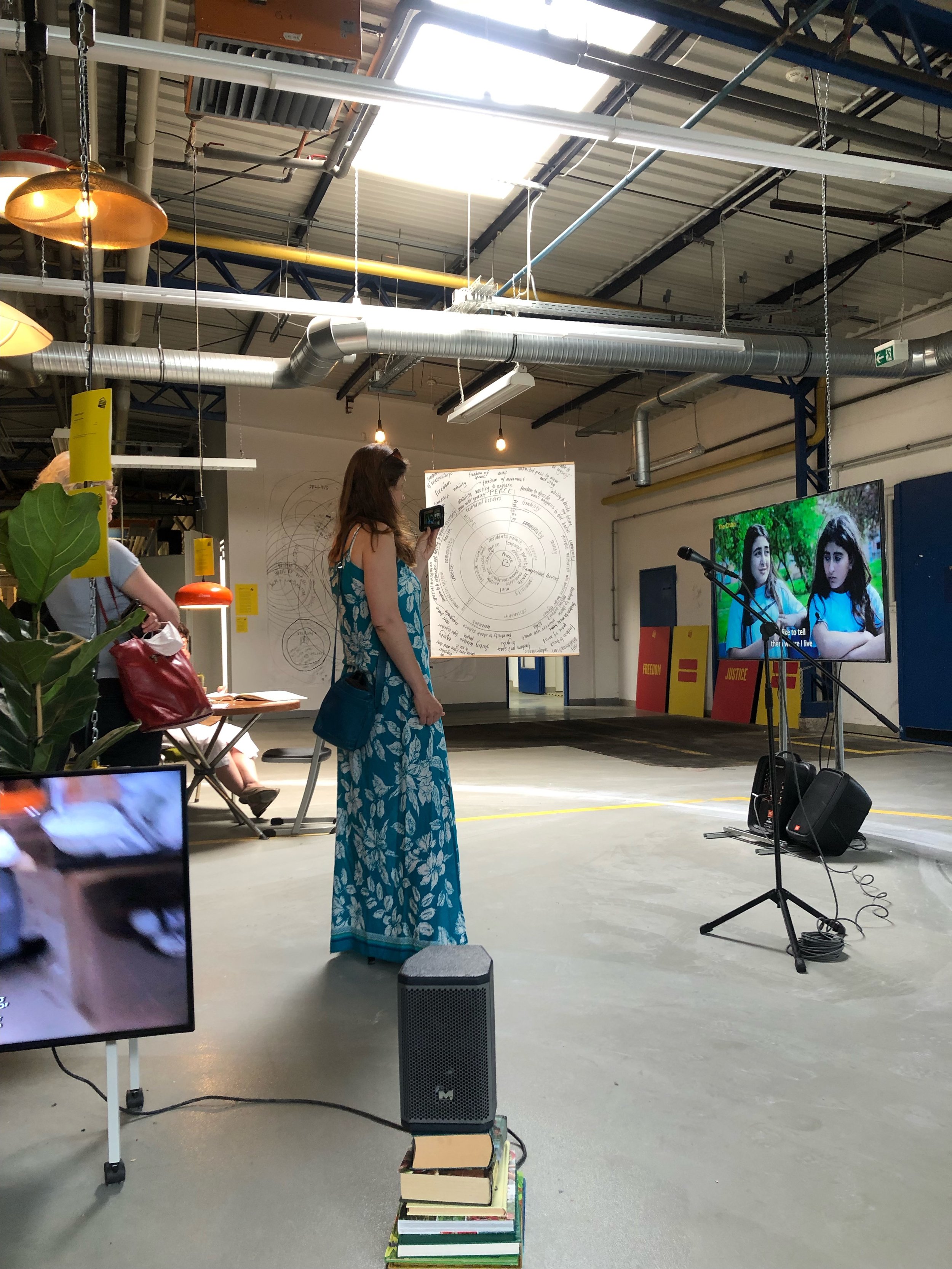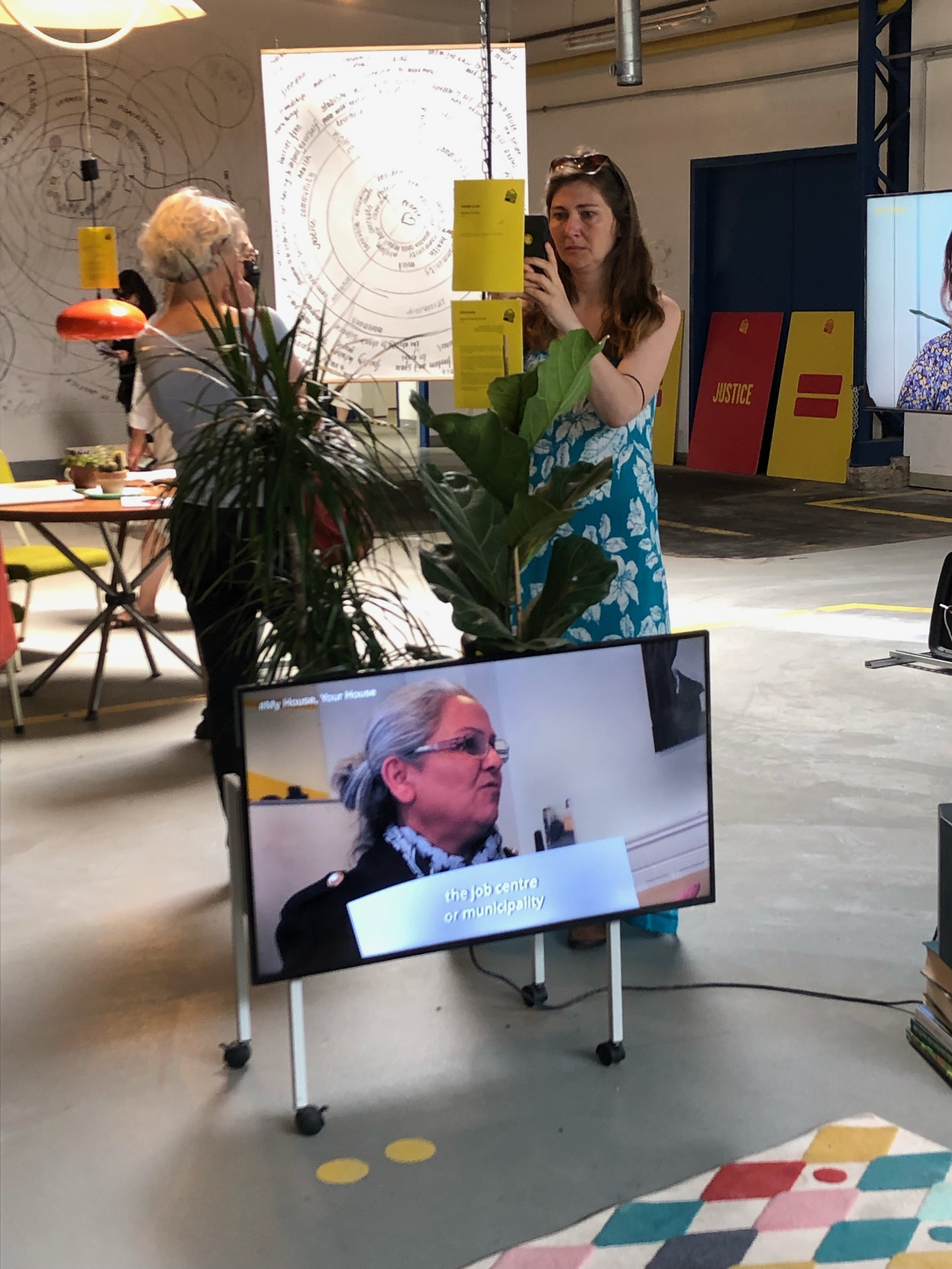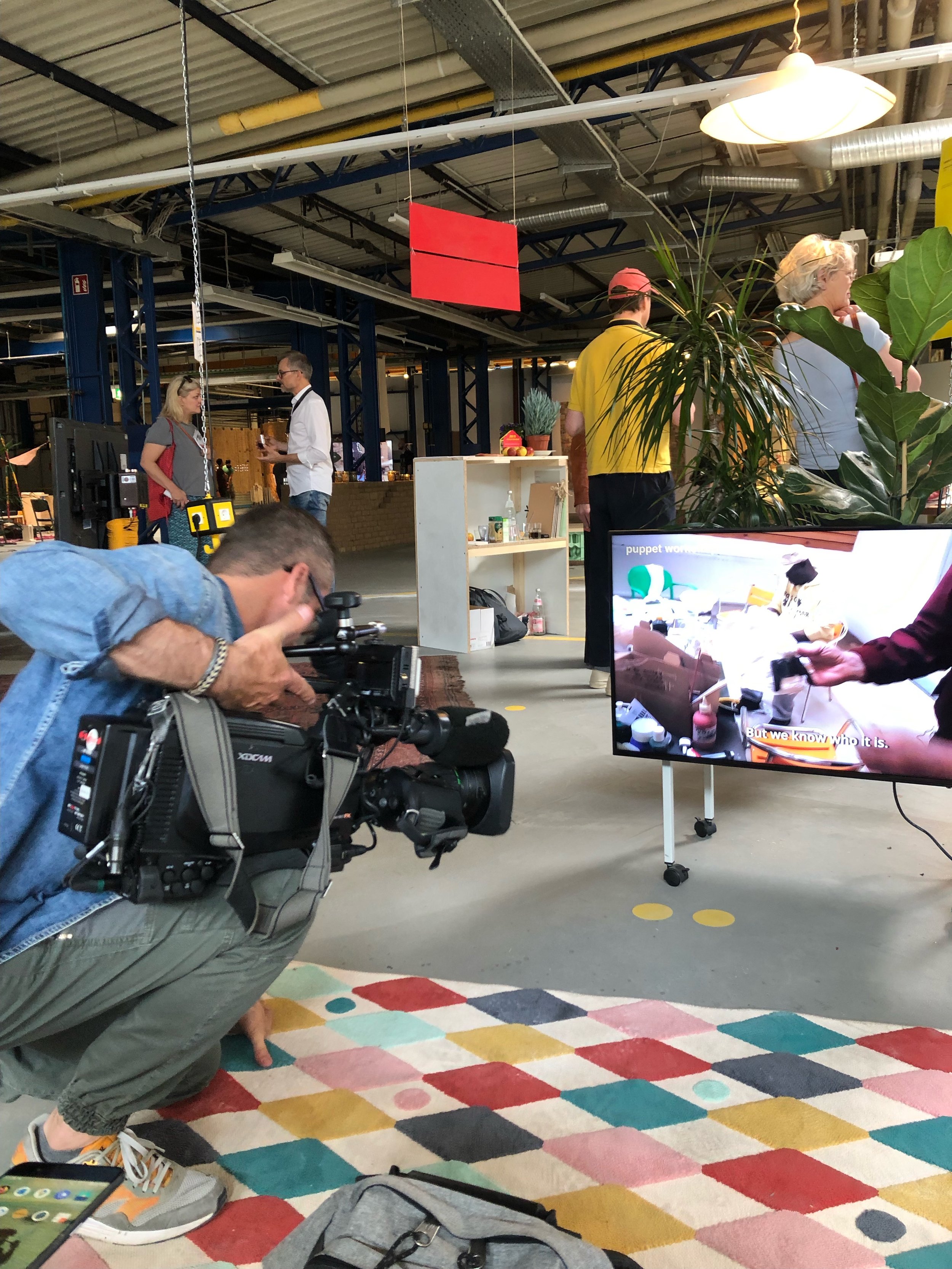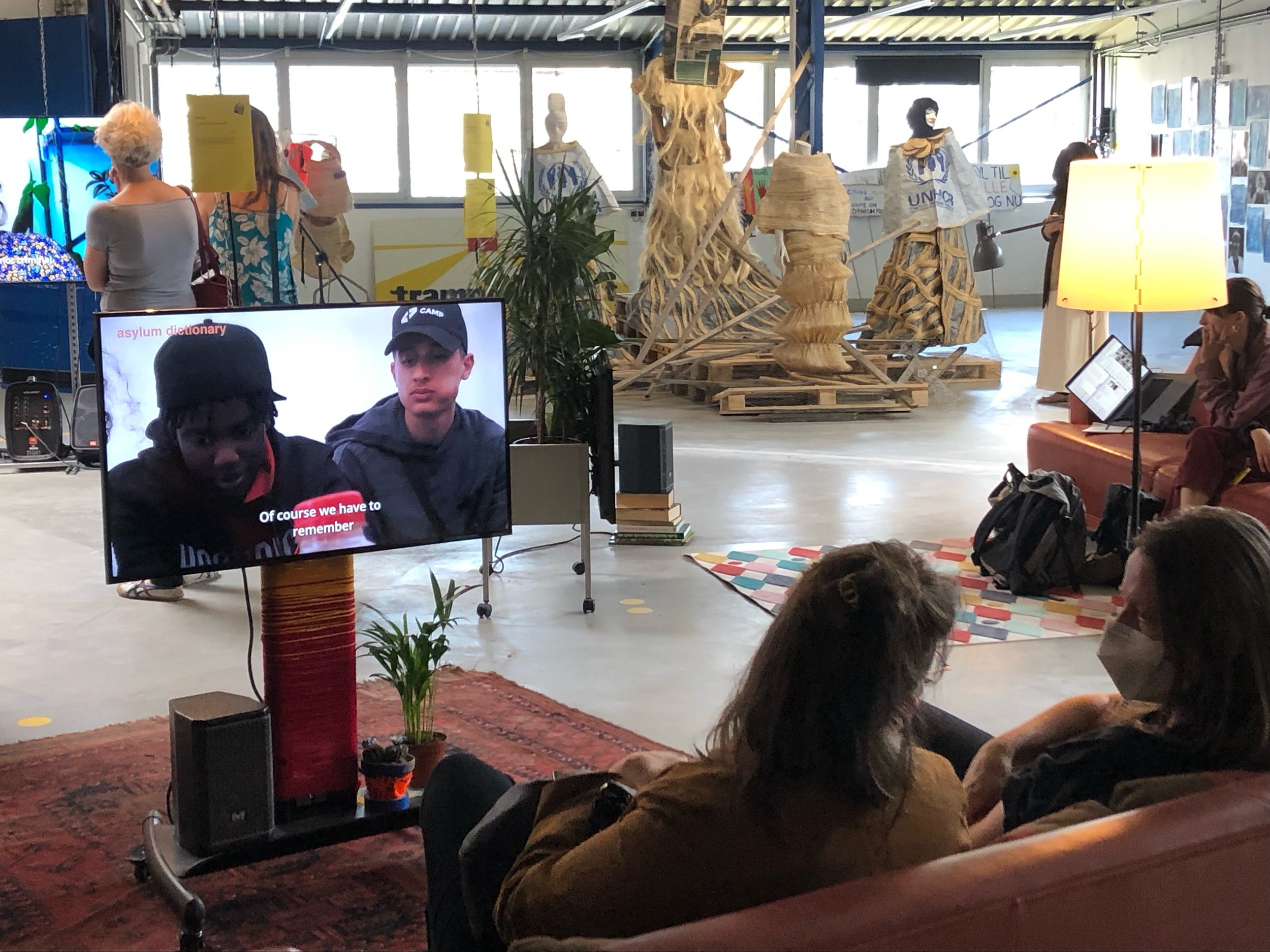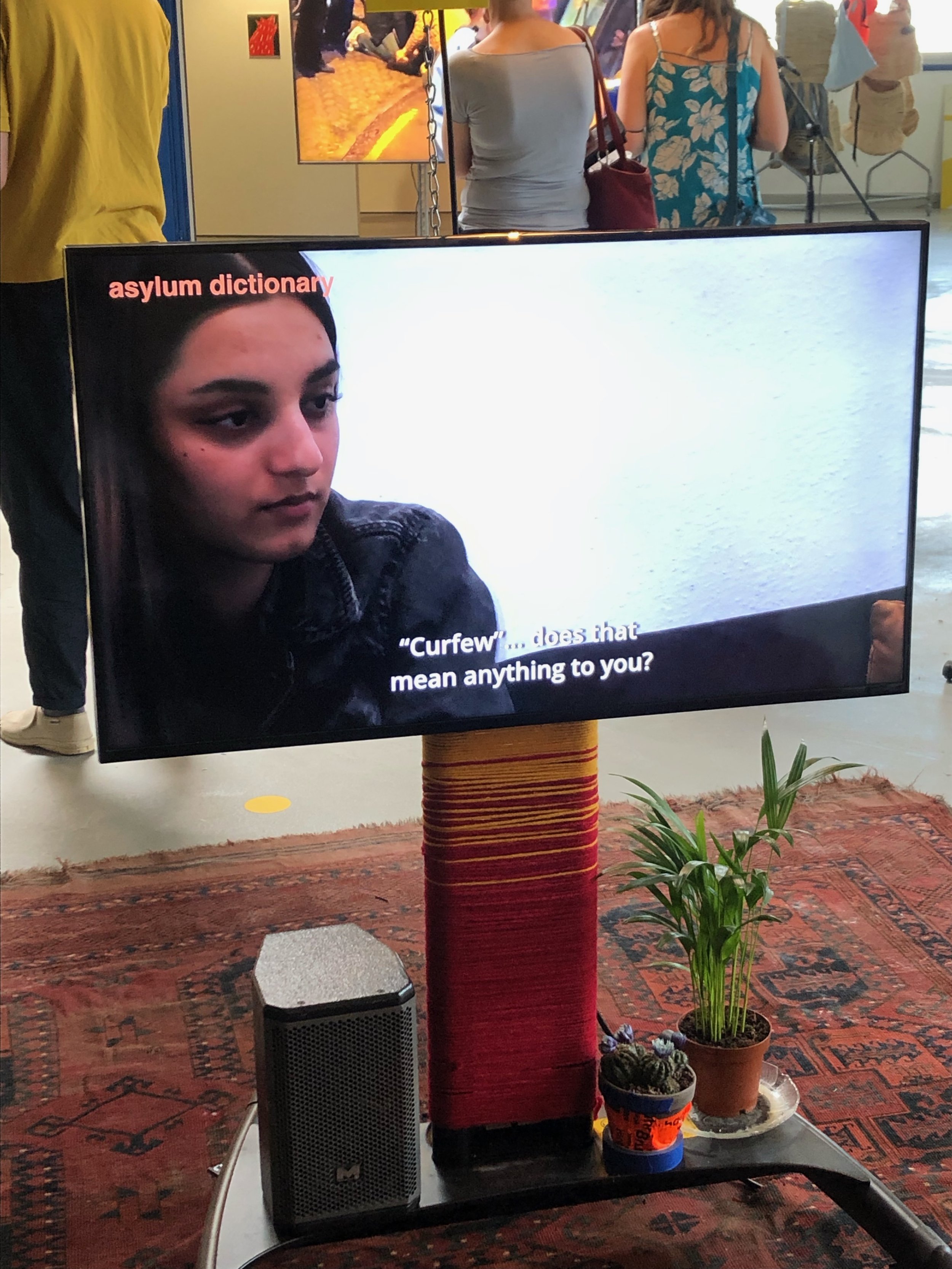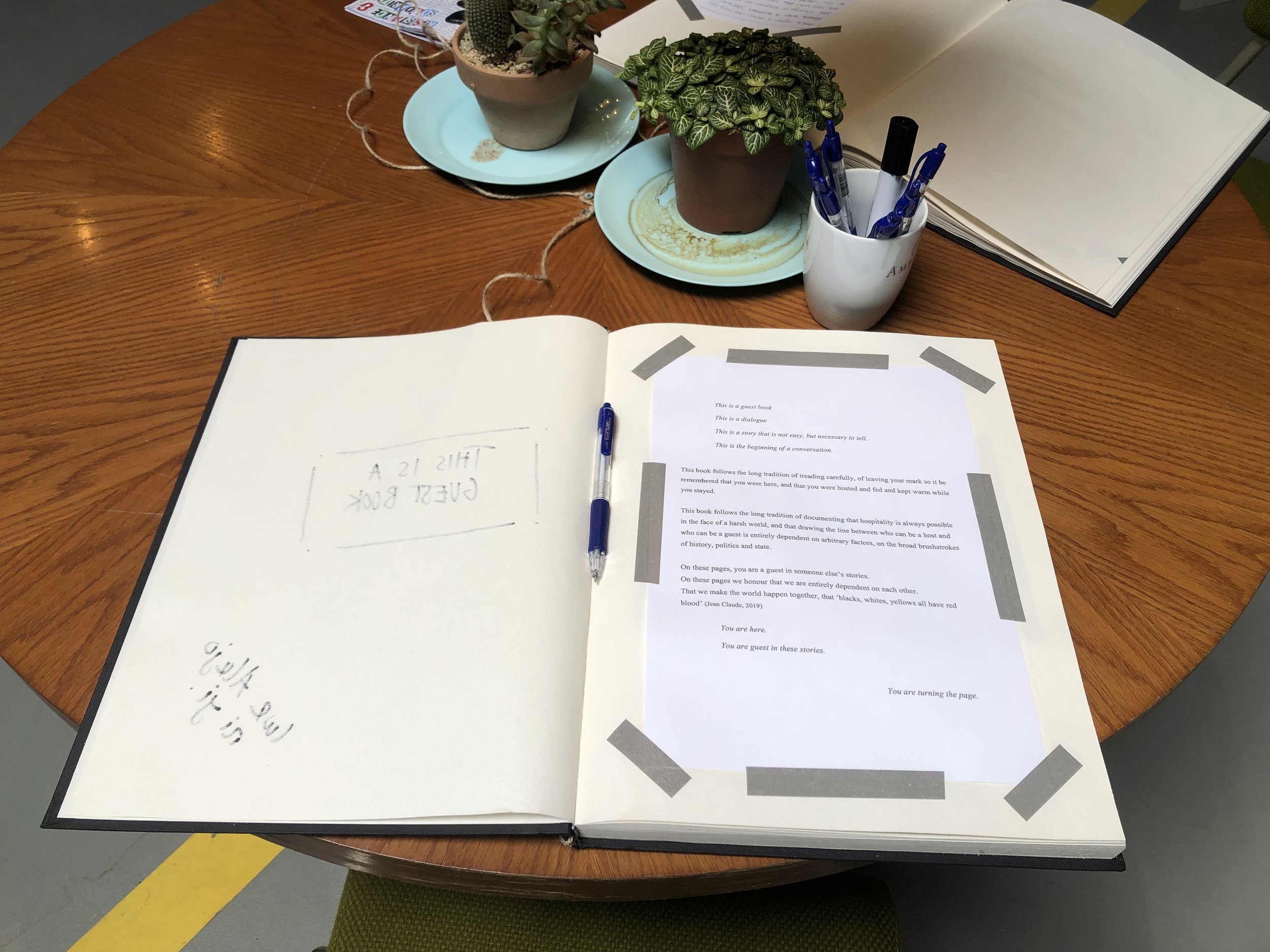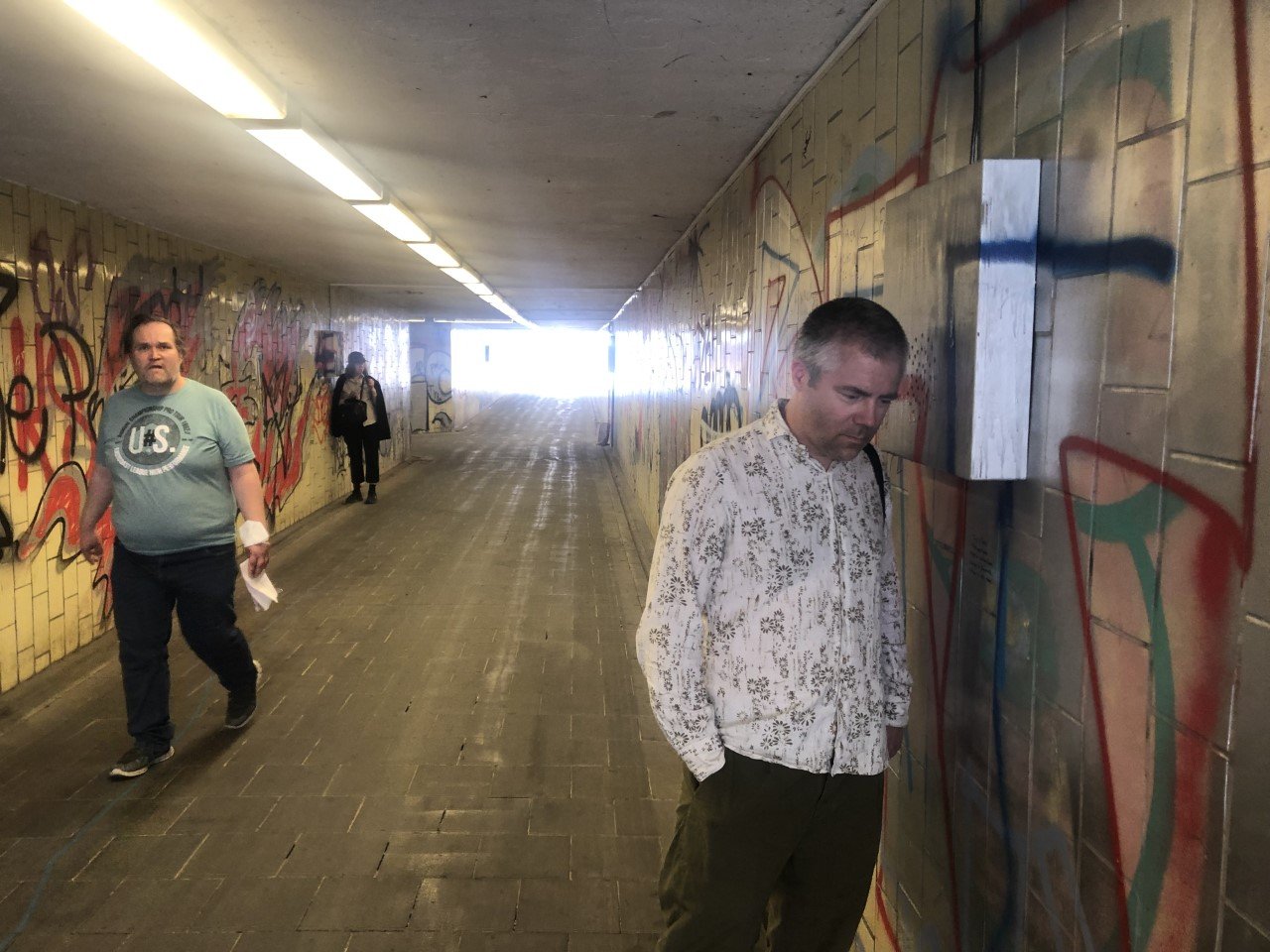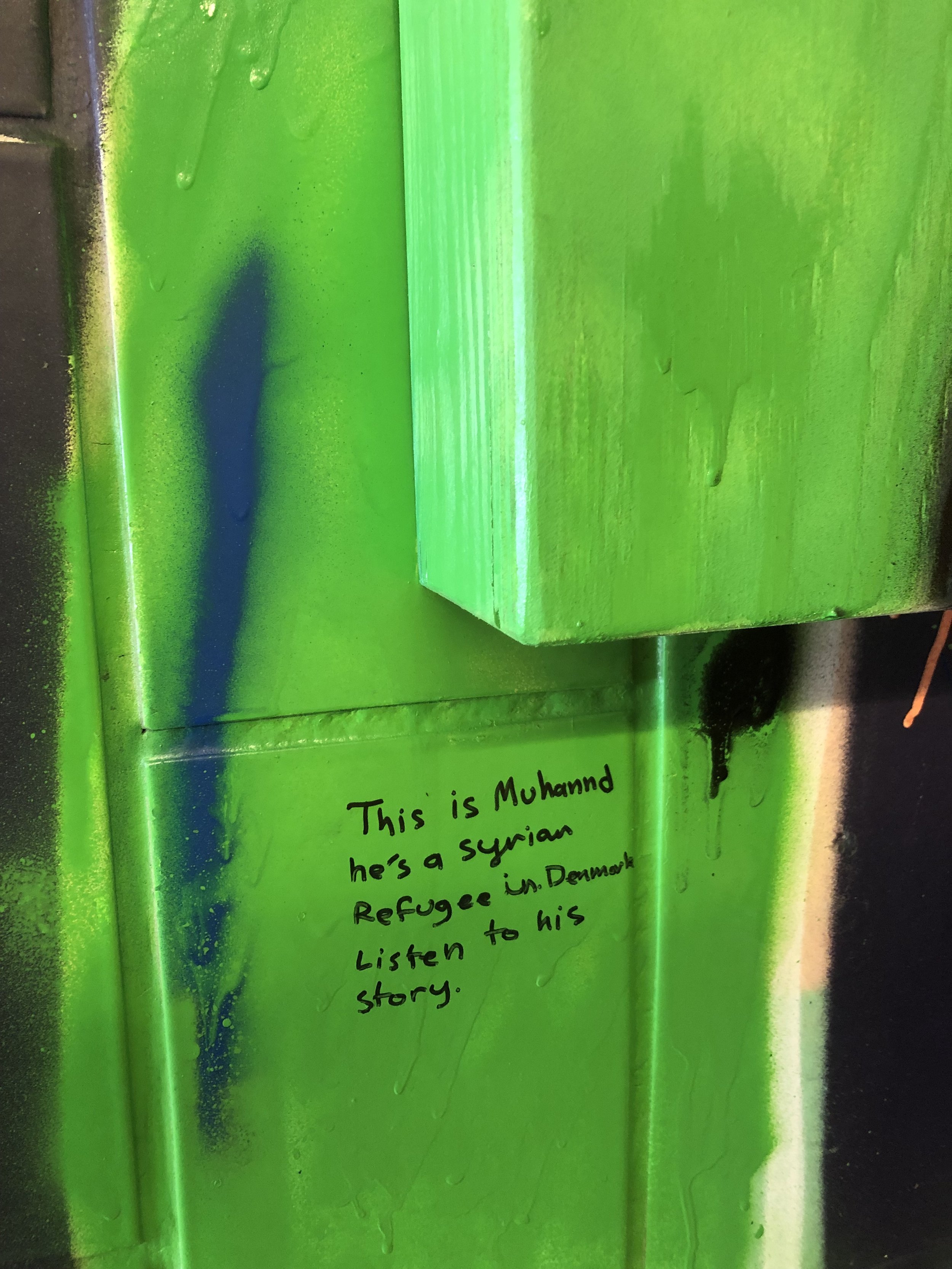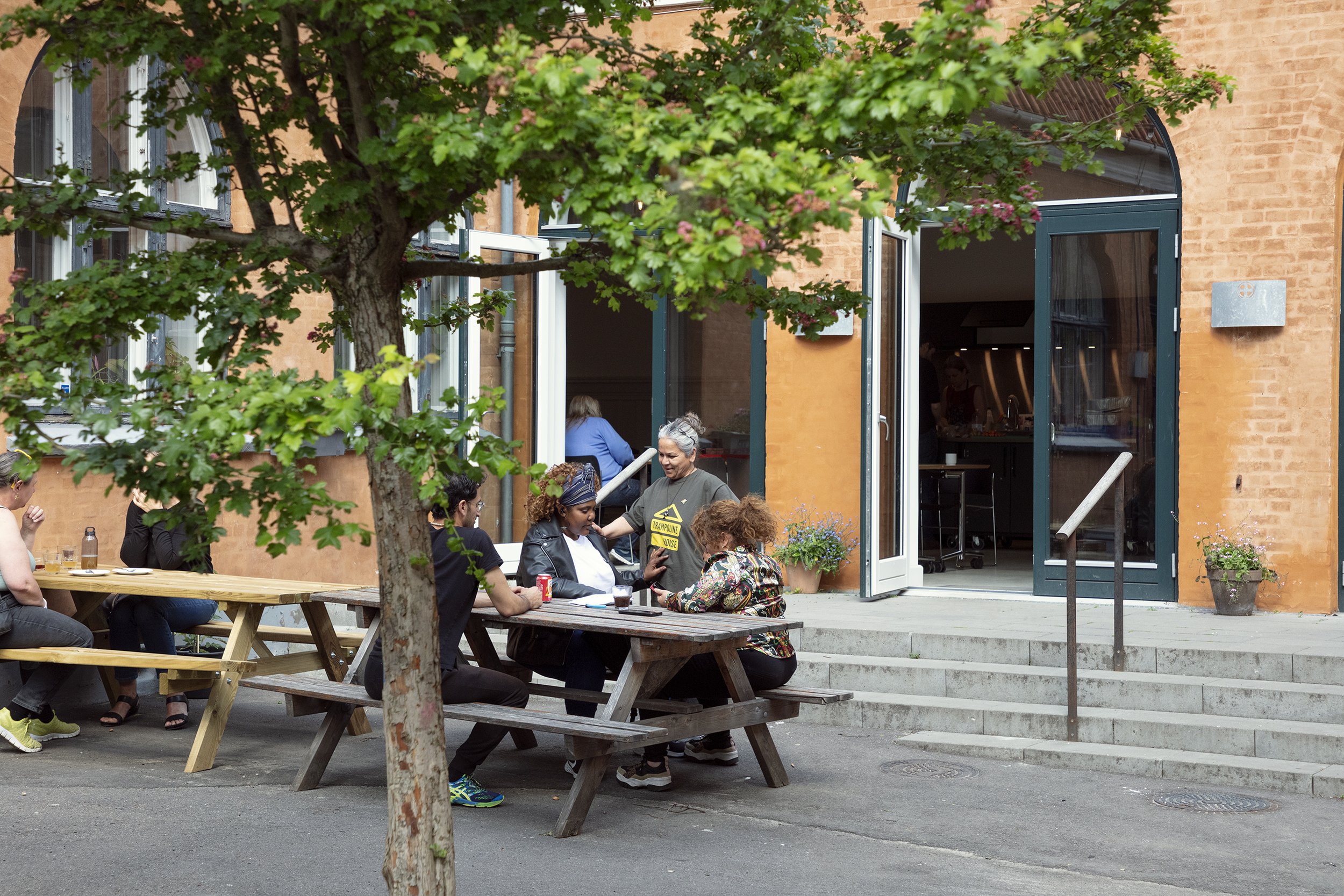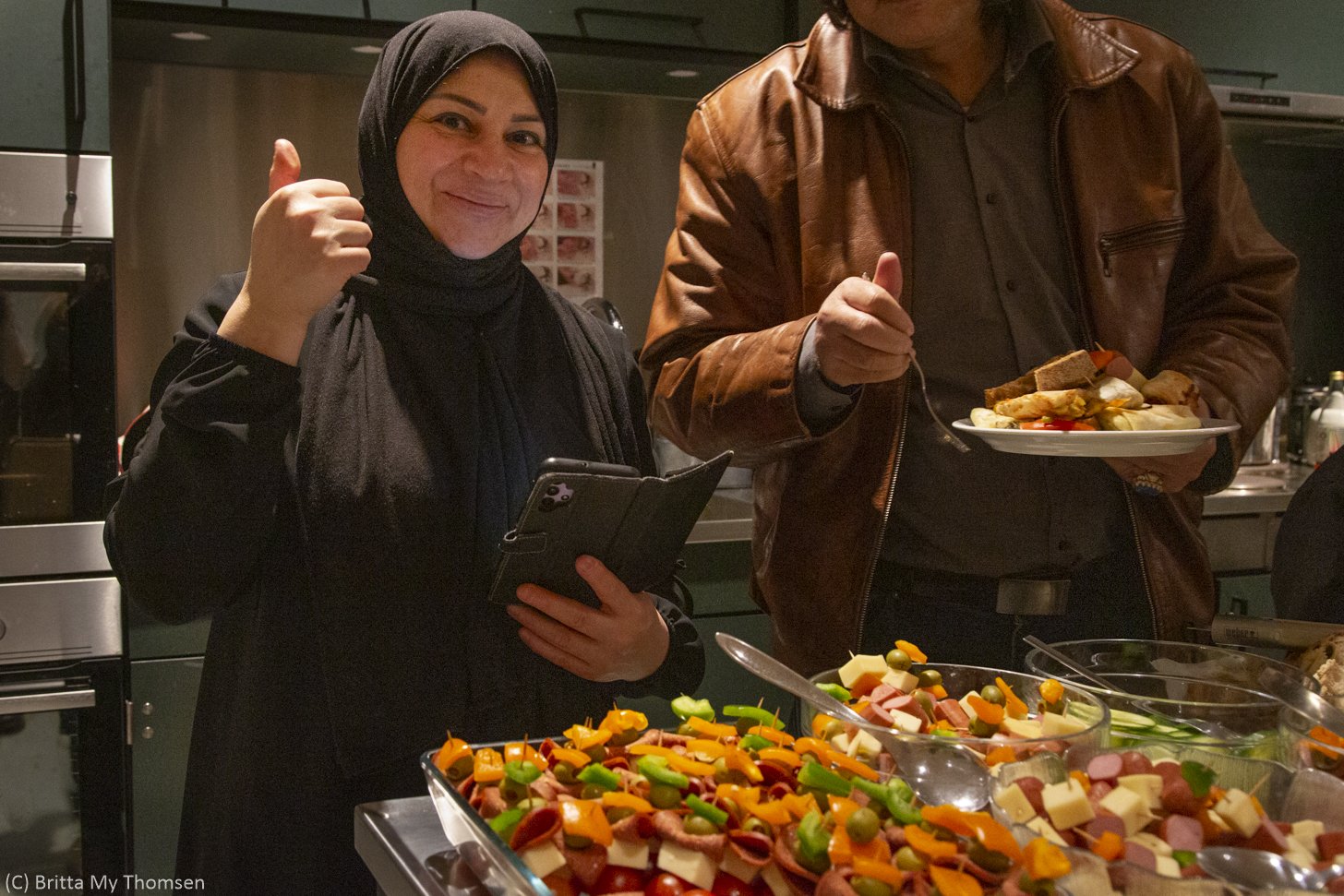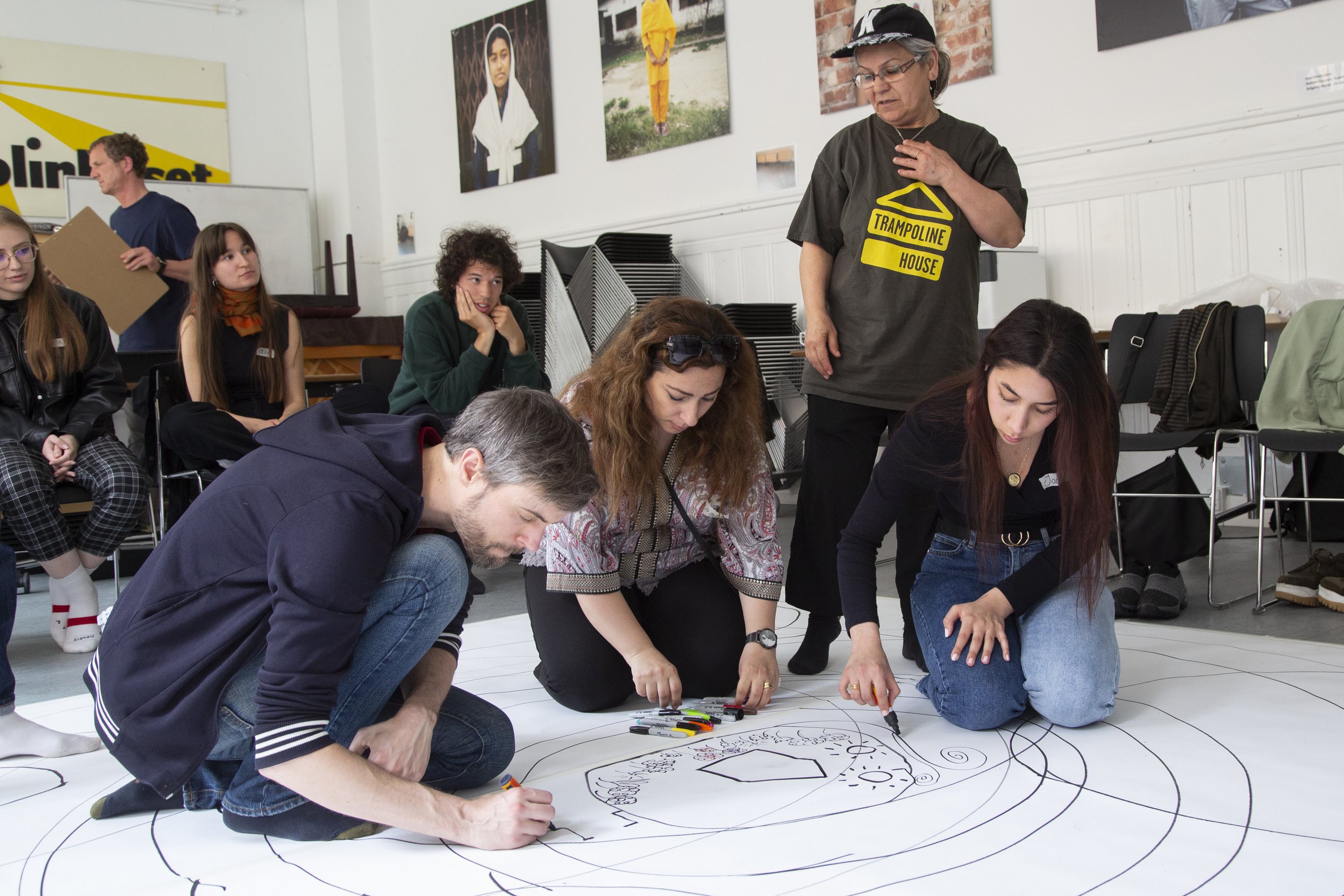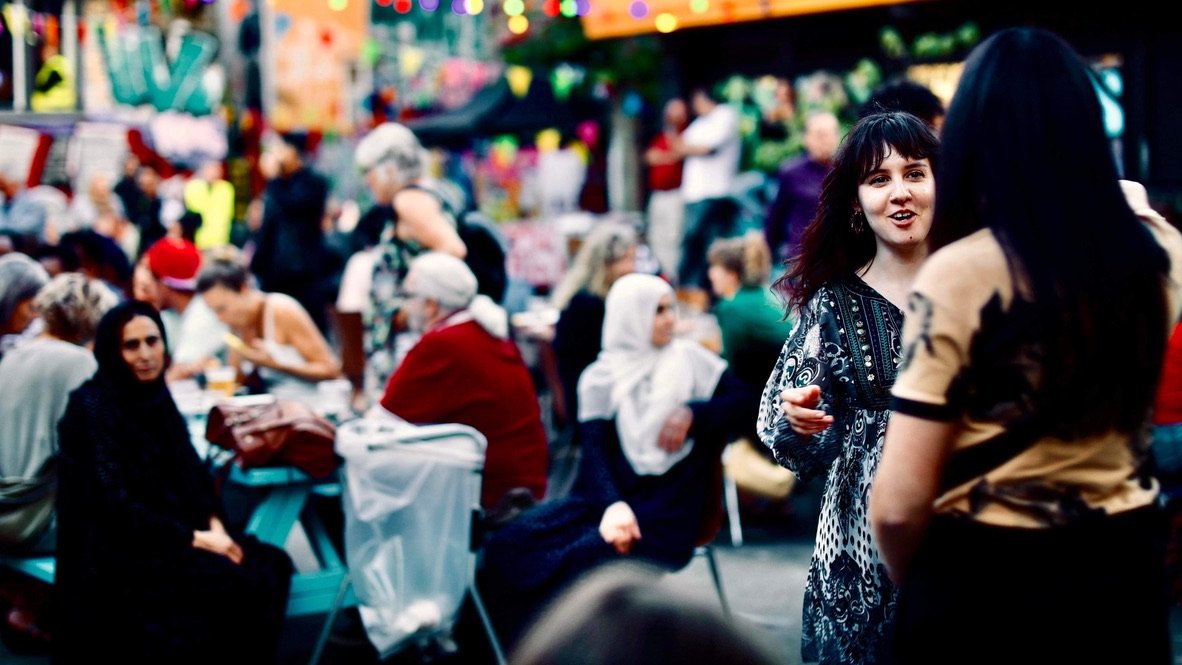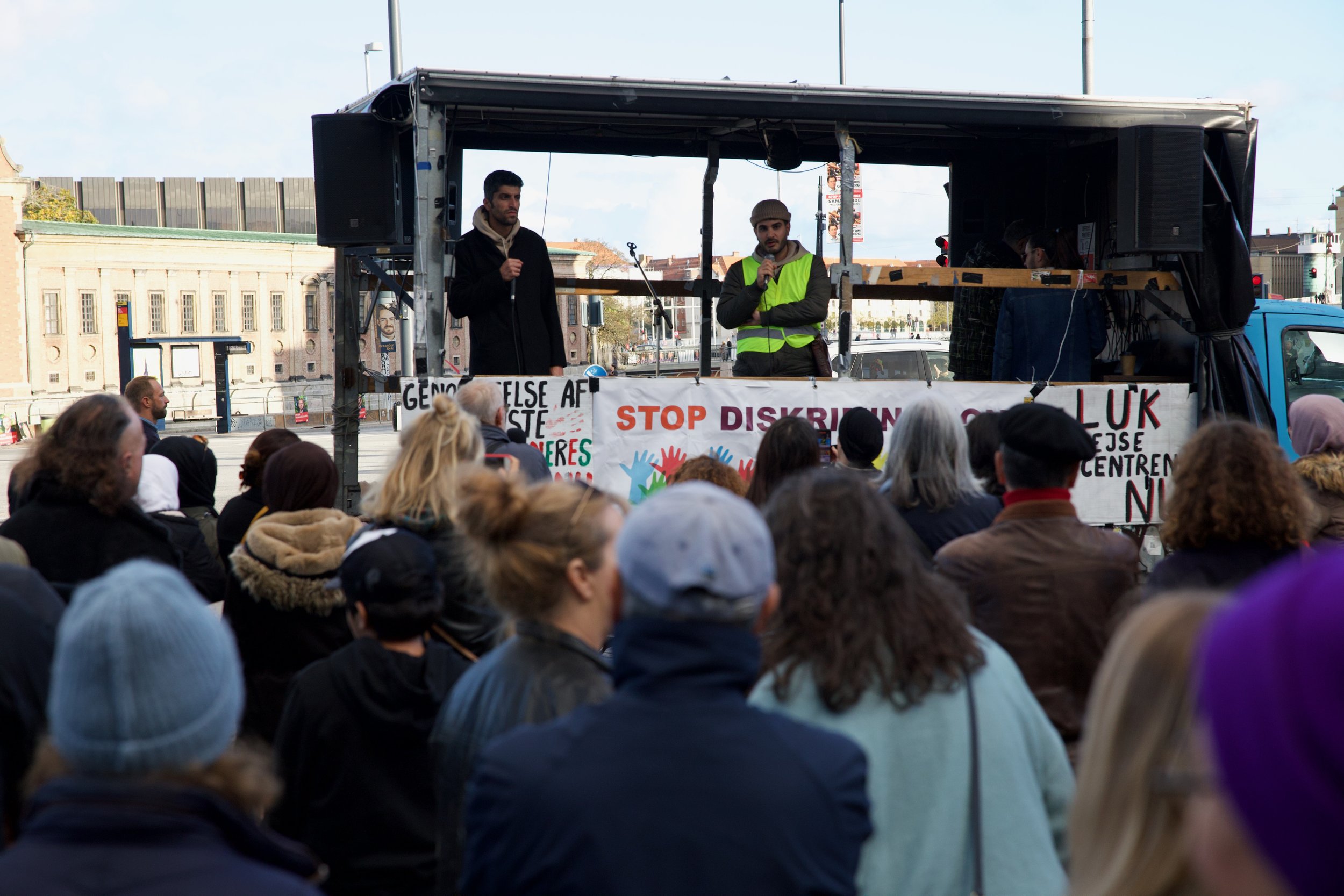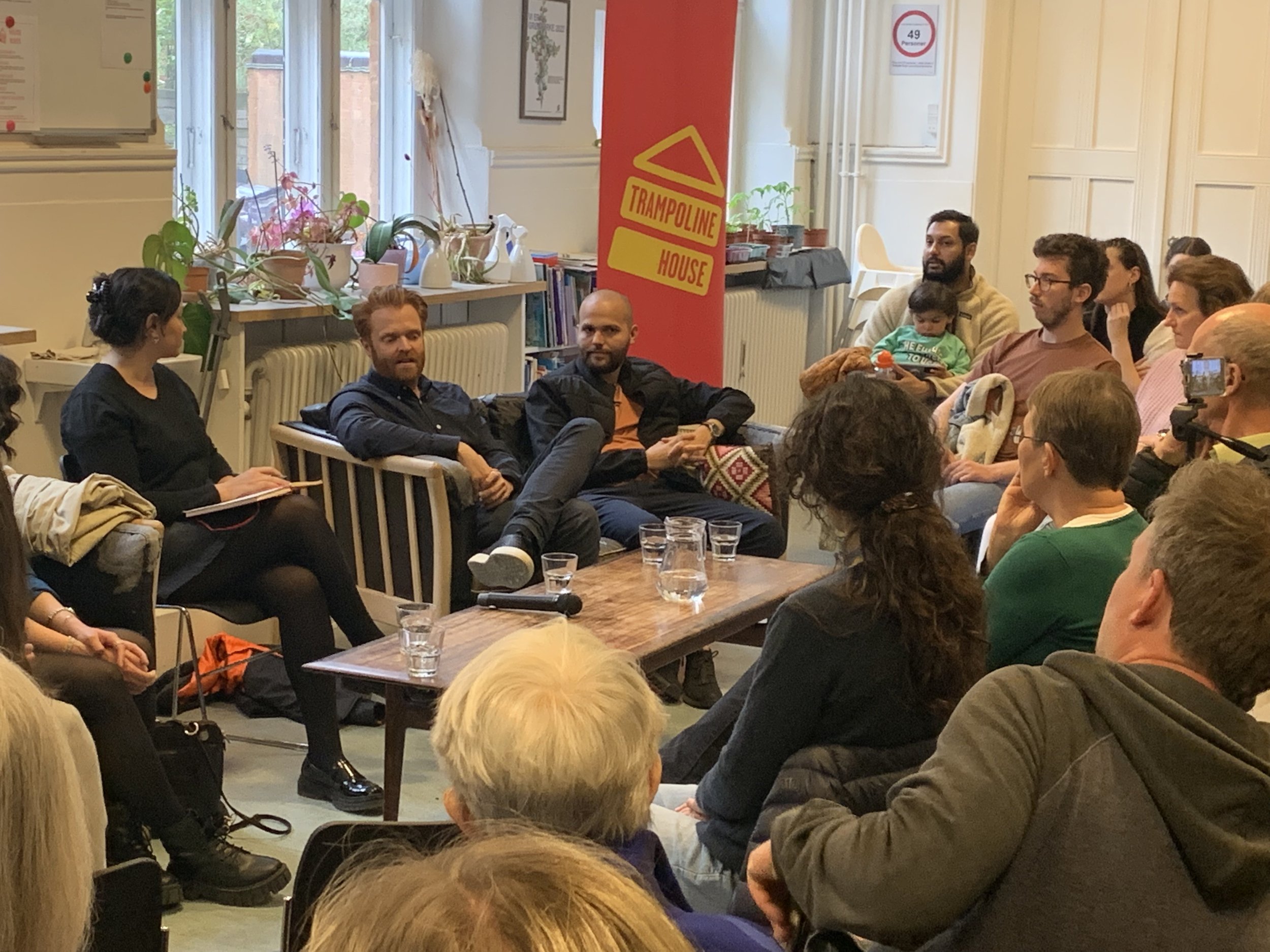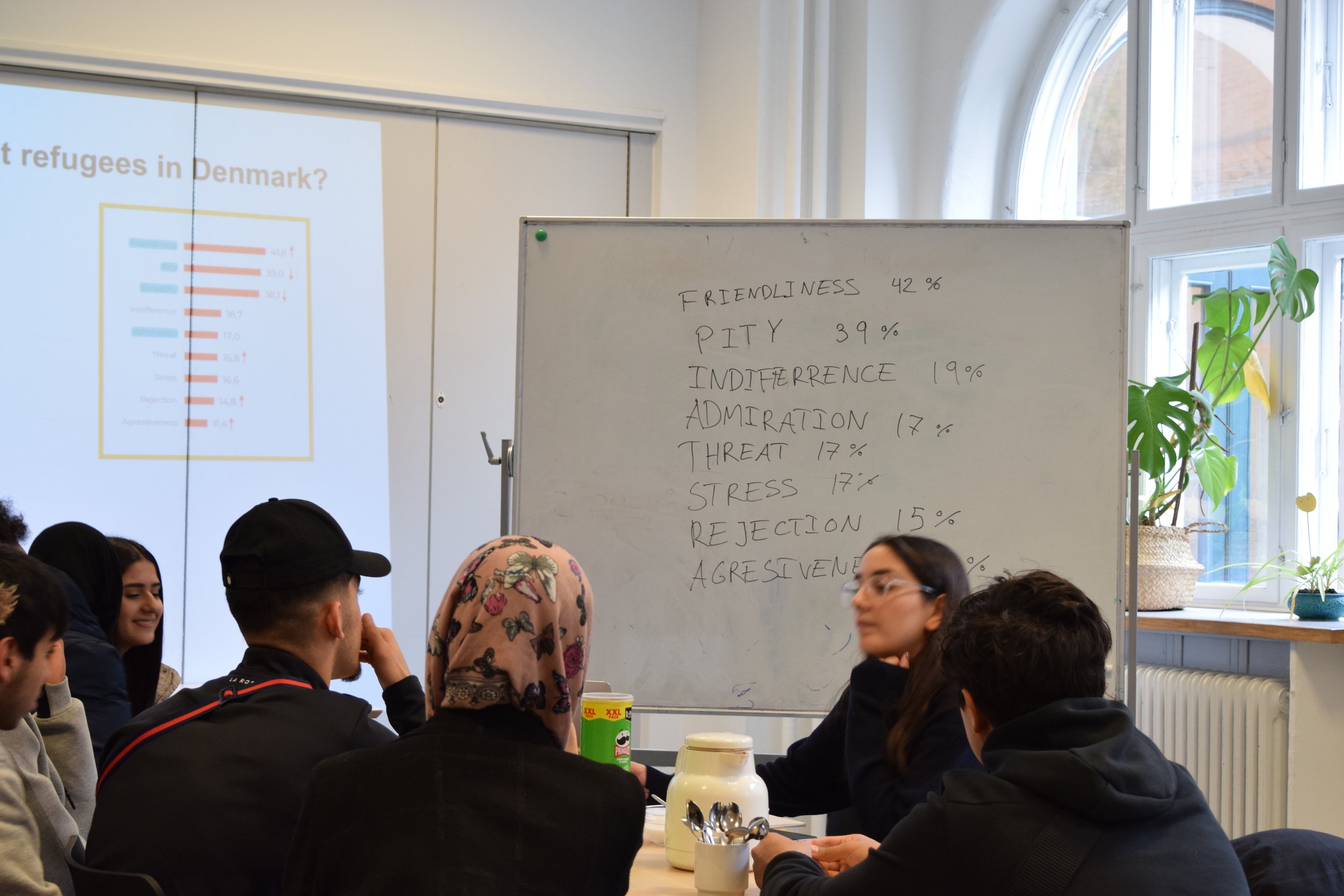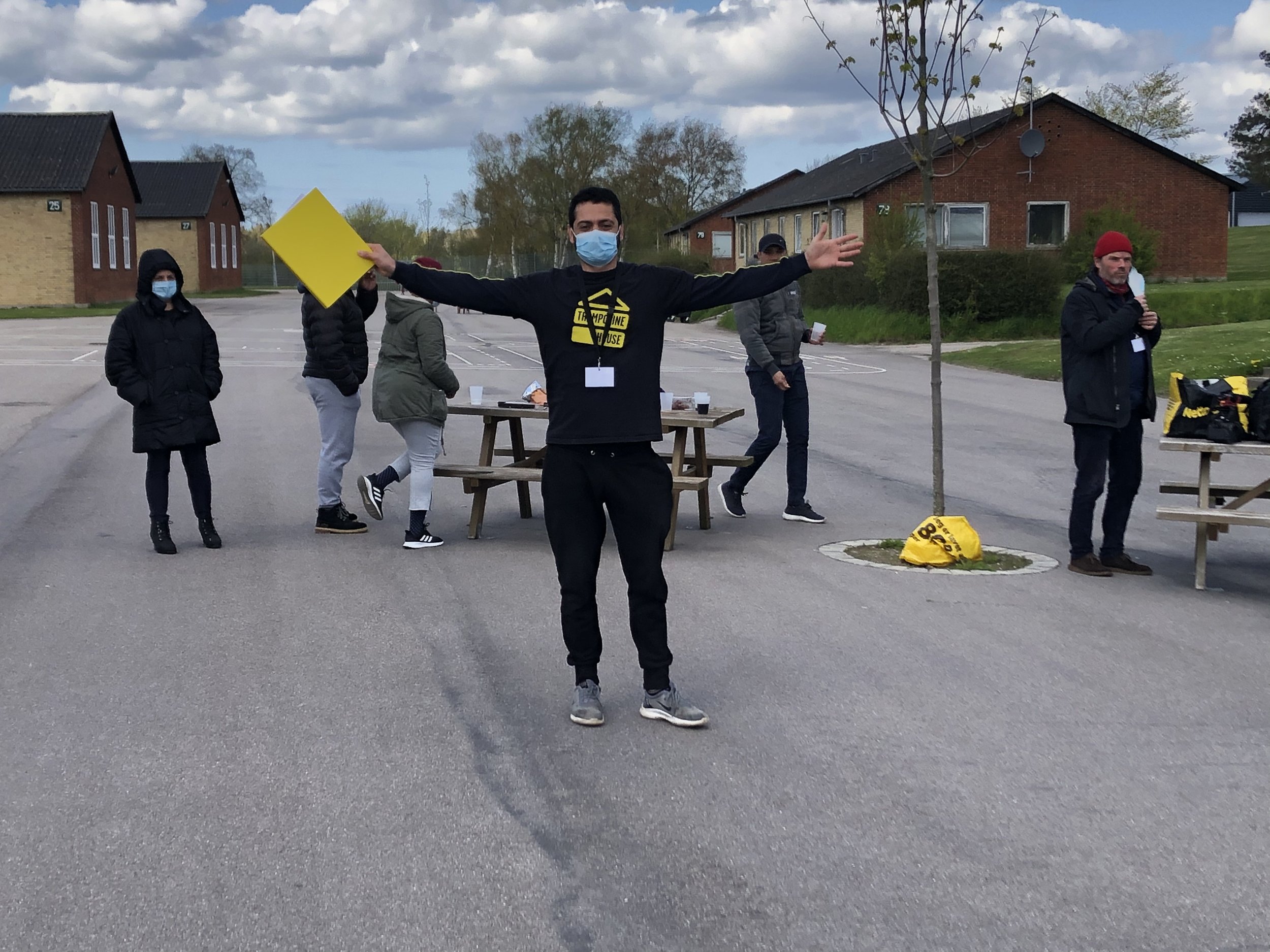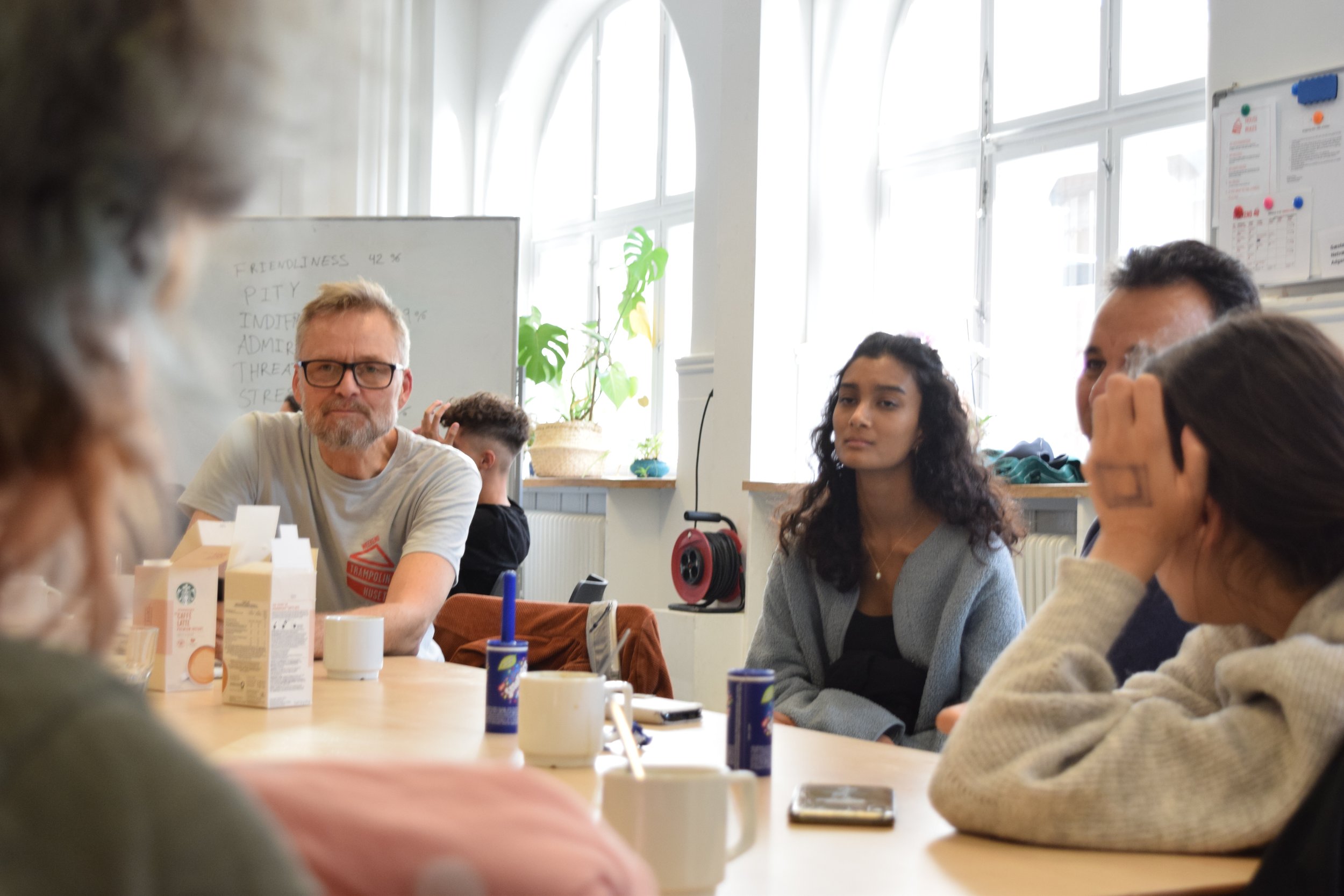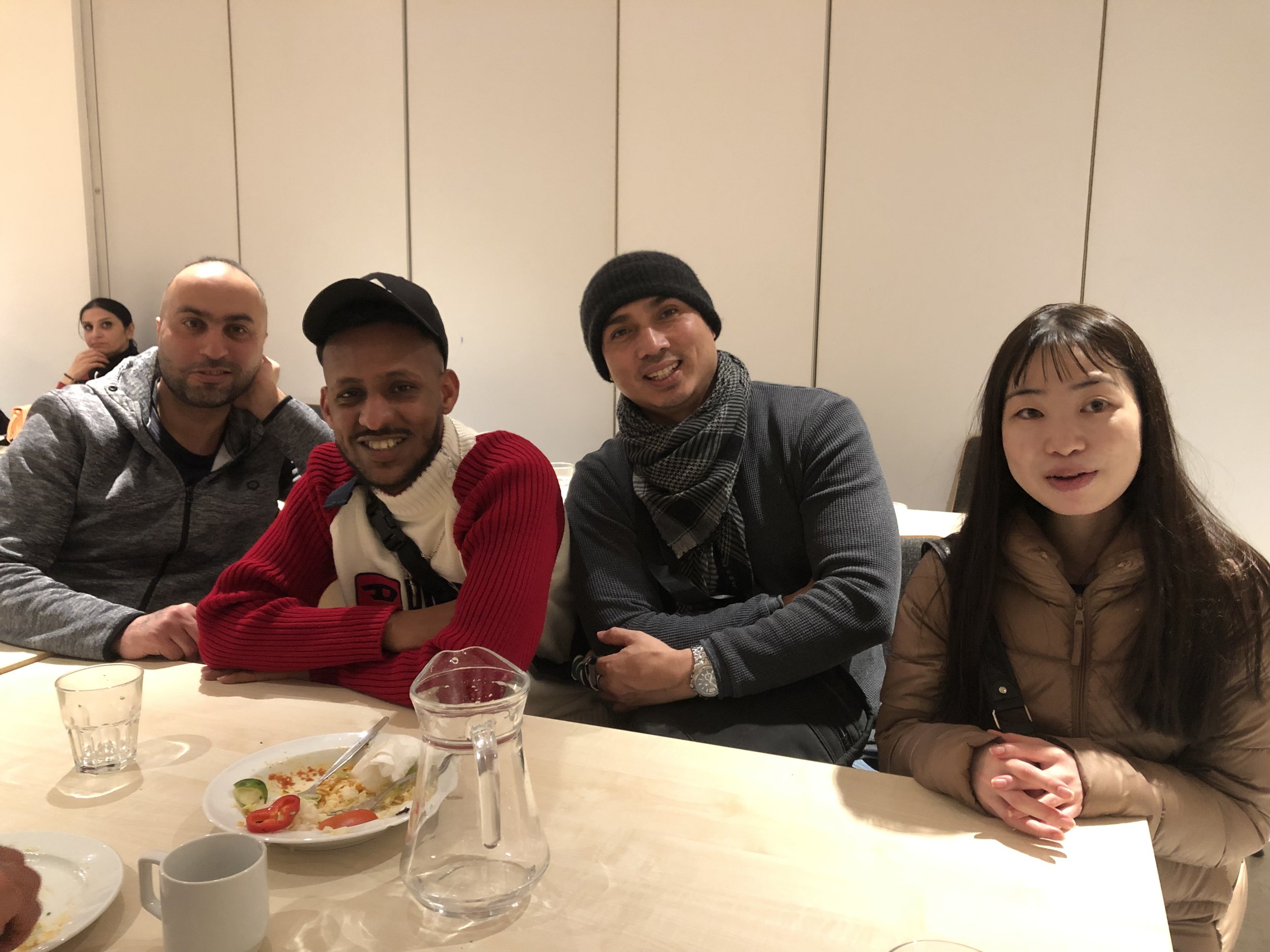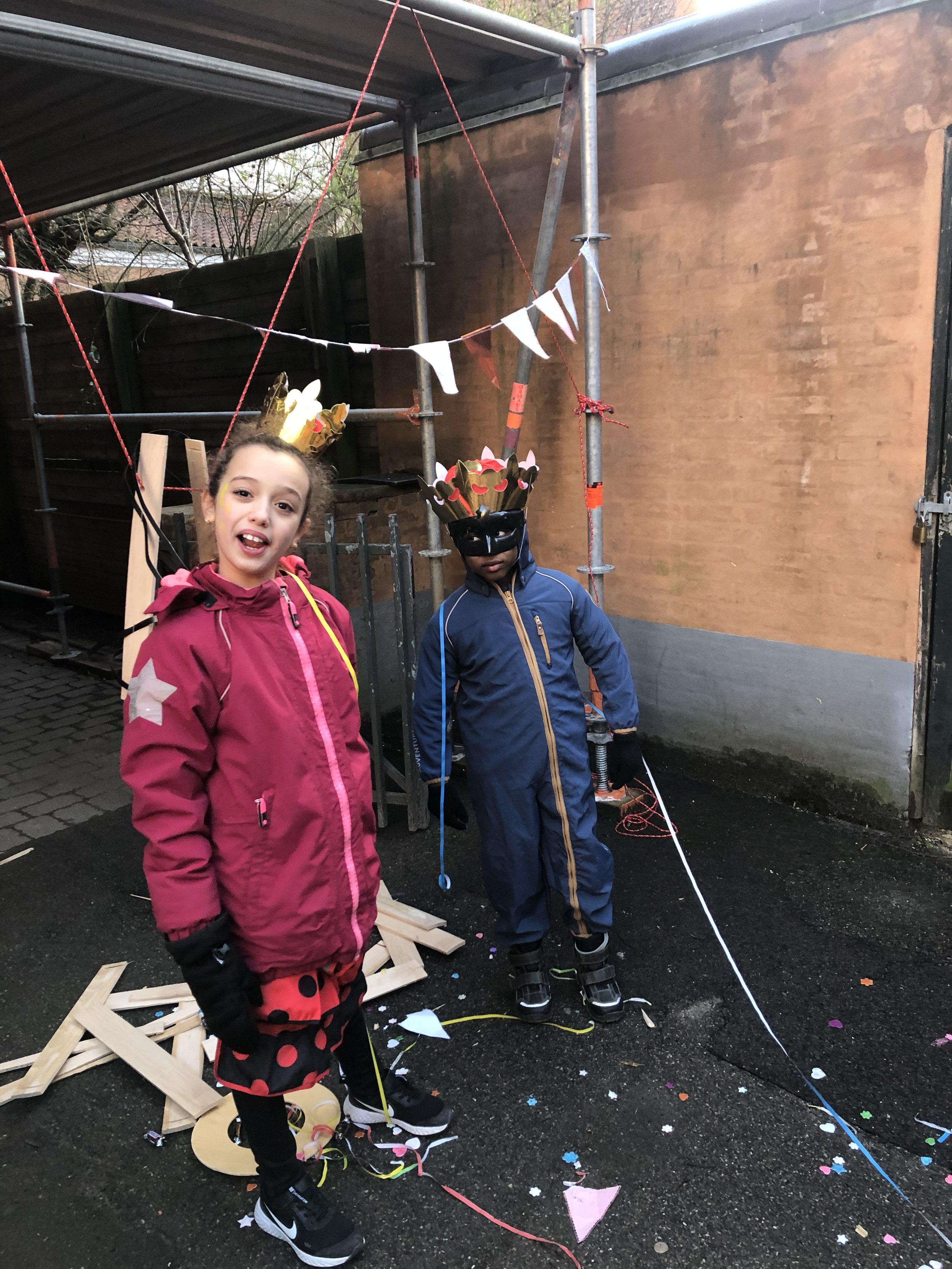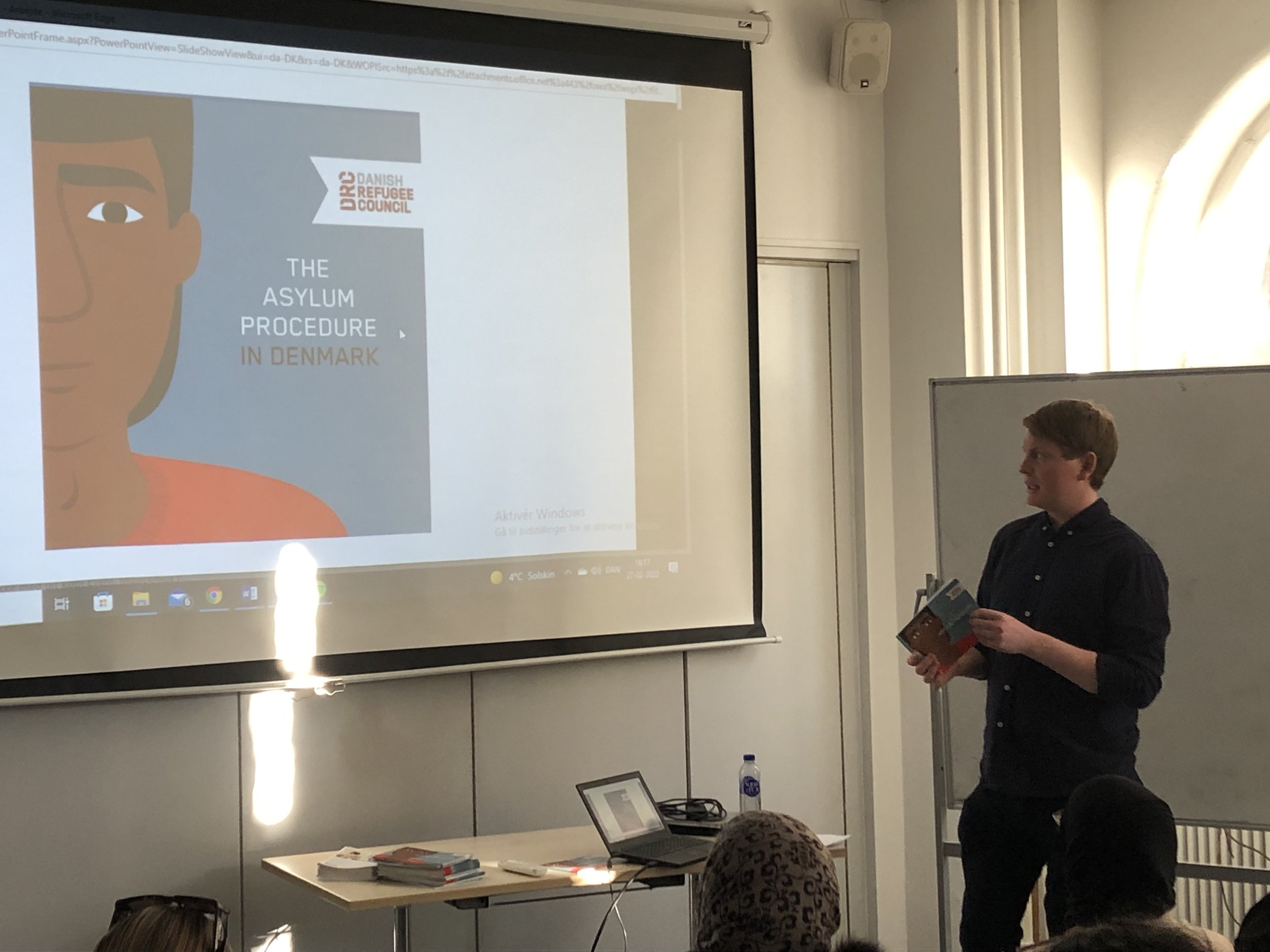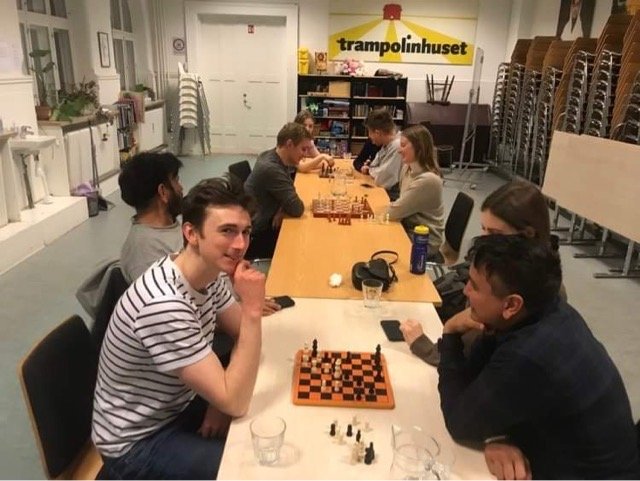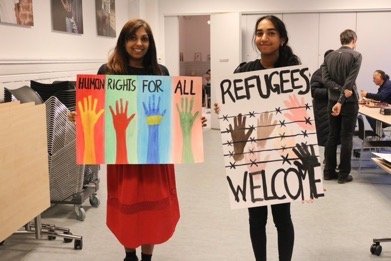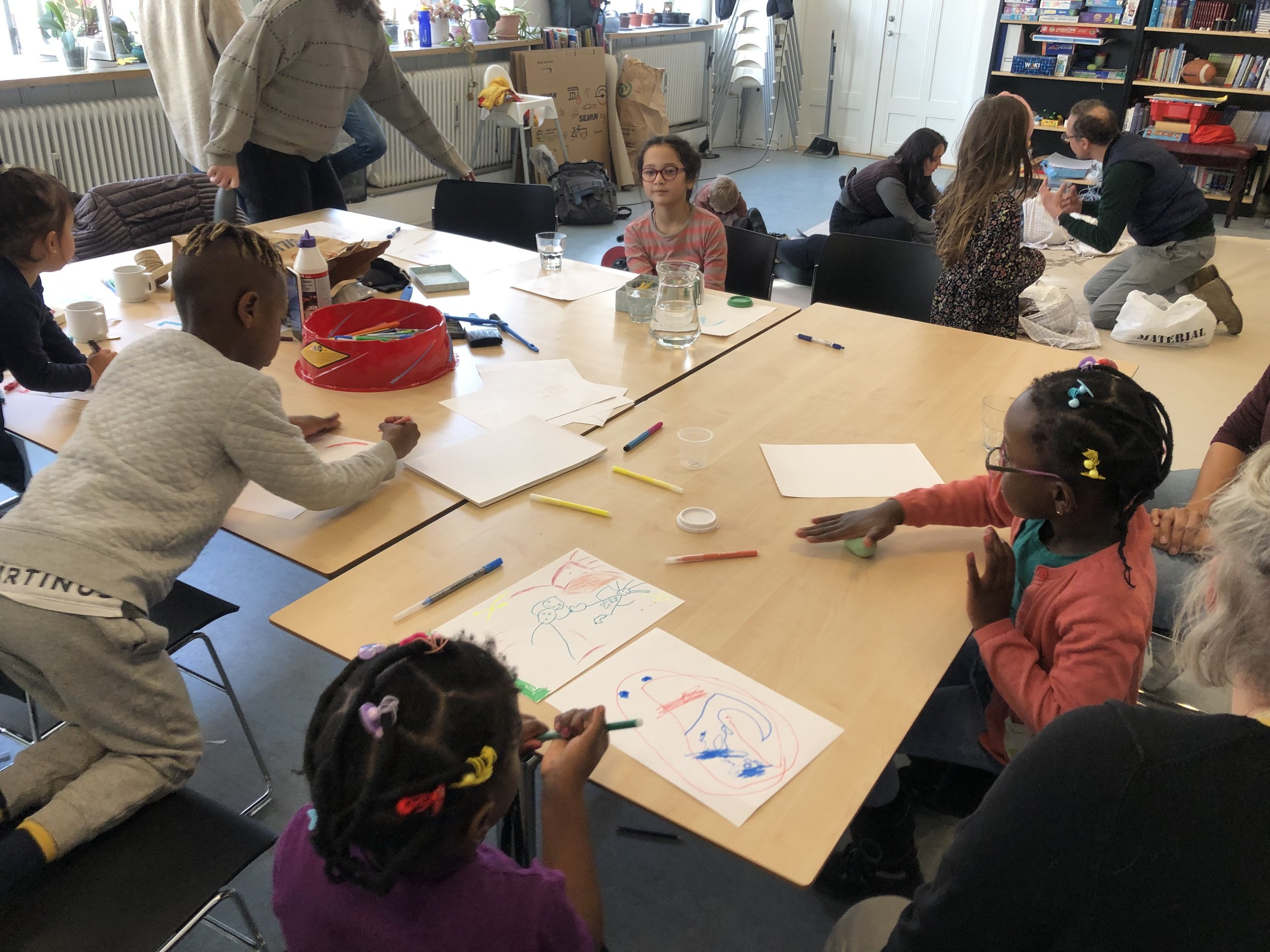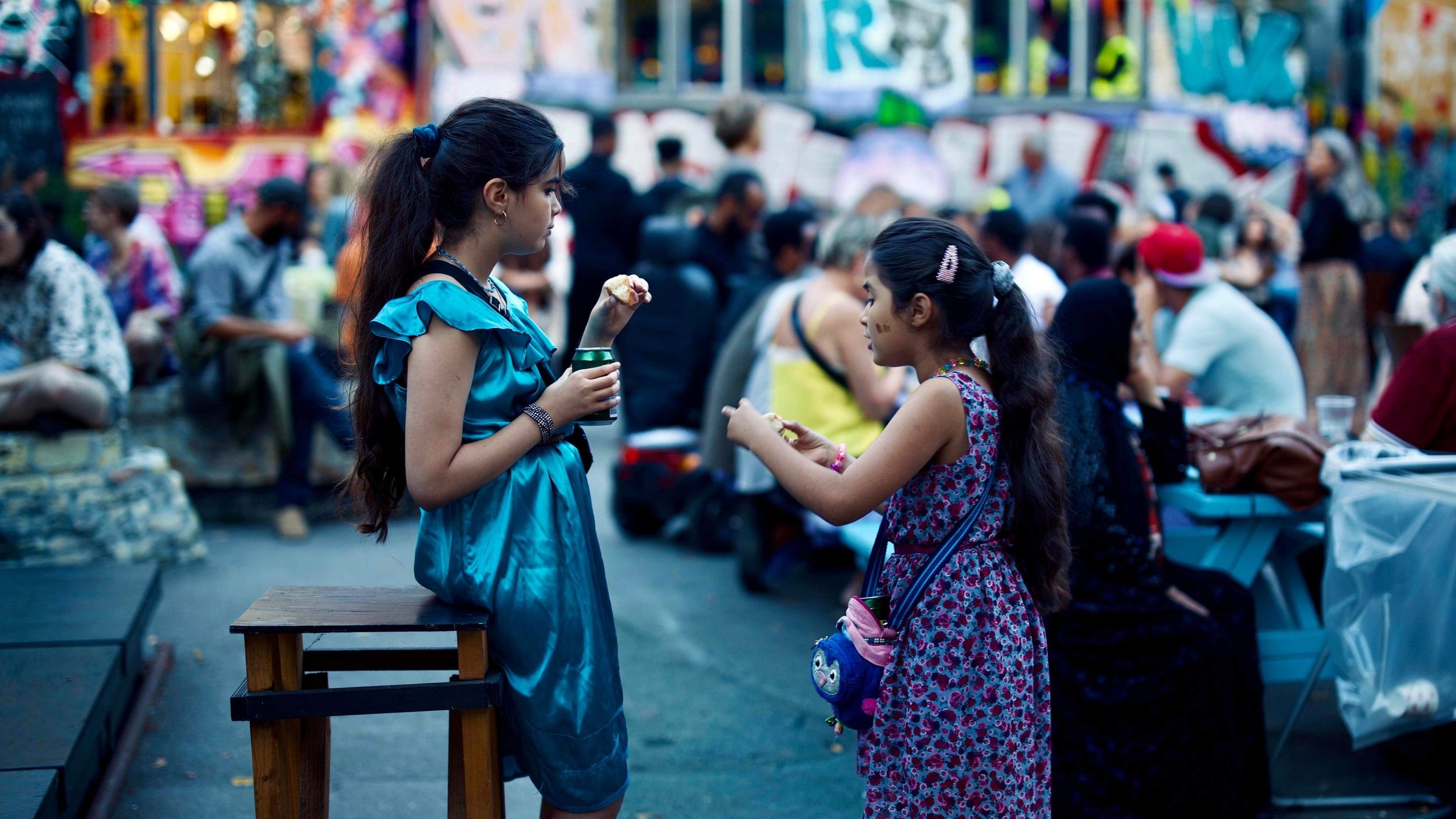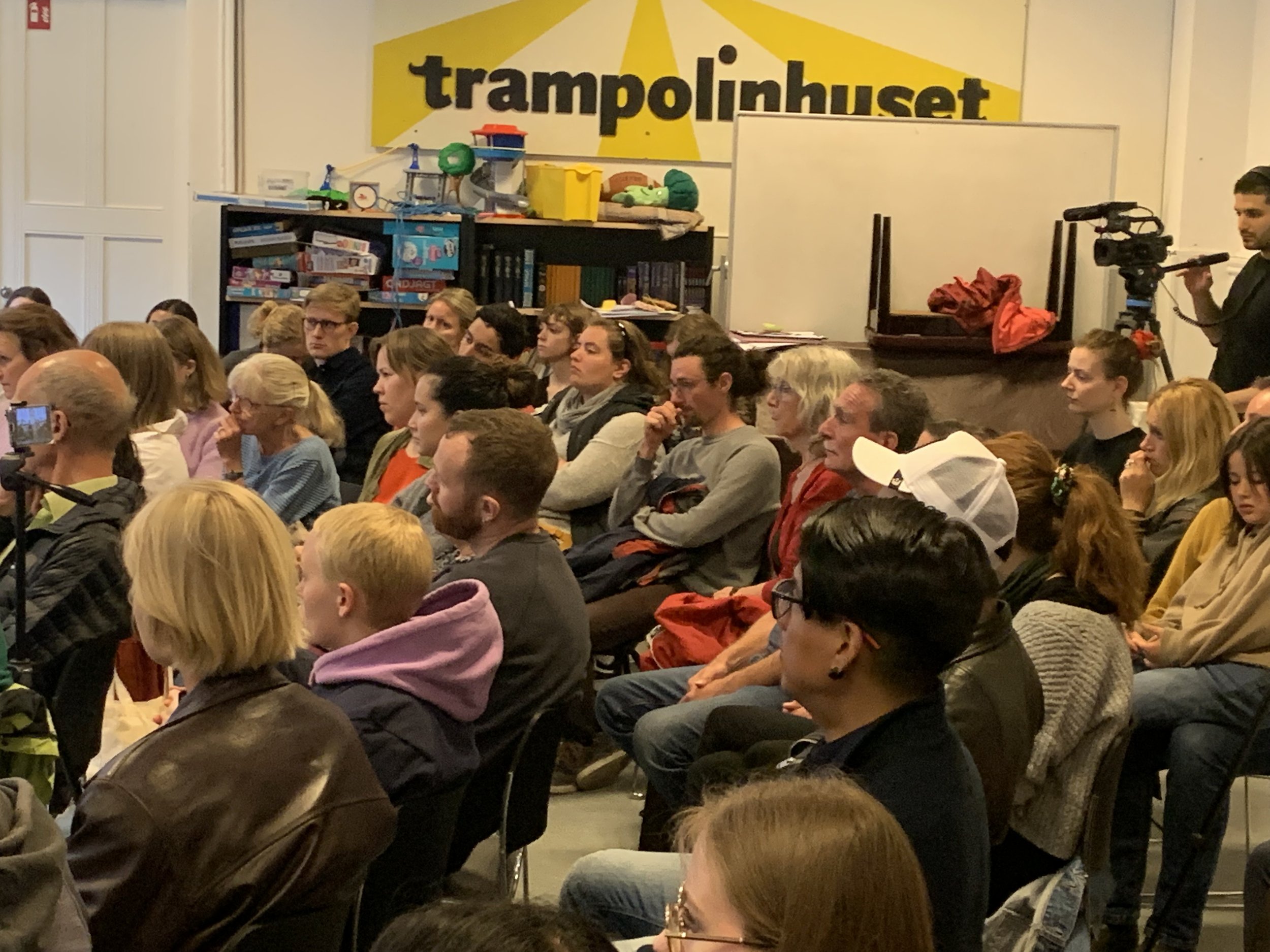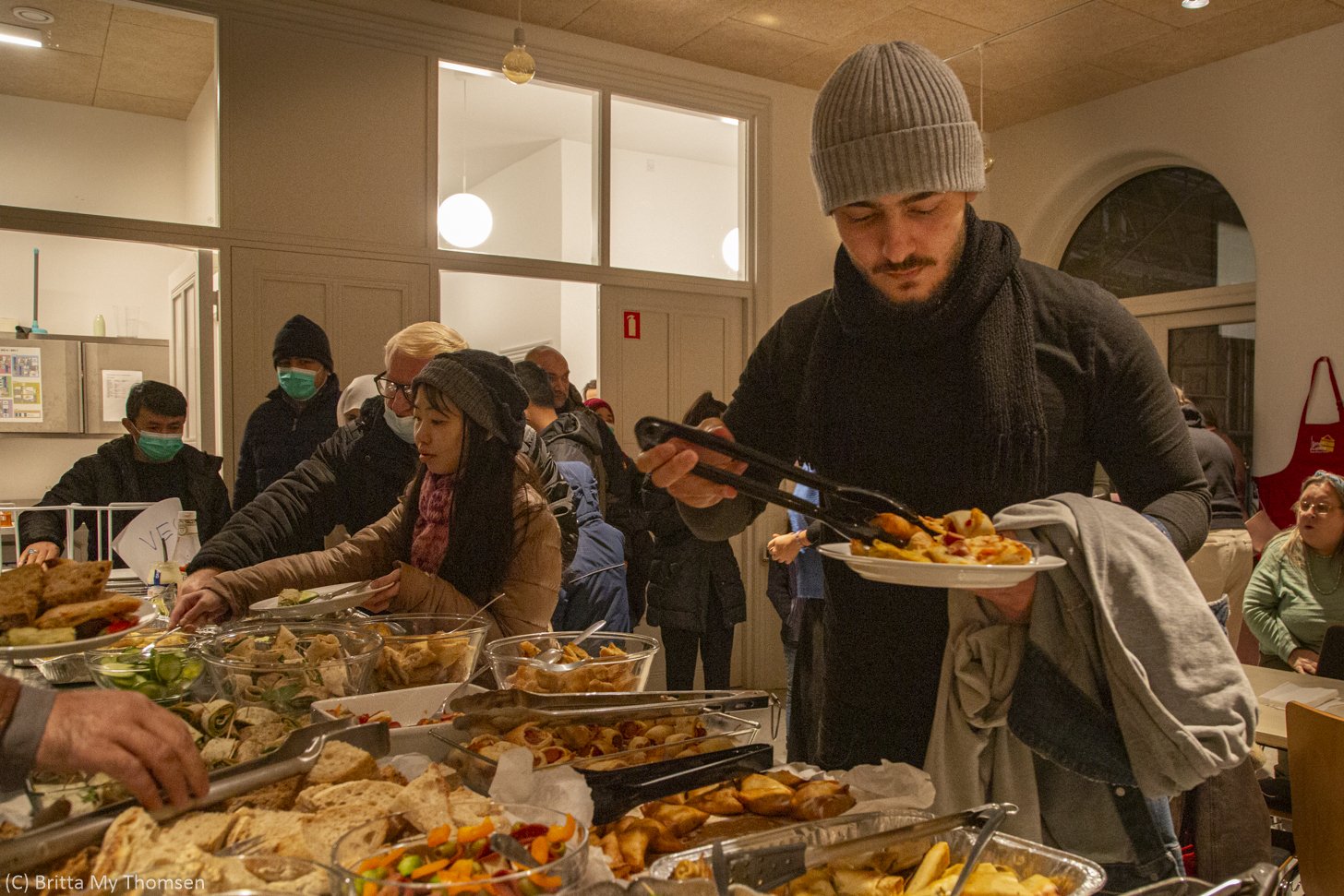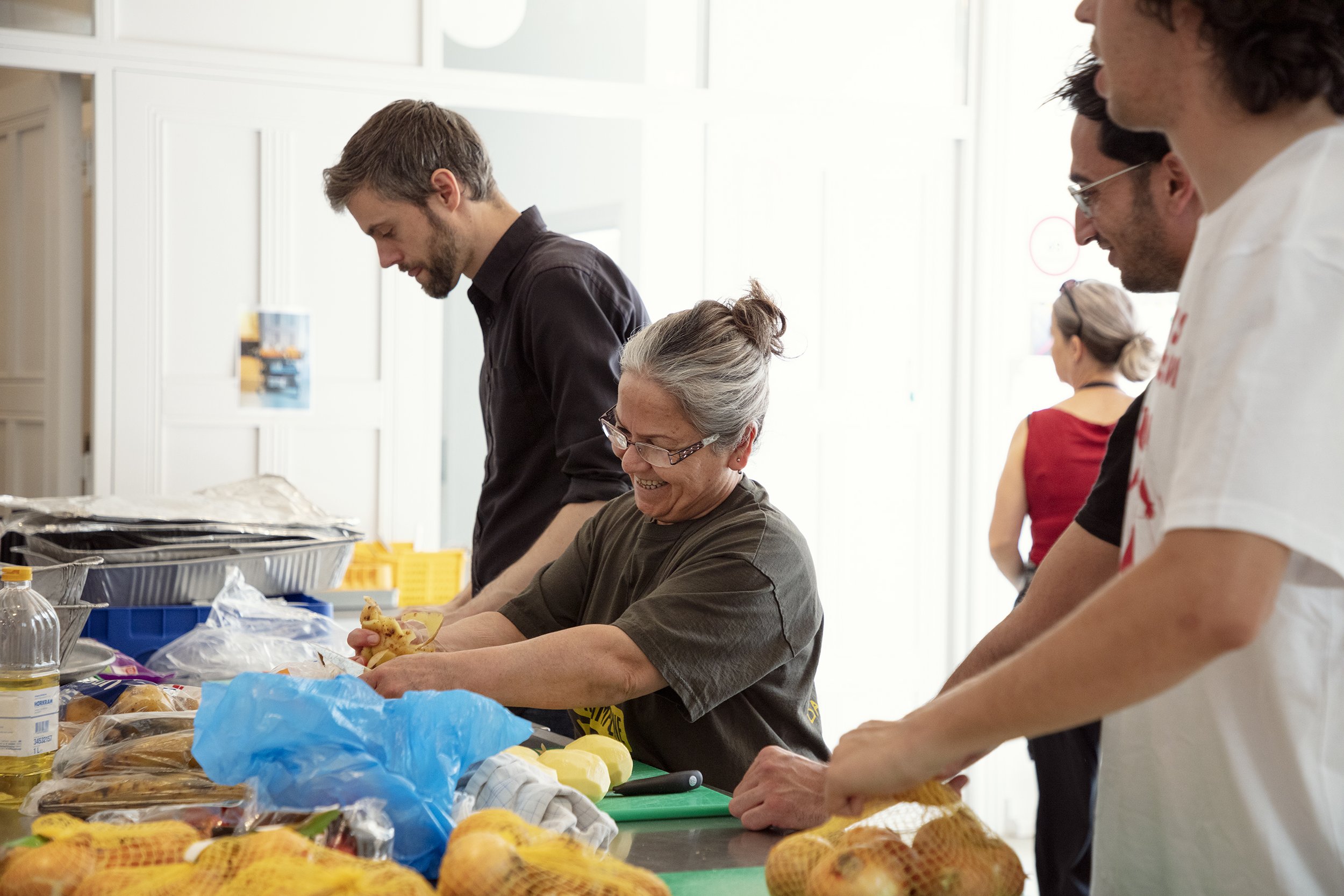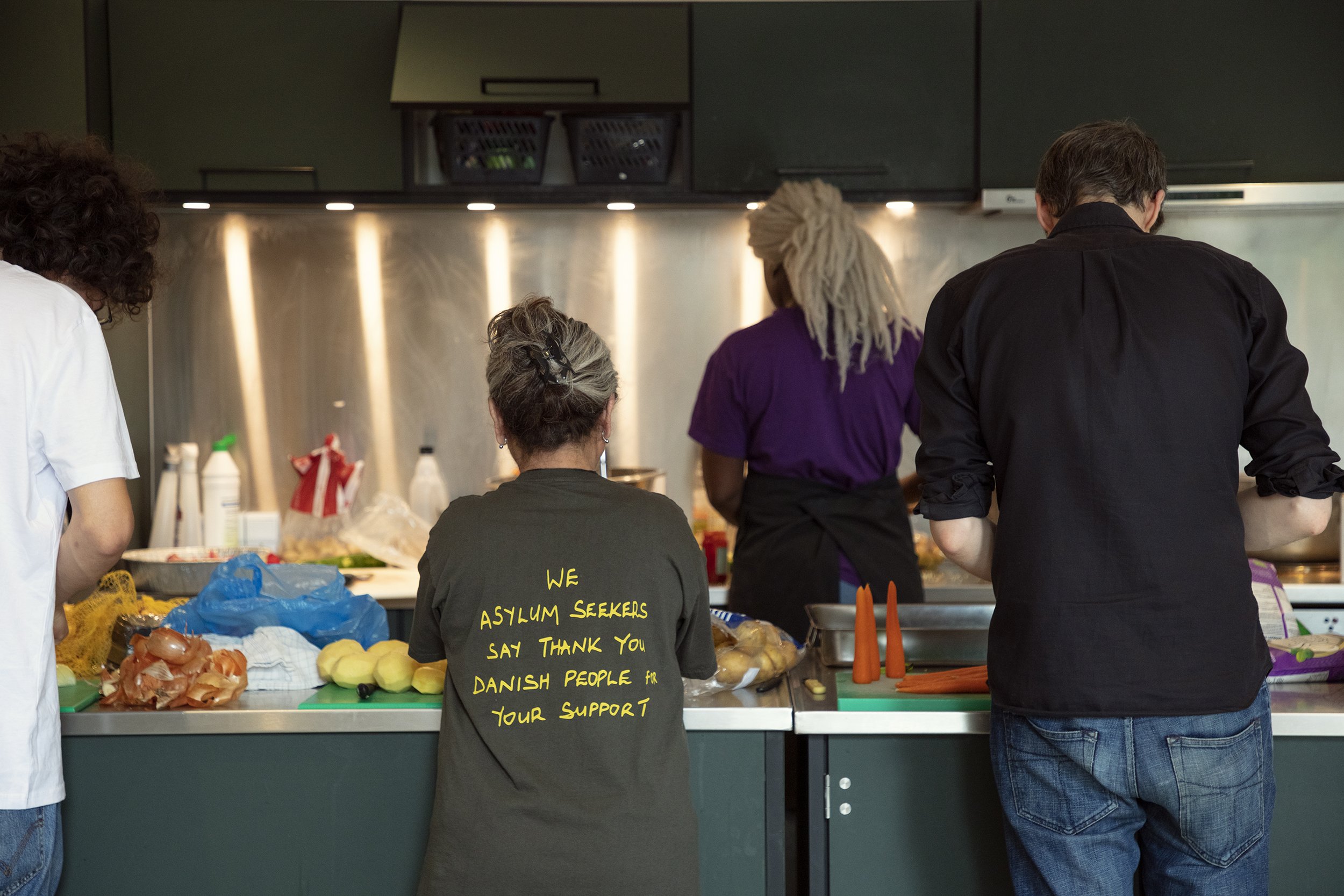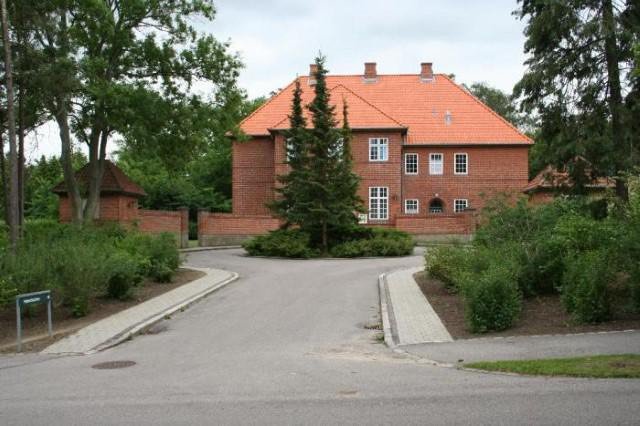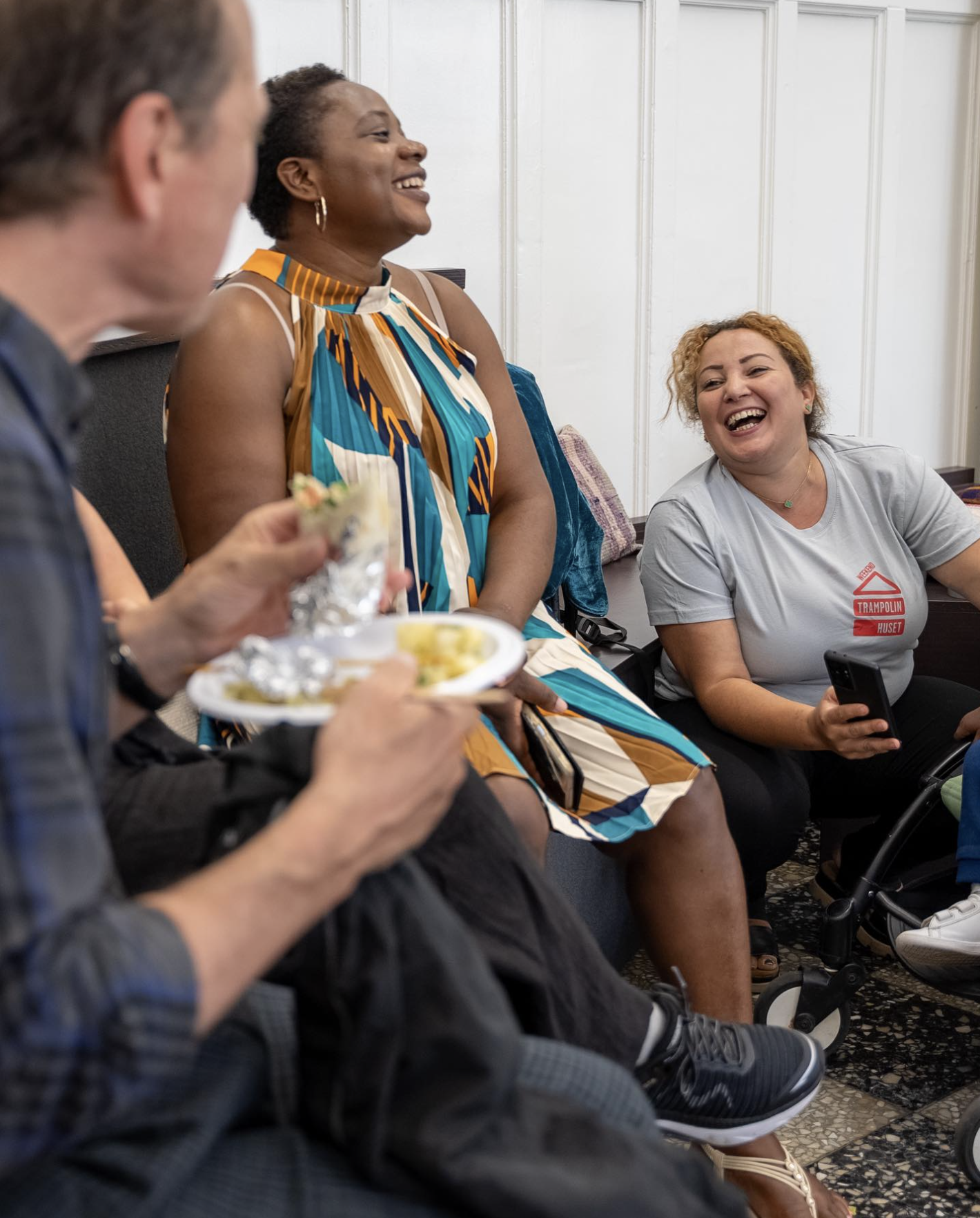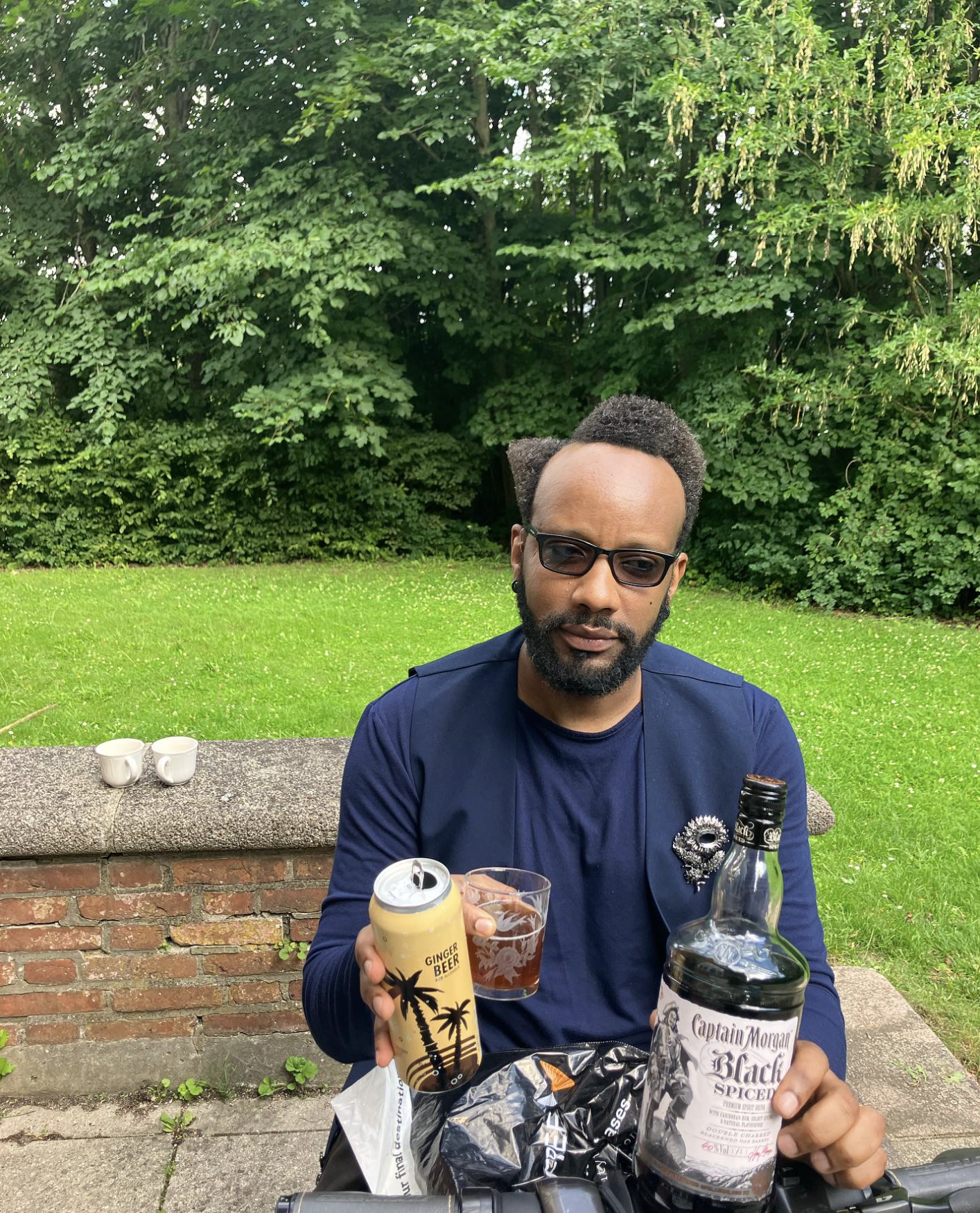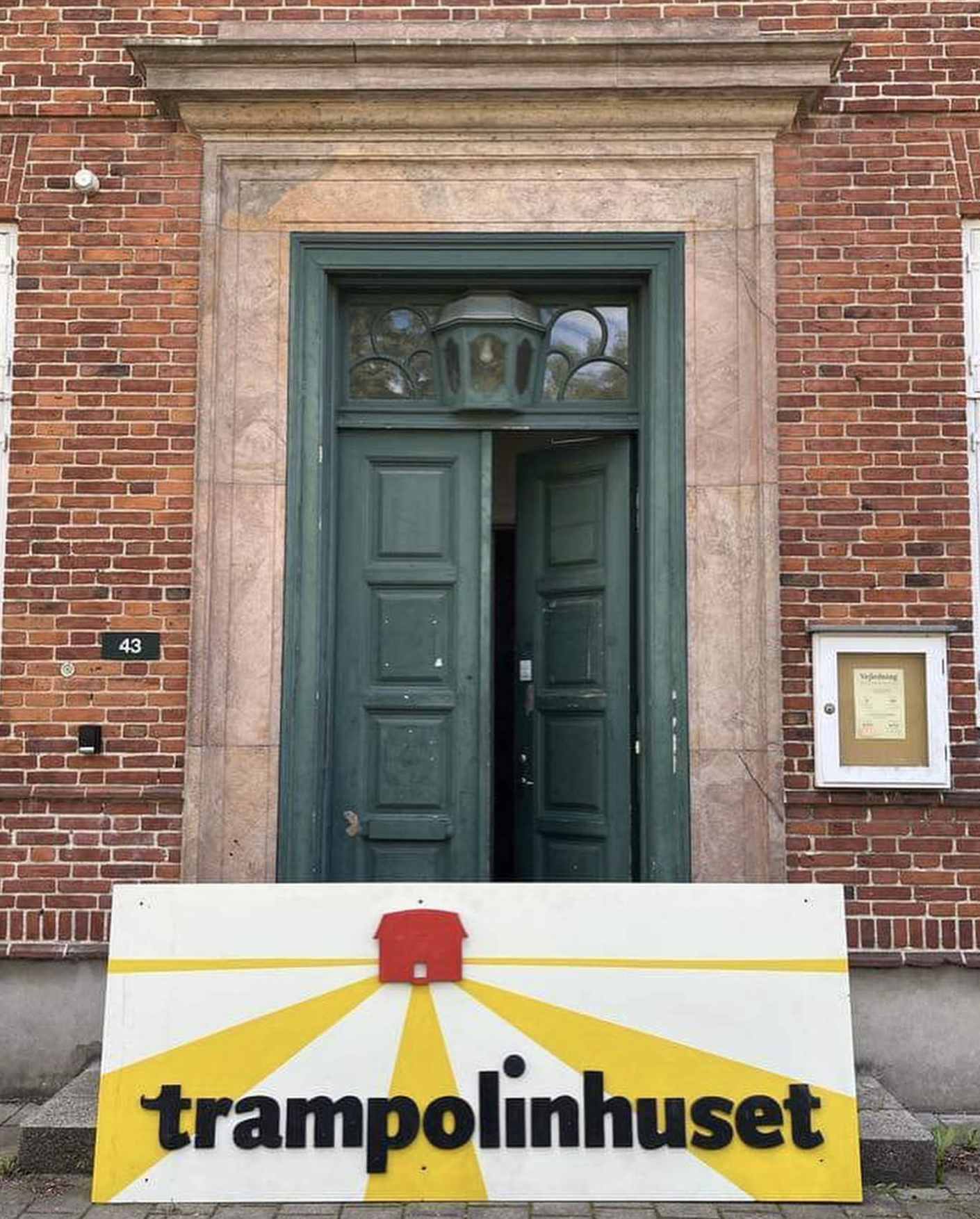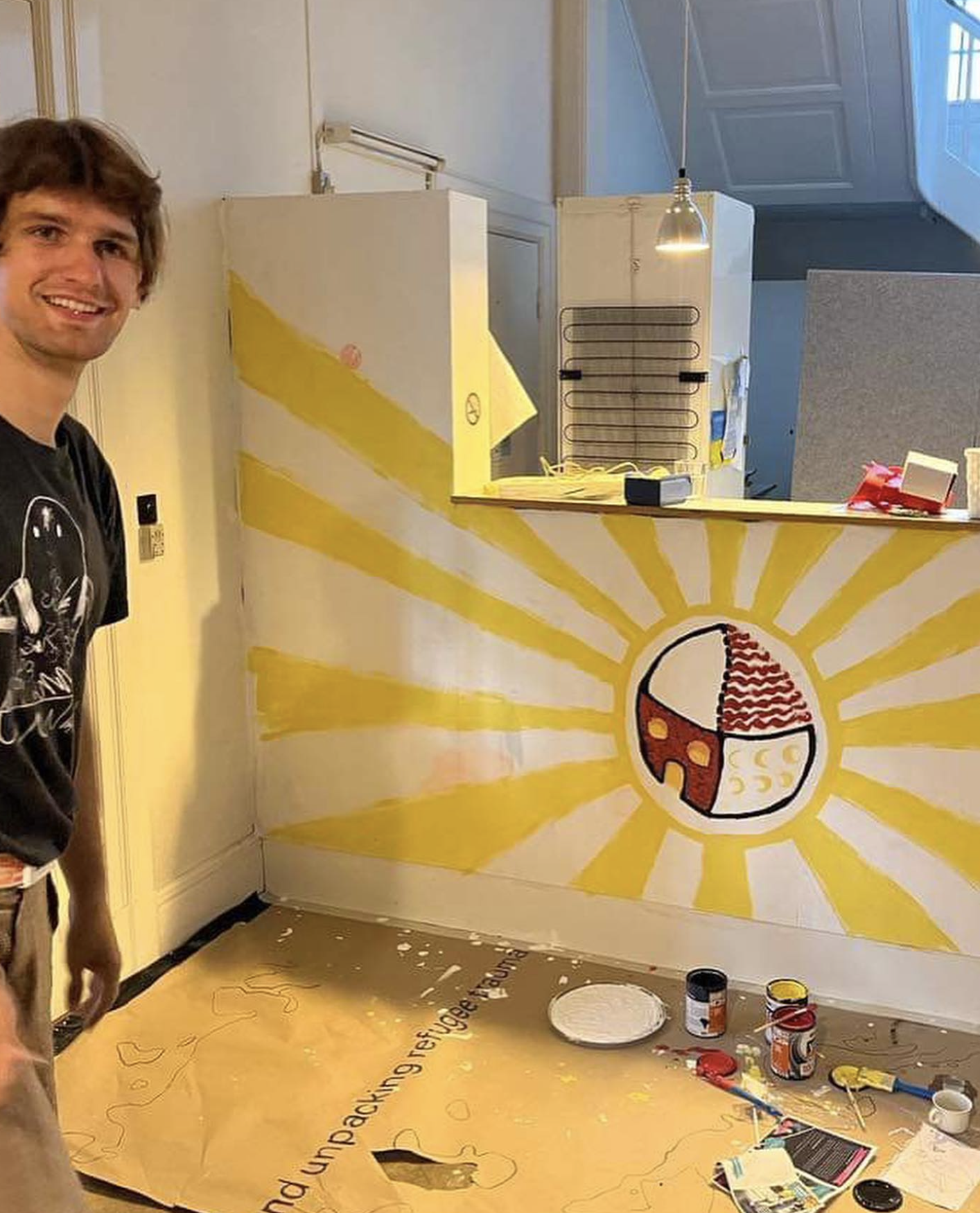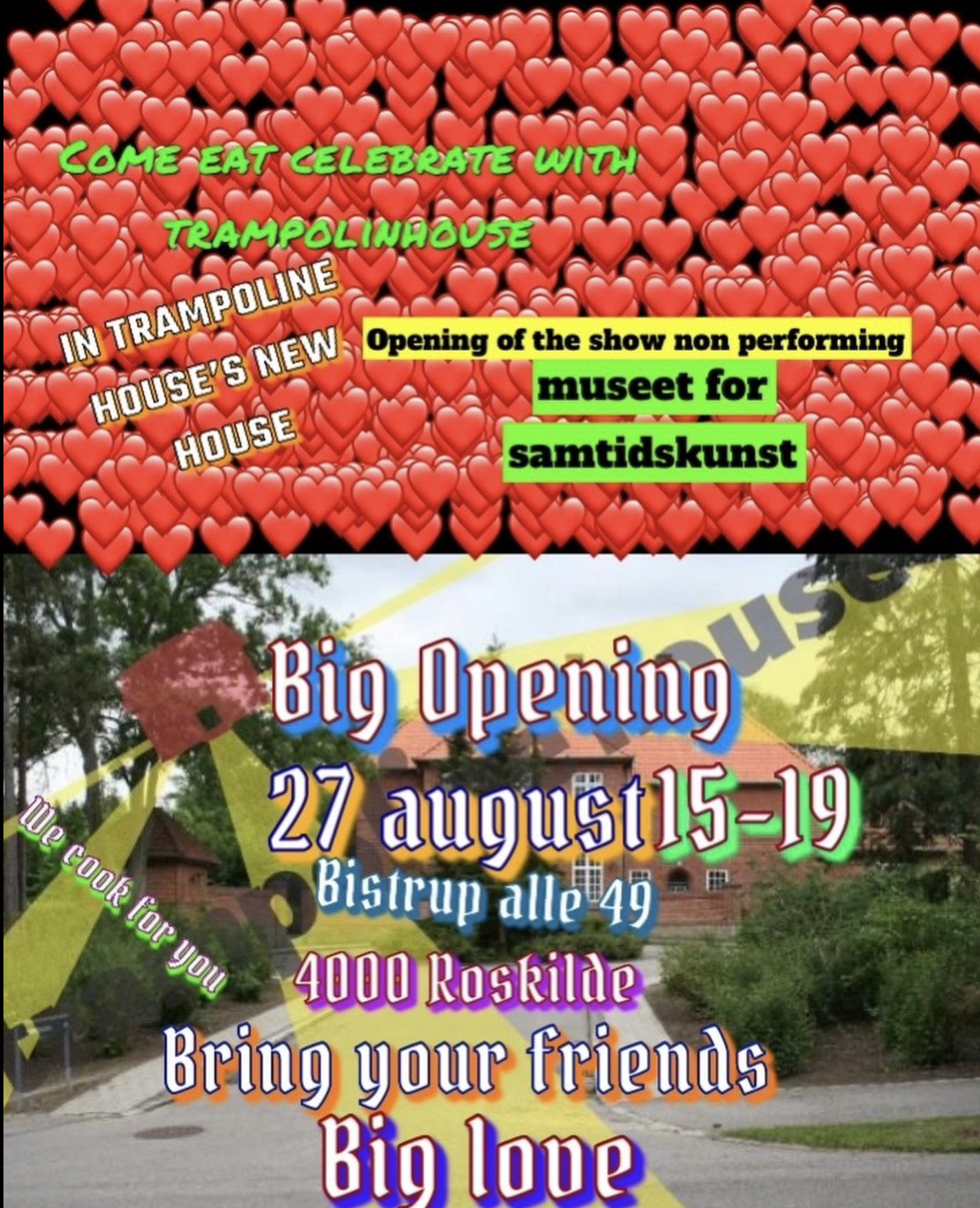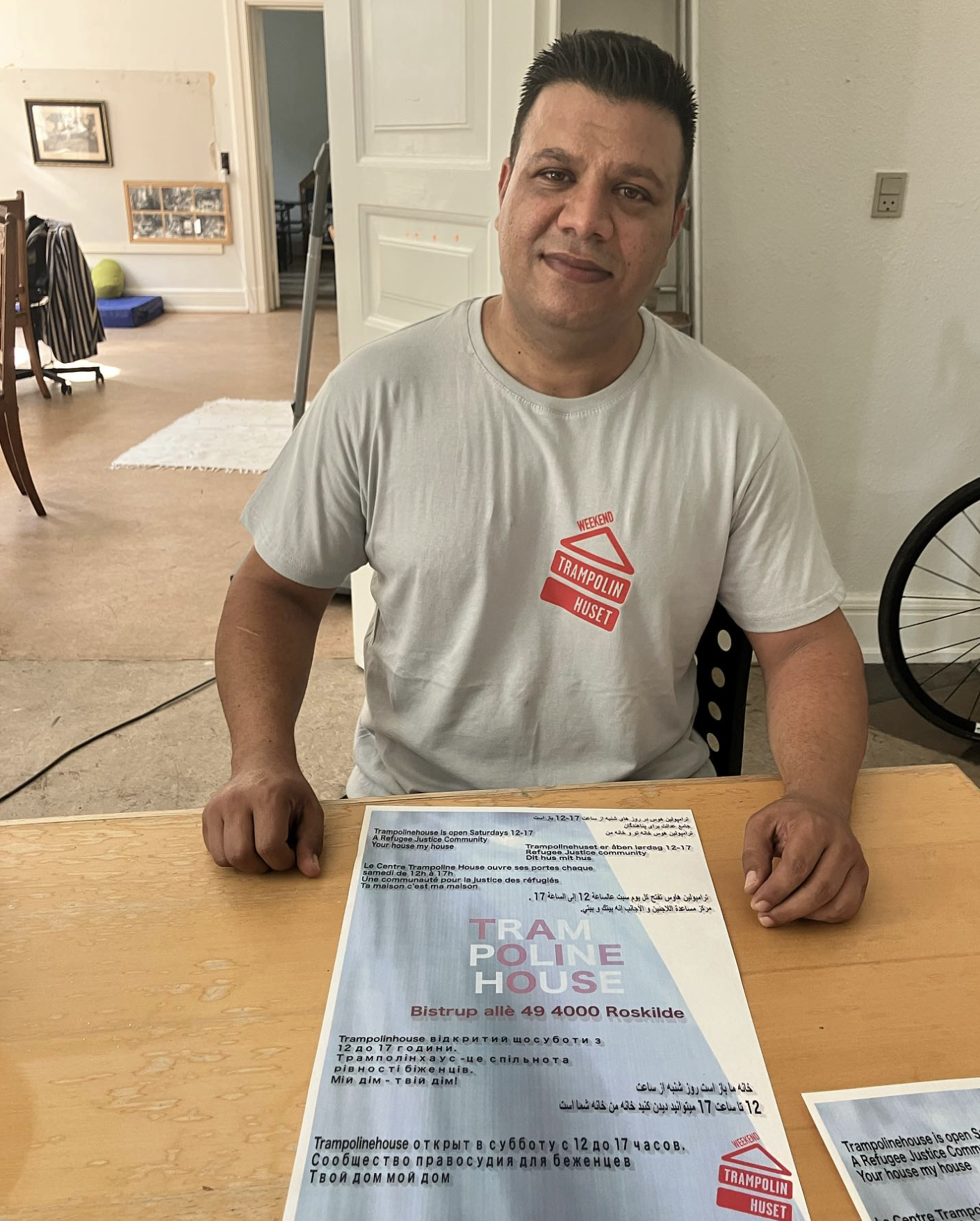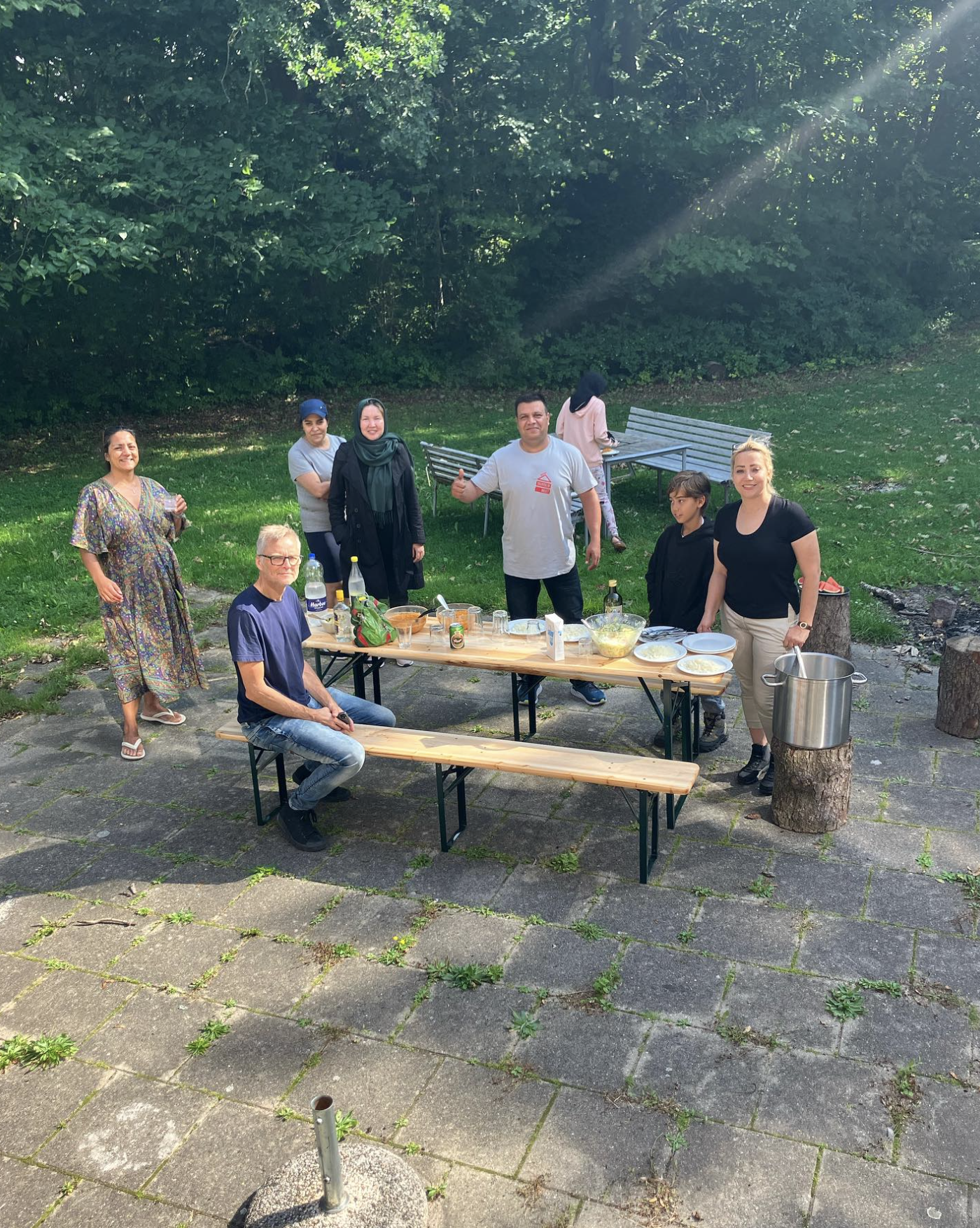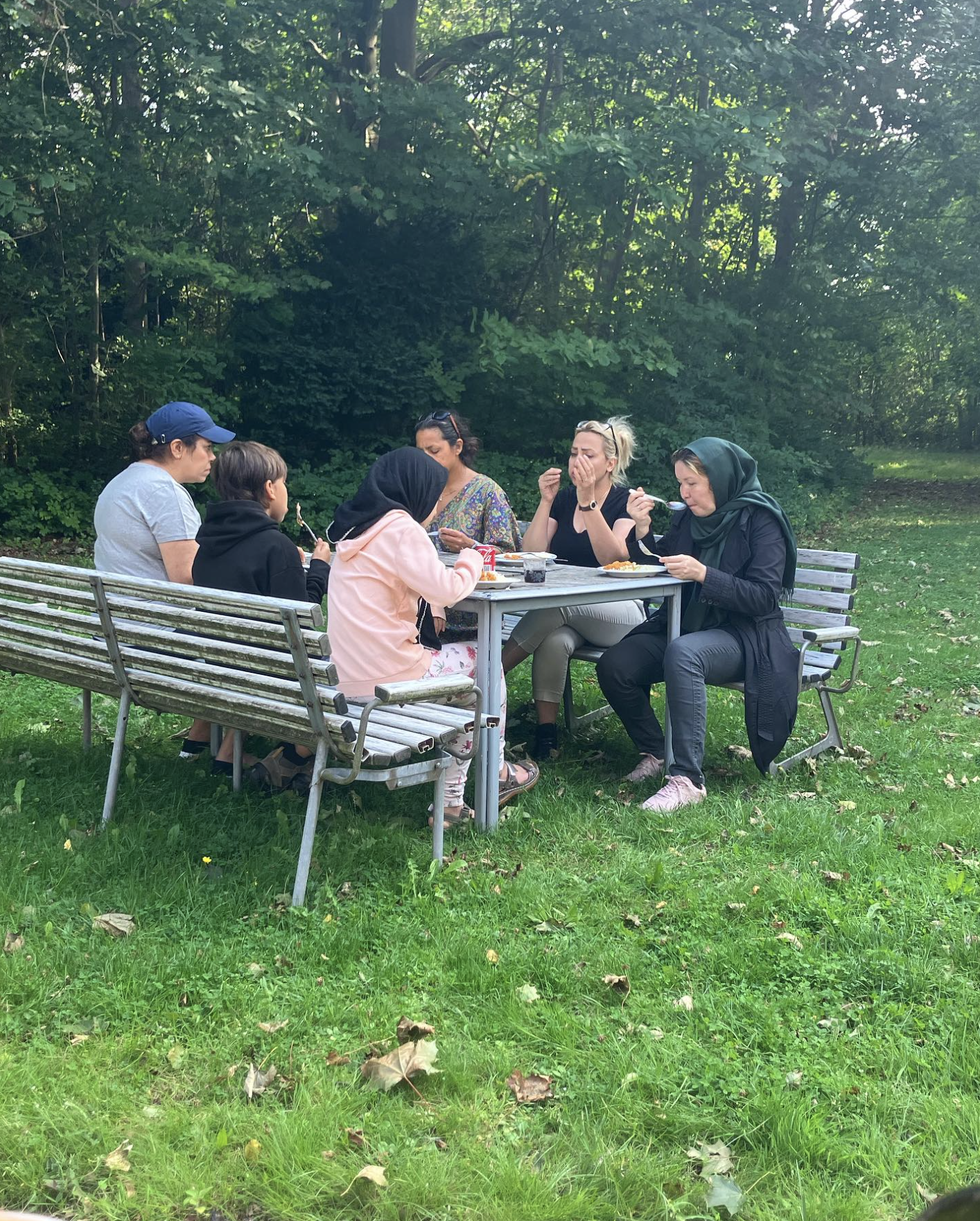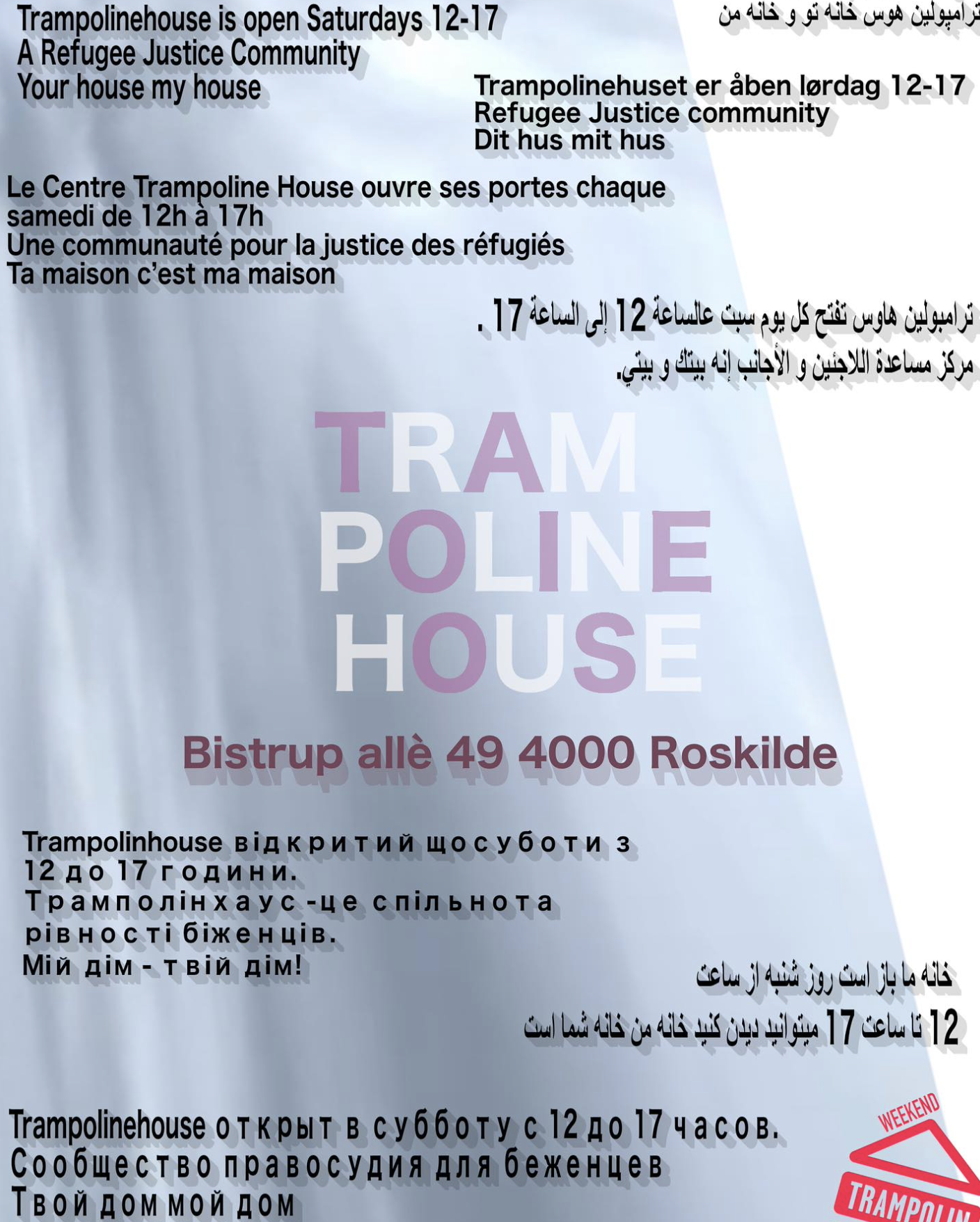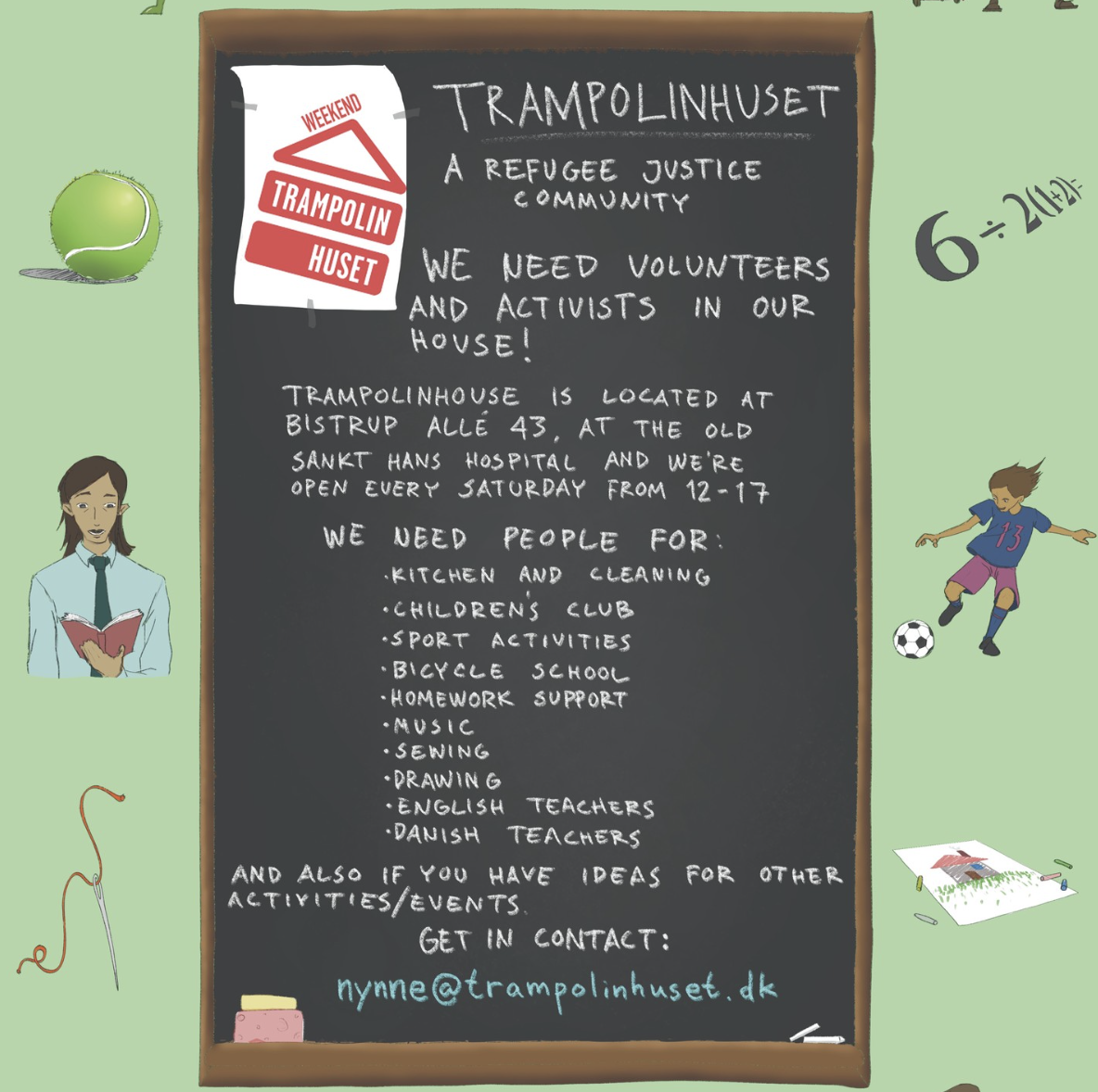The History of Trampoline House
2008–09: The Asylum Dialog Tank (ADT) and the creation of the Trampoline House concept
The Asylum Dialog Tank was organized by artists Morten Goll and Joachim Hamou and curator Tone Olaf Nielsen. ADT arose as a response to the increasing xenophobia in Danish society and the wave of tightenings in Danish immigration policies, which began with Anders Fogh Rasmussen's assumption of government power in 2001.
ADT was a think tank based on dialog on asylum policy, in which asylum seekers were appointed as experts, while art student from The Royal Danish Academy of Fine Arts in Copenhagen and the three organizers were on the school bench.
At the same time, ADT was organized so that the Danish participants were encouraged to utilize their know-how and network to become birth assistants for the solutions for a more humane and inclusive refugee policy that the asylum-seeking experts developed. Approx. 55 people with refugee backgrounds, art students, and other interested parties participated in two workshops in Asylum Center Kongelunden and Asylum Center Sandholm and together developed the two concepts: Trampoline House – a refugee justice community center, and visAvis – a street magazine about asylum and migration issues.
“The somewhat puzzling name “Trampoline House” was chosen when one of the ADT workshop participant, a rejected refugee who had been stuck in the camp system for years, told the workshop group about a newspaper interview with the Danish Minister of Integration at the time, Rikke Hvilshøj. In the interview, the minister had stated that the Danish integration program should function as a stepping stone, aiding newcomers to enter society. Having read this, the workshop participant had thought to himself: After 9 years in the camp system, I need more than a stepping stone... I need a fucking trampoline! ”
“This Key is For” (2009)
Video produced by the Asylum Dialogue Tank (ADT), 5:42 min.
During the ADT workshops, participants produced a series of collaborative videos as a method to get to know one another and comprehend structures of inequality and injustice between refugees and citizens.
“How Much Money Do You Spend in a Week?” (2009)
Video produced by the Asylum Dialogue Tank (ADT), 7:02 min.
2010–14: Trampoline House opens in Skyttegade
Trampoline House opened to the public on November 27, 2010 at Skyttegade 5 in Nørrebro, Copenhagen. Here, the inclusive social culture and learning space, which came to characterize Trampoline House, were developed.
The House Meeting, the Women's Club, the Children's Club, community dinners, transport reimbursement for the users who live in the asylum centers, as well as creative and asylum political activities became part of daily life under the slogan of unconditional mutual respect and the idea that we can share a house together across our differences. The #MyHouseYourHouse philosophy became an antidote to the dehumanizing structure of the asylum camp and its inherent regime of violence, and living proof that it is possible to create good inclusion if one drops populist demands for assimilation.
During this period, Morten Goll was general manager, Tone Olaf Nielsen program coordinator, and there were people in changing jobs who coordinated volunteers from asylum centers and Danish society. The house was open Tuesday–Sunday and attracted during the first year volunteers from many different community groups: Asylum law lawyers, psychologists, doctors, language teachers, and others who provided expertise. In addition, well over a hundred students and civil society actors supported the house with voluntary work. In the spring of 2014, Trampoline House had outgrown the 250 m2 in the then lease and decided to find larger premises.
2014–20: Trampoline House grows and relocates to a bigger space at Thoravej
May 2014 began as a construction site, when we took over and furnished a lease of 530 m2. The new building had classrooms, industrial kitchen, multi-zone, courtyard, a bar/Help Desk and was open six days a week.
“CLASSES & COUNSELING OFFERED ON A WEEKLY BASIS IN TRAMPOLINE HOUSE 2014–20:
Children’s Club · community dinners · cooking · Democracy Class · hair salon · Help Desk · House Meeting · job training & internships · legal counseling · medical counseling · psychological counseling · tailor shop · language classes (Arabic, Danish, English, French, Italian, Swahili) · Women’s Club”
In 2015, the new house also became the home of the exhibition space CAMP / Center for Art on Migration Politics, which was founded by the curatorial collective Kuratorisk Aktion (Fred Hansen & Tone Olaf Nielsen), and for Sisters Cuisine, a catering service created by Women’s Club, which published the cookbook Sisters’ Cuisine Cookbook: Recipes Without Borders in 2017. During this period, the house's reputation as a political mouthpiece, with for instance the formation of the People’s Movement for Asylum-seeking Children’s Future, and as an experimentarial platform for democratic culture increased. At the same time, the board and management sought to develop the house from an art project to an NGO.
In 2016, the attempt to turn Trampoline House into an alternative to the Copenhagen job centers began, with the Tryg Foundation and the Tuborg Foundation supporting the new “Next Practice” program over a three-year period. While Trampoline House continued to house especially rejected asylum seekers, we developed an anti-New Public Management method to help refugees with CPR numbers into work. From 2016–2020 (excluding corona shutdowns), the house had up to 350 weekly visits by around 60–100 refugees and asylum seekers in internship and job training courses, and over 100 volunteers at a time in many different functions.
When the house was the largest, it had 12 employees for a total of 8.7 job years. In 2018, the board formalized the management structure by appointing Morten Goll as general director and Tone Olaf Nielsen as program director. In 2020, towards the end of the corona crisis, Trampoline House went bankrupt due to a lack of financial support.
“Trampoline House – supporting asylum seekers' way into society”
Fundraising campaign video produced by Mob Effect in 2016, documenting Trampoline House's mission and methods, 3:48 min.
“Visible Award 2019”
In 2019, Trampoline House was shortlisted for the international prize for socially engaged artistic practices, Visible Award 2019. This video was made to introduce the house to the jury. Video: Madeclear
“The Children’s Club – a break from Deportation Camp Sjælsmark”
Besides from getting out of the deportation centers, the rejected asylum-seeking children primarily need a predictable and safe environment, and relations with grown-ups that they feel like they can trust. That is the purpose of Trampoline House's Children's Club, which is more popular than ever before. Video: Viktoria Steinhart, 2019
2020–22: Trampoline House contributes to “documenta fifteen”
In 2021, Trampoline House was invited to the international art exhibition "documenta fifteen" in Kassel, Germany, as a 'lumbung partner' by the exhibition's artistic director team, the Indonesian artists collective ruangrupa.
Since the house was hit by bankruptcy almost at the same time, we decided to use the invitation as a lifeboat that could give Trampoline House the opportunity to reconstitute itself. A mixed working group consisting of artists and activists with a background in the asylum centers as well as the house's founders agreed to use the documenta platform as a large megaphone that could spread the word from the Danish asylum centers to the world.
Trampoline House ended up creating a large installation with several videos, a contextual wall text installation, and various visual elements that conveyed the messages from asylum seekers in the Danish asylum and deportation system. We also had an extensive program of workshops, fashion shows, poetry readings, etc. The following people made up Trampoline House's documenta work group: Carlota Mir, Dady de Maximo Mwicira-Mitali, Helene Grøn, Jean Claude Mangomba, Joachim Hamou, Khalid Albaih, Morten Goll, Muhannad Al Ulaby, Sara Alberani, Shakira Kasigwa Mukamusoni, Tone Olaf Nielsen and visAvis.
Dady de Maximo Mwicira-Mitali 2022 fashion collection : "In a closed world – visible and invisible walls"
During "documenta fifteen", Trampolinhus member Dady de Maximo Mwicira-Mitali presented the fashion show "In a closed world – visible and invisible walls" in Kassel, Germany on July 15, 2022. The fashion show consisted of 40 outfits inspired by the life and suffering of refugees and migrants around the world.
The presentation of the collection were accompanied by a poet-singer Bill RUZIMA who recounted the silent suffering, and a contemporary dancer Yves Rwegerangabo Icyishatse who interpreted with his body the physical and moral suffering of the refugees. Both from Rwanda.
Video production: Fritz Eggenwirth, Michael Gartner, Sebastian Jurchen, Barbara Kiolbassa, Milan Soremski, David Von Der Stein in collaboration with documenta archiv
Coordinator (Copenhagen-Nairobi-Kassel): Joachim Hamou
Thanks to: The artists who contributed to this project from Rwanda, Uganda, Kenya, Germany, and Denmark. Thanks to the models from Germany and to the 112 refugees who live in Kenya refugees Camps.
2022–23: The house reopens as Weekend Trampoline House
The closure of Trampoline House left a big void for the many hundreds of refugees and asylum seekers who visited the house weekly to get legal counseling, learn Danish, do internships and job training courses, meet new friends, and form networks.
To fill the void, Morten Goll and Tone Olaf Nielsen began work in 2021 to reopen Trampoline House on a smaller and more sustainable scale. On January 28, 2022, the Weekend Trampoline House Association opened its doors to the public. The house rented the parish house of the Apostle Church on Vesterbro in Copenhagen for its activities and offered legal counseling, activities, and community to refugees and asylum seekers every Friday and Sunday. At the beginning of 2023, the house got a new general manager, as Nynne Roberta Pedersen Pedersen was hired at the same time as Tone Olaf Nielsen stepped down.
On August 27, 2023, Trampoline House was invited to participate in the exhibition Non Performing by the Museum of Contemporary Art Roskilde and was in that connection offered a villa in the Sankt Hans Hospital complex in, close to Deportation center Avnstrup and a local refugee center. The work to create a new house in its own setting with new activities – workshops, teater plays, community dinners – which is based on socially engaged artistic methods, began. A meeting place with heart space that can help promote equality, participation, and community, and give users faith, hope, and love in the life they have burnt themselves on.
Weekend Trampoline House in the Apostle Church, Copenhagen, Jan. 2022–June 2023
Trampoline House in Villa d’Este, Roskilde, August 27–October 24 2023
2024–: Trampoline House gets a refugee-driven management and works to become an independent cooperative in Copenhagen
The end of 2023 brought many changes for Trampoline House and its users. The house unfortunately has to vacate the villa in Roskilde, for the first time in the house's history it got a refugee-driven management and is now working to become an independent cooperative that can make it possible for all the house's users to work and take an active part in Danish society.
Unfortunately, Trampoline House did not succeed in extending its the sublet contract on the villa in Roskilde when the Non Performing exhibition closed, and at the end of October 2023 Trampoline House had to vacate Villa d'Este in Roskilde. In November 2023, the board took over the management of Trampoline House, as Nynne Roberta Pedersen Pedersen resigned from her position as daily manager, and co-founder and long-time director Morten Goll retired after 15 years in the house's service.
The board, which is made up of 75% former asylum seekers, all of whom have experienced the Danish asylum system firsthand, is now in the process of looking for premises in Copenhagen and extending the house's democratic agenda with an economic structure, turning Trampoline House into a cooperative. The services that Trampoline House will provide, such as social and legal counseling, catering, language classes, conferences and workshops on democracy and inclusion, will now become revenue generating and all members will get a share.
While the board makes preparations for the new house, Trampoline House will continue to offer legal counseling by board member Michelle Keun-Rasmussen and social counseling by board member Nabila Saidi. Board members Jean-Claude Mbombo Mangomba and Dady de Maximo will continue to hold conferences and workshops on democracy, inclusion, and Trampoline House's activities, and board member Joachim Hamou will prepare future collaborations with institutions in Denmark and abroad.
